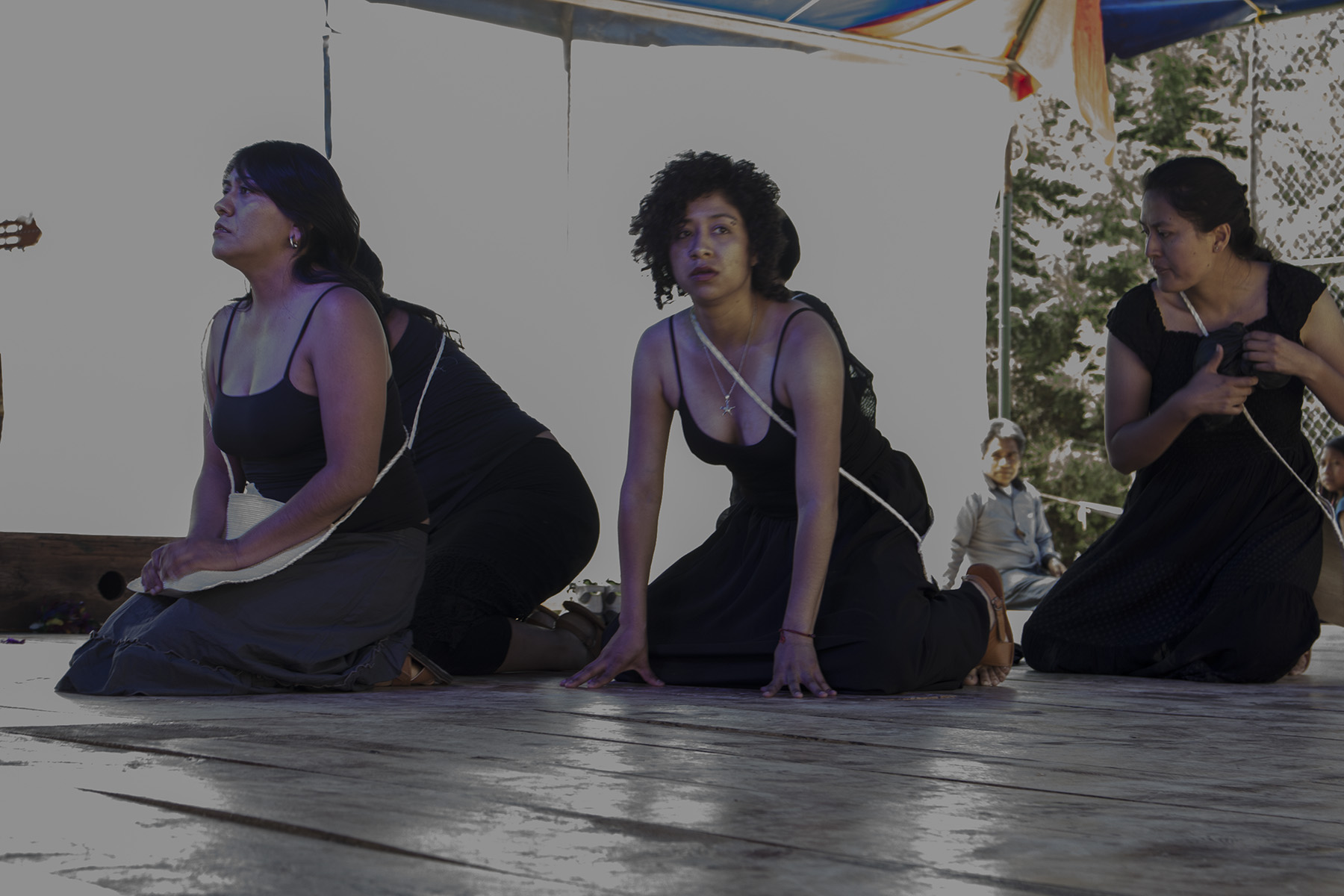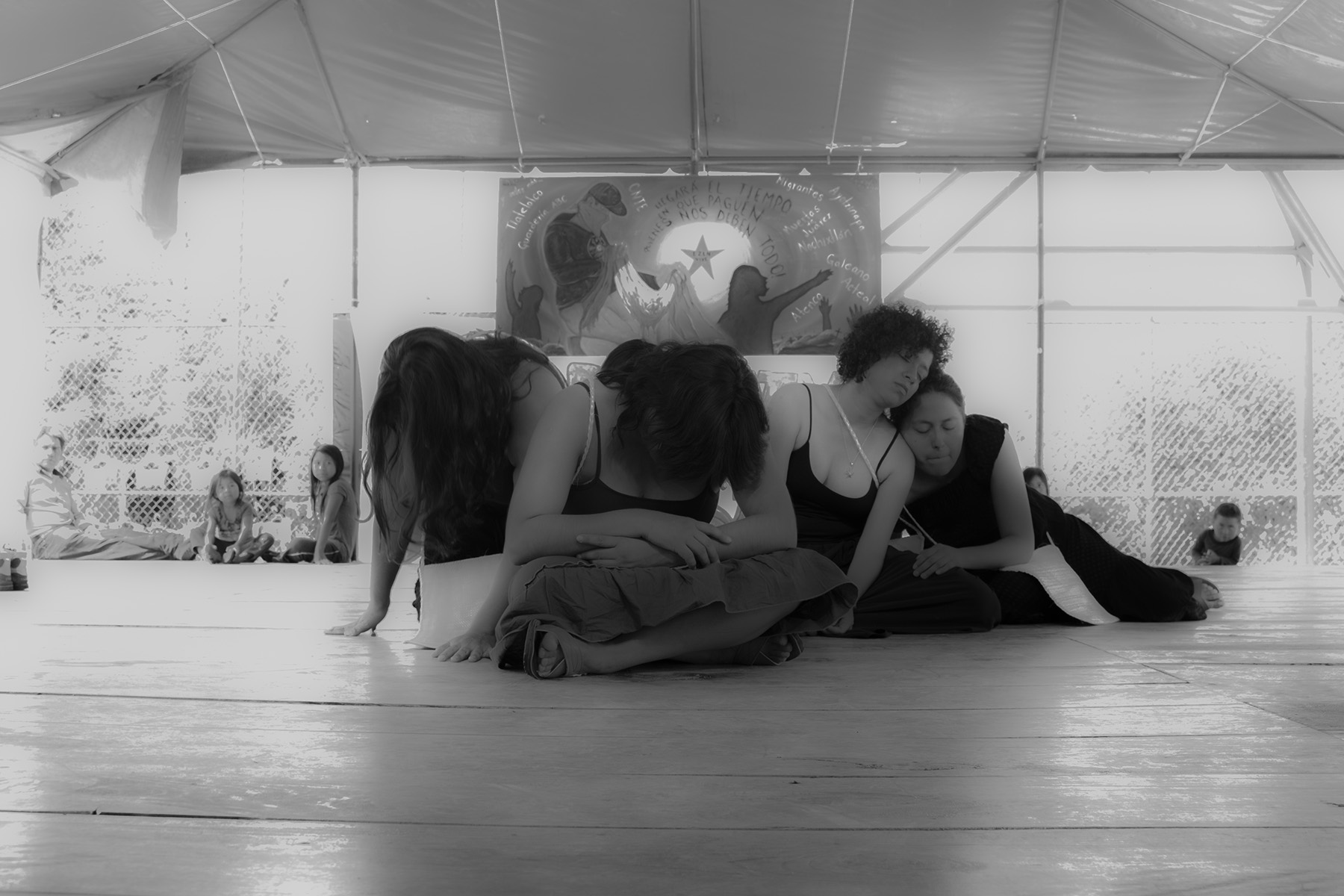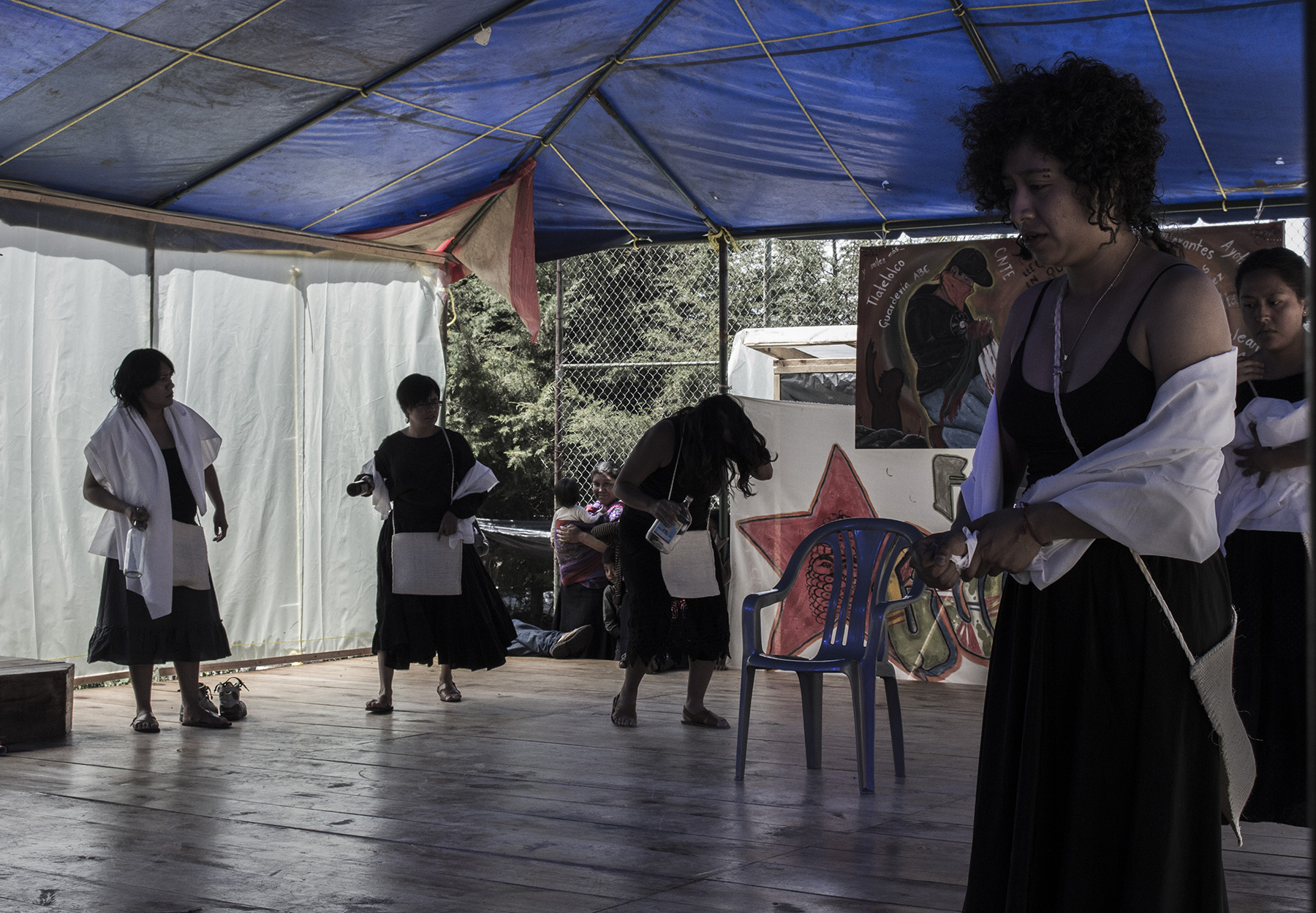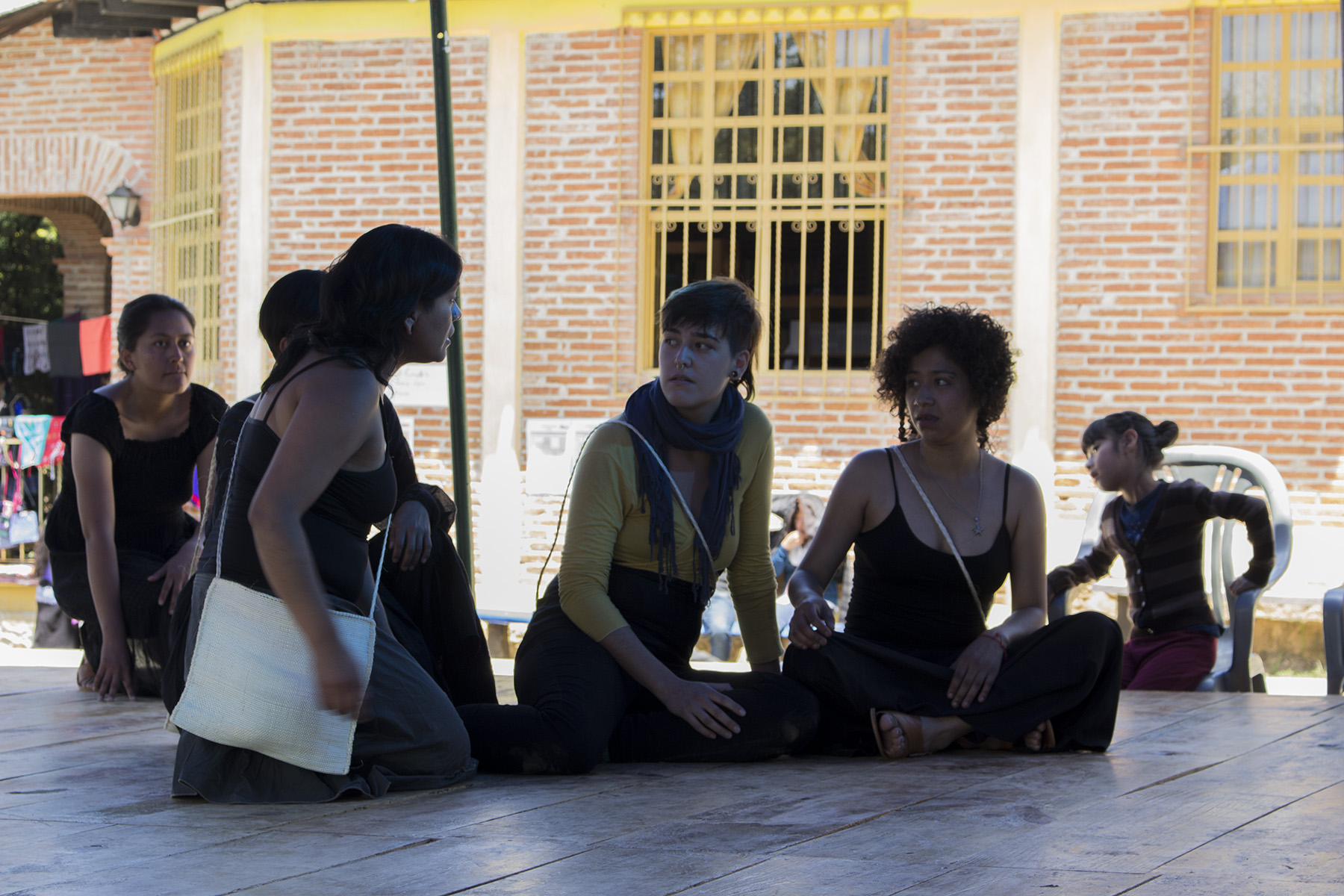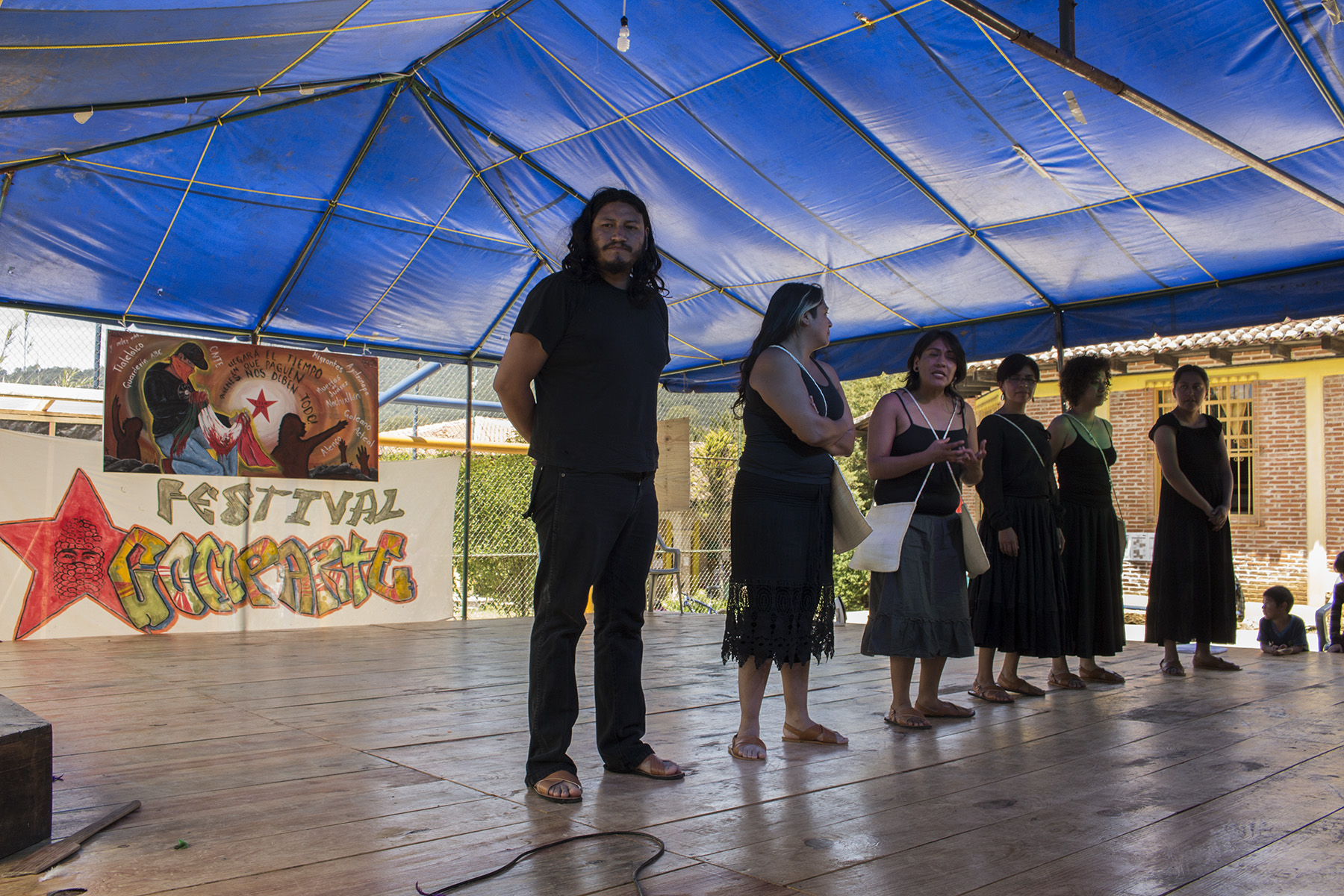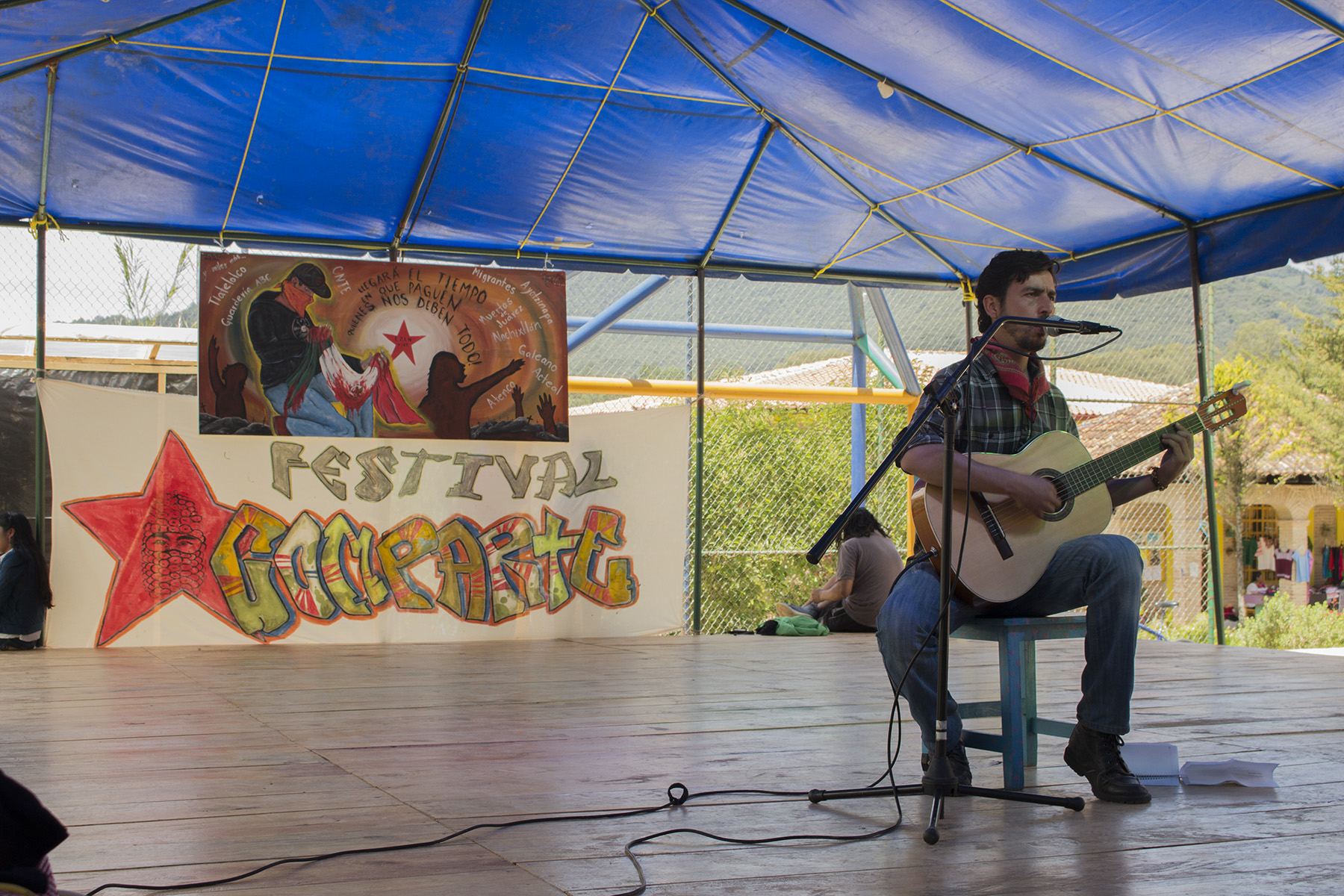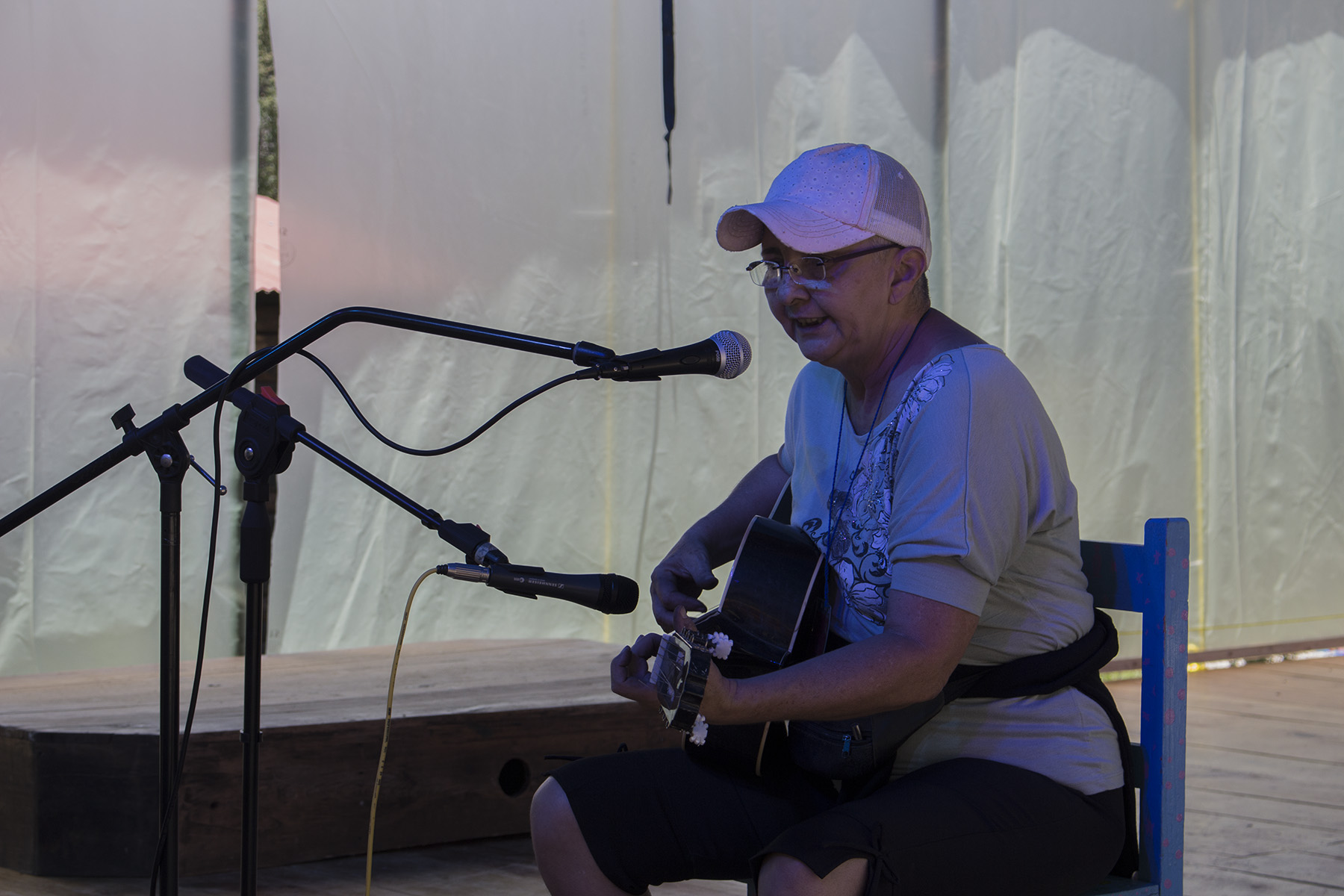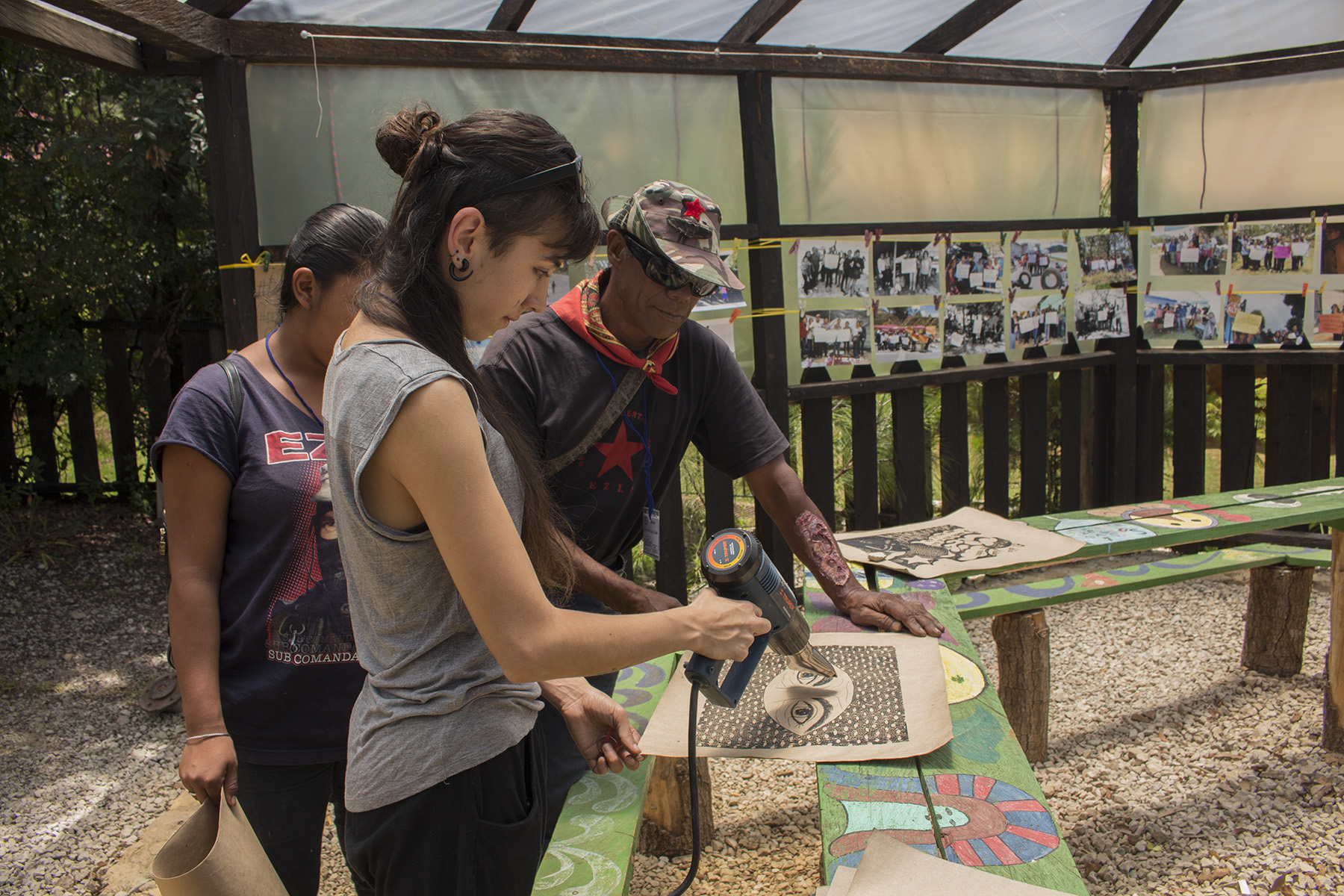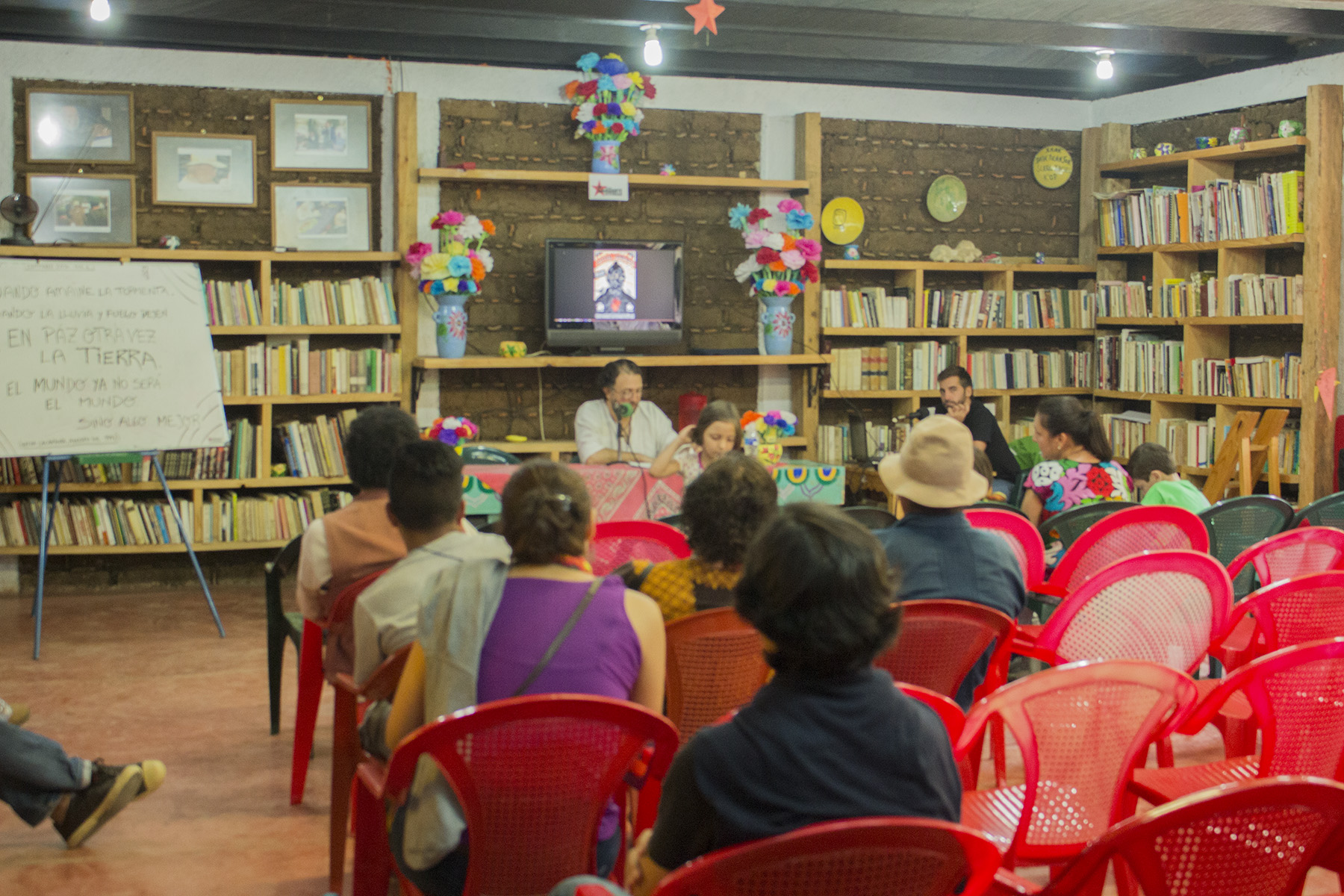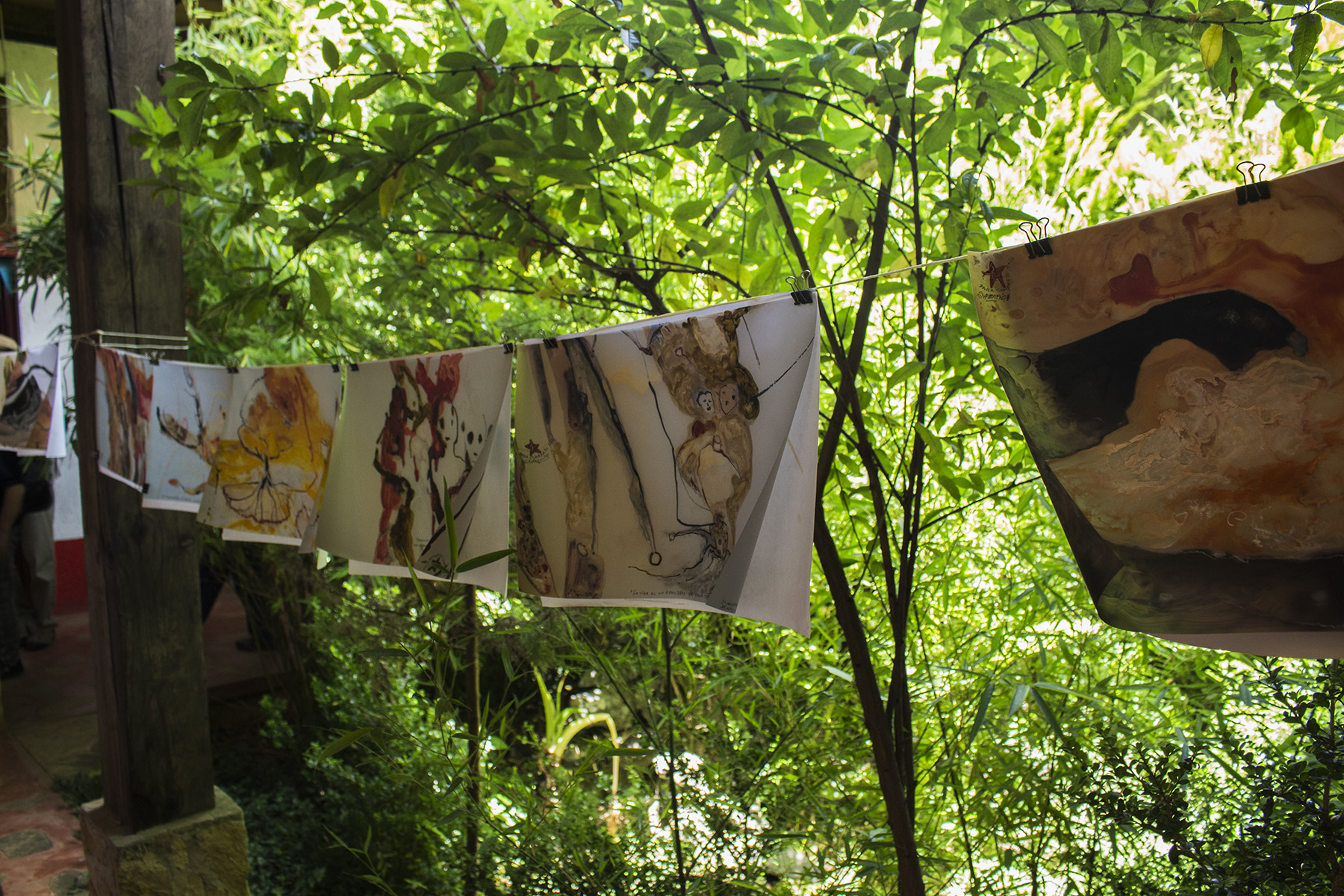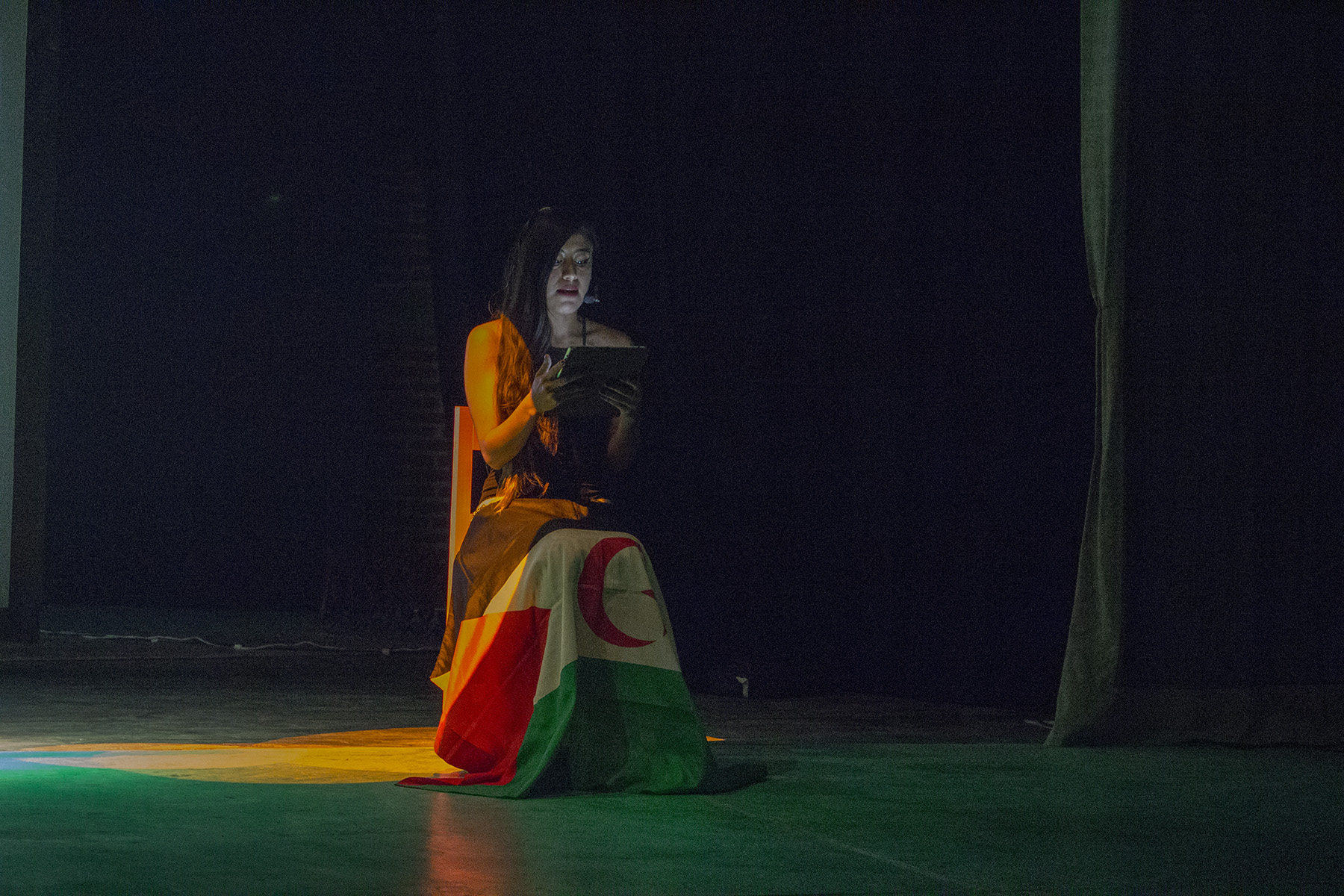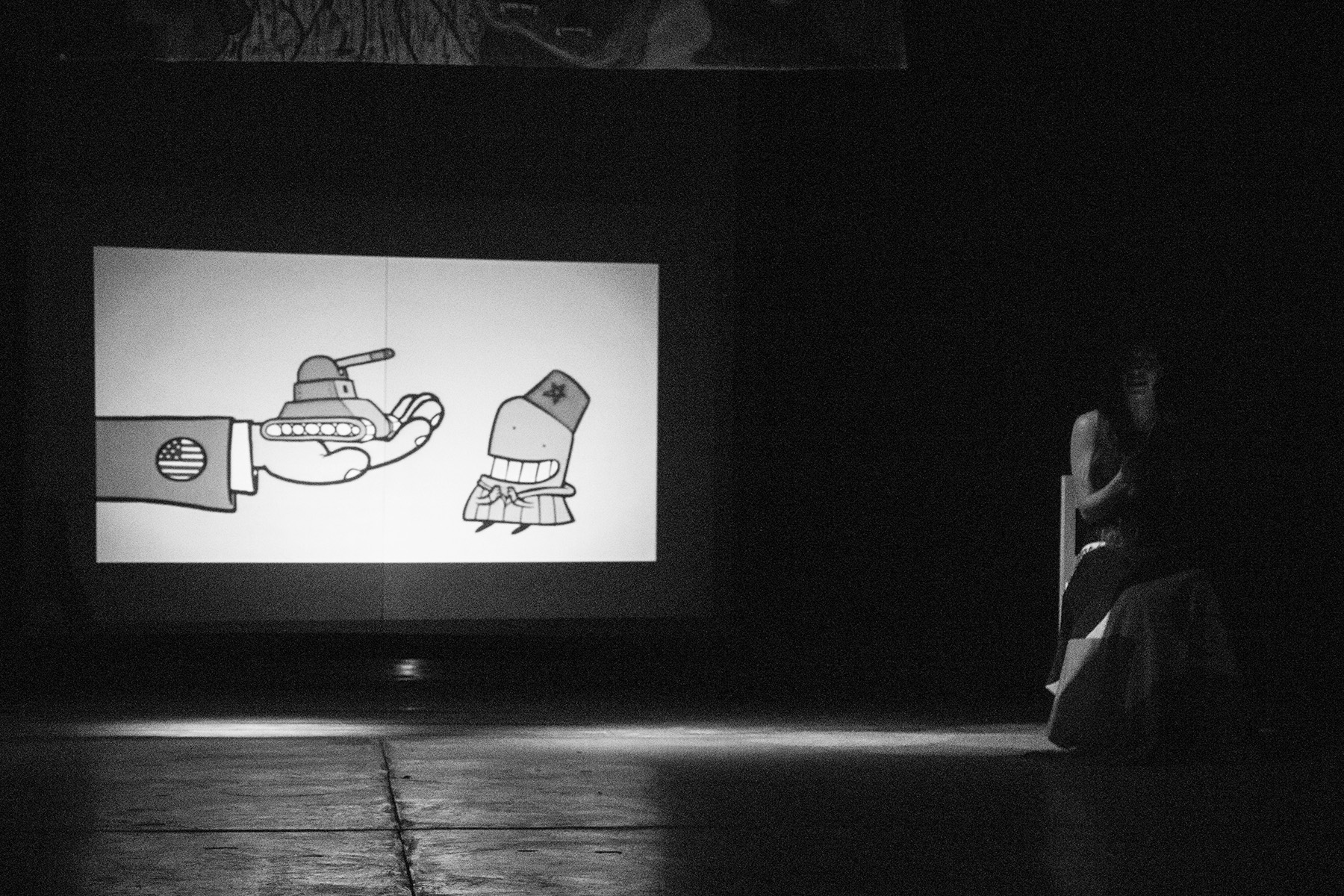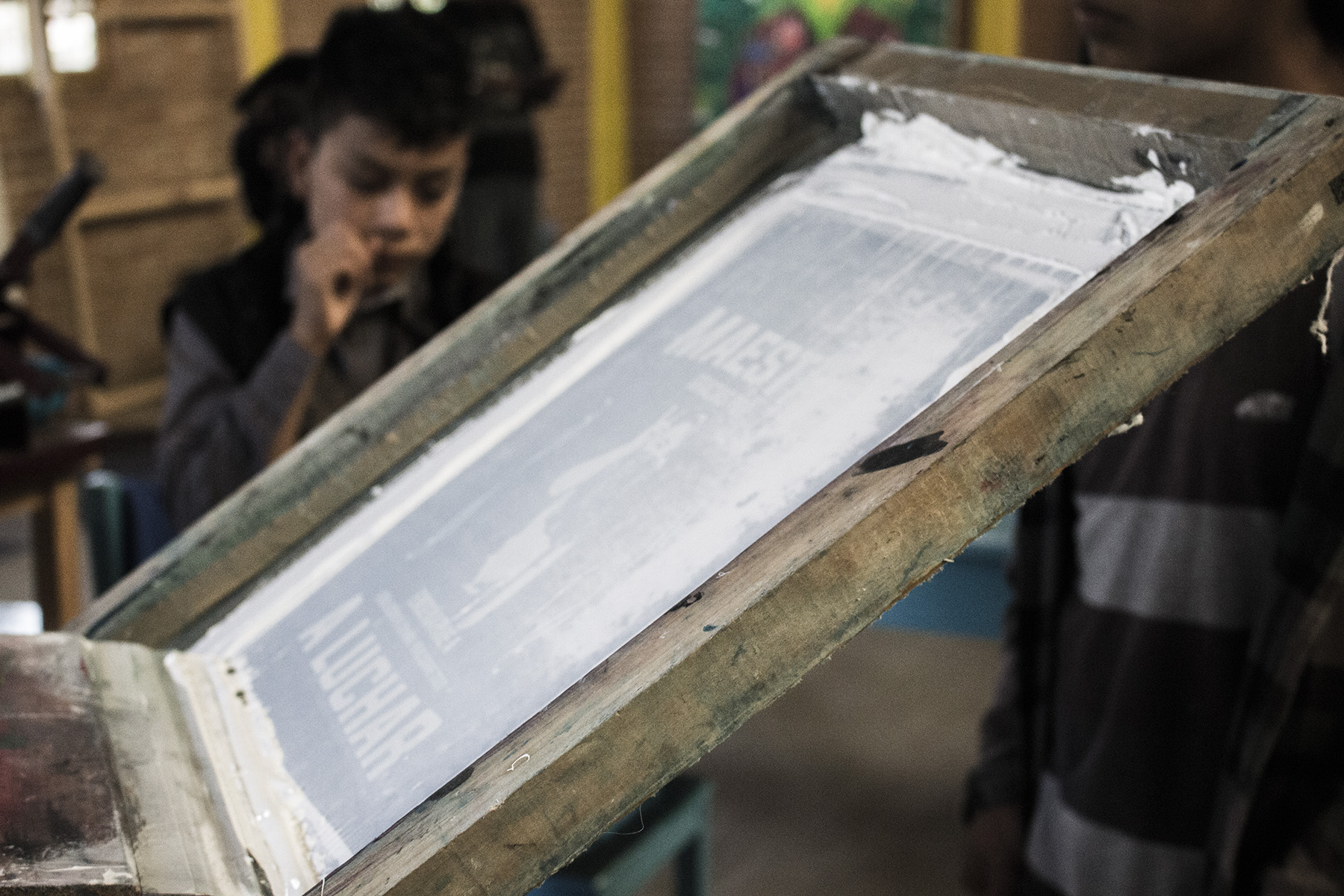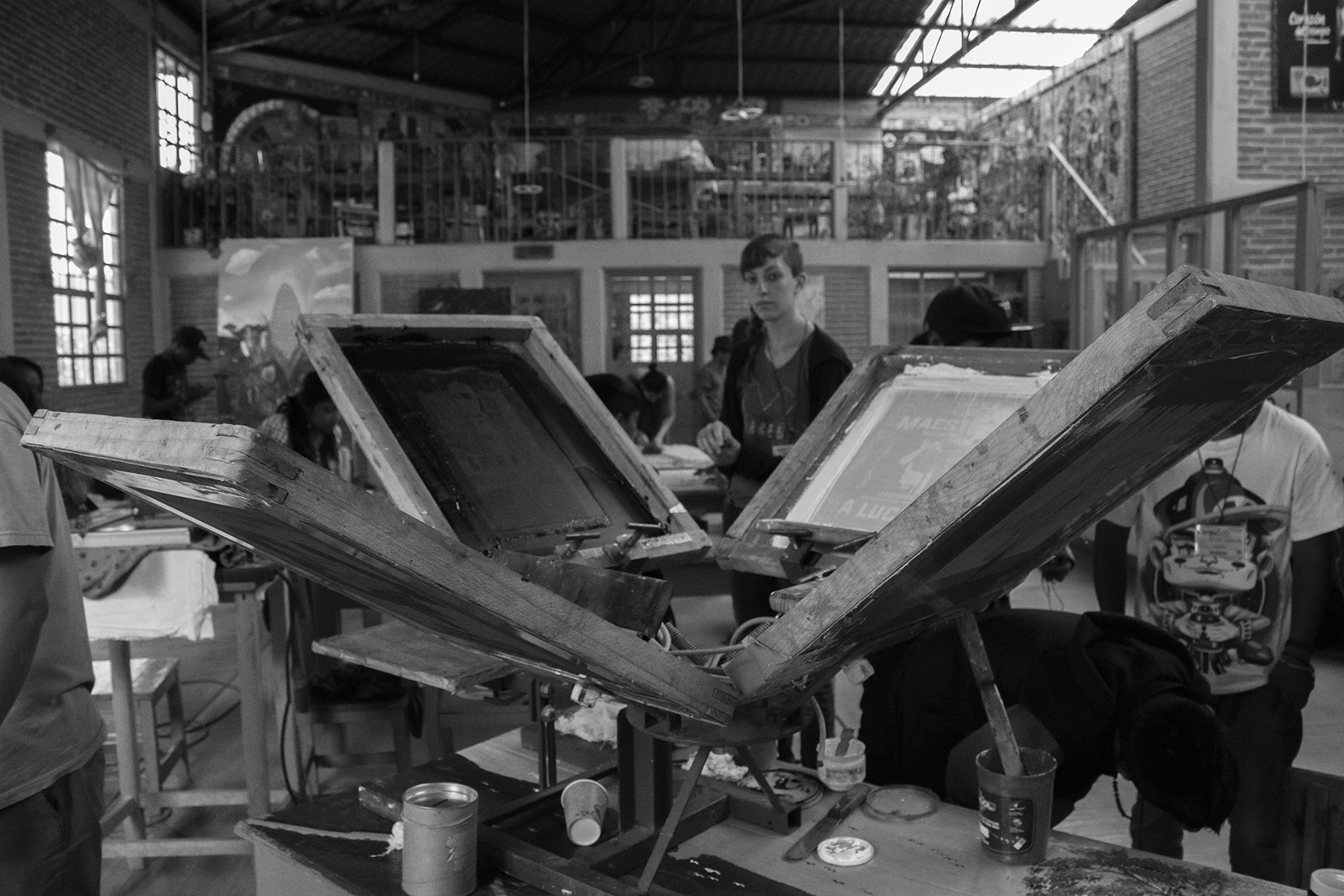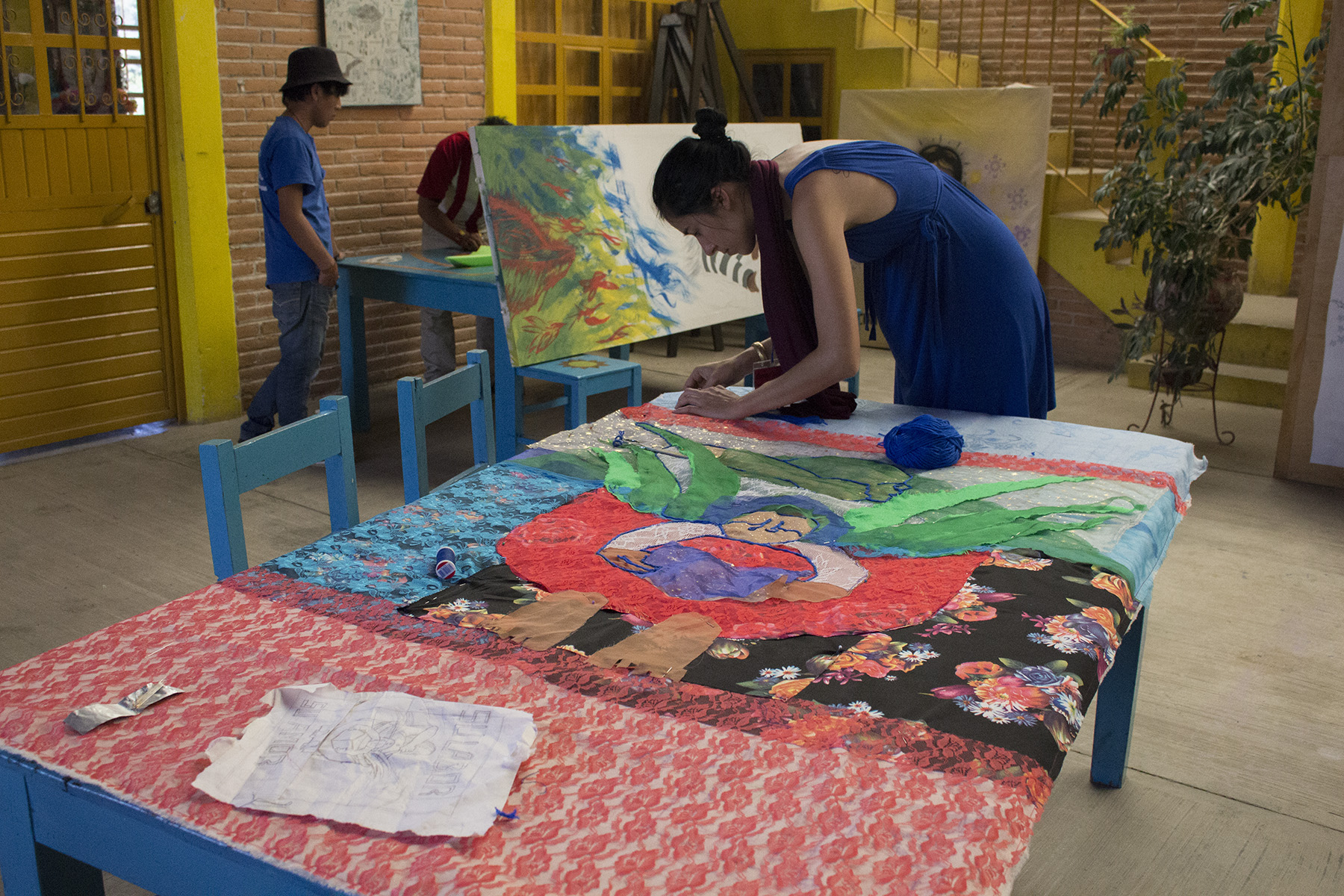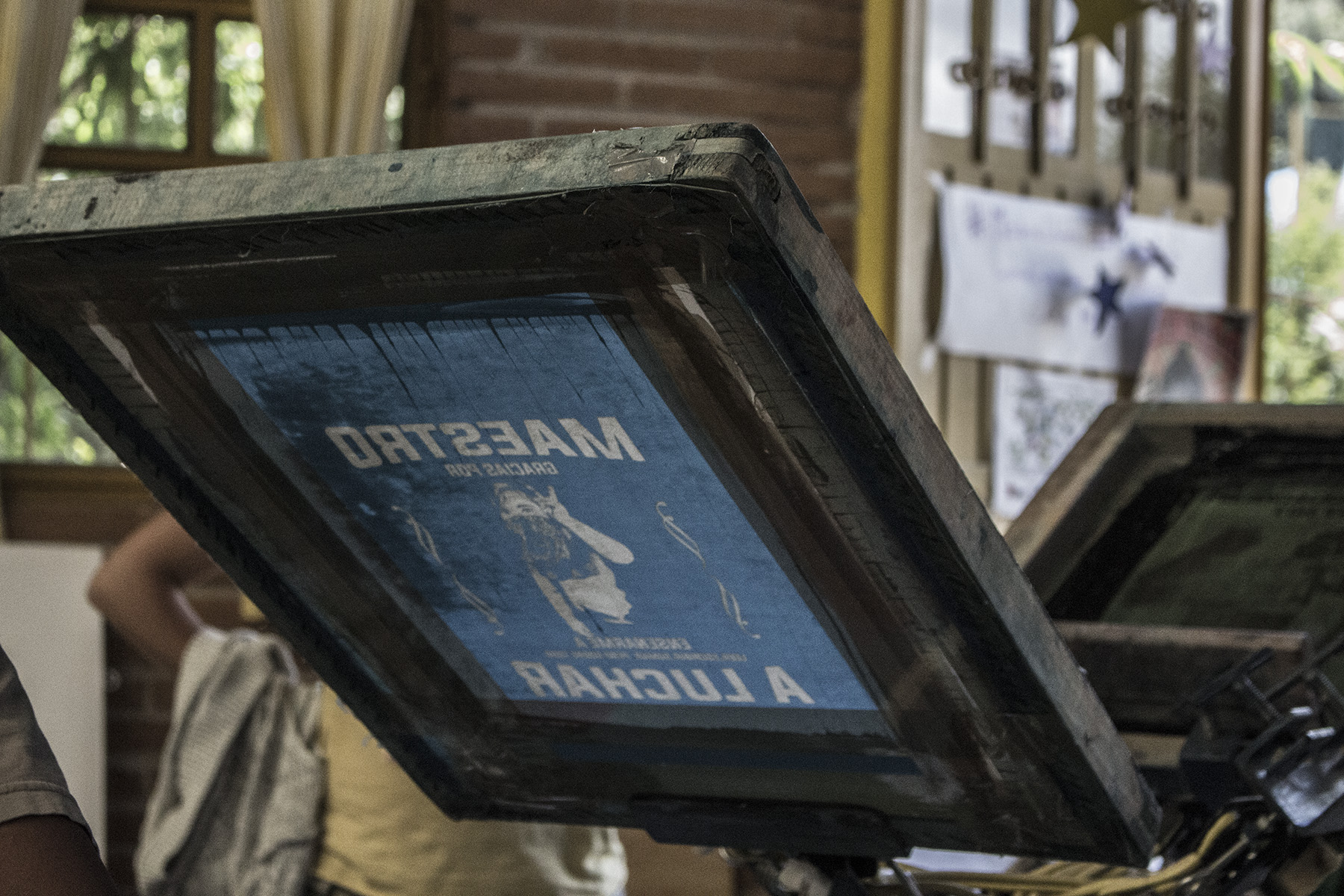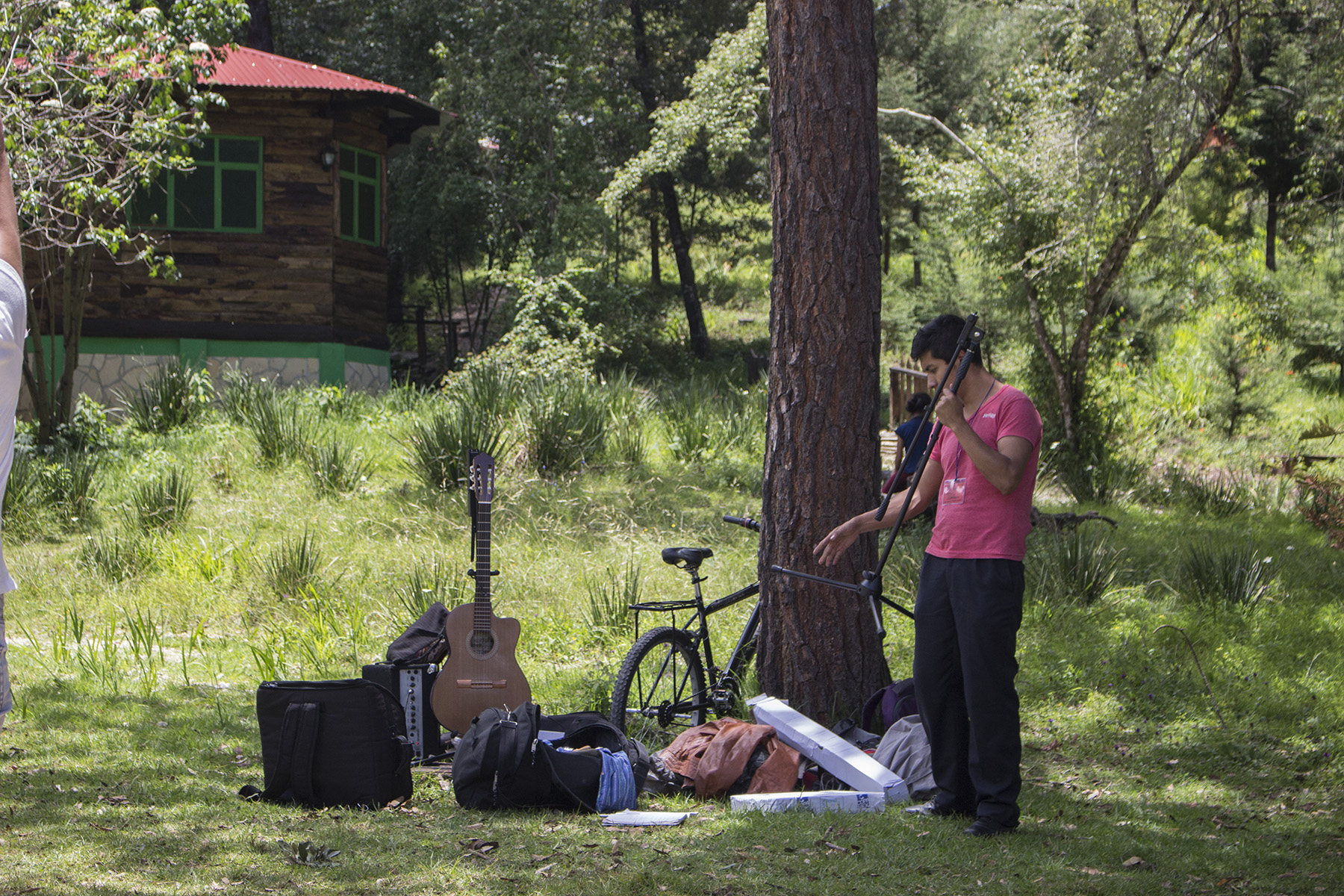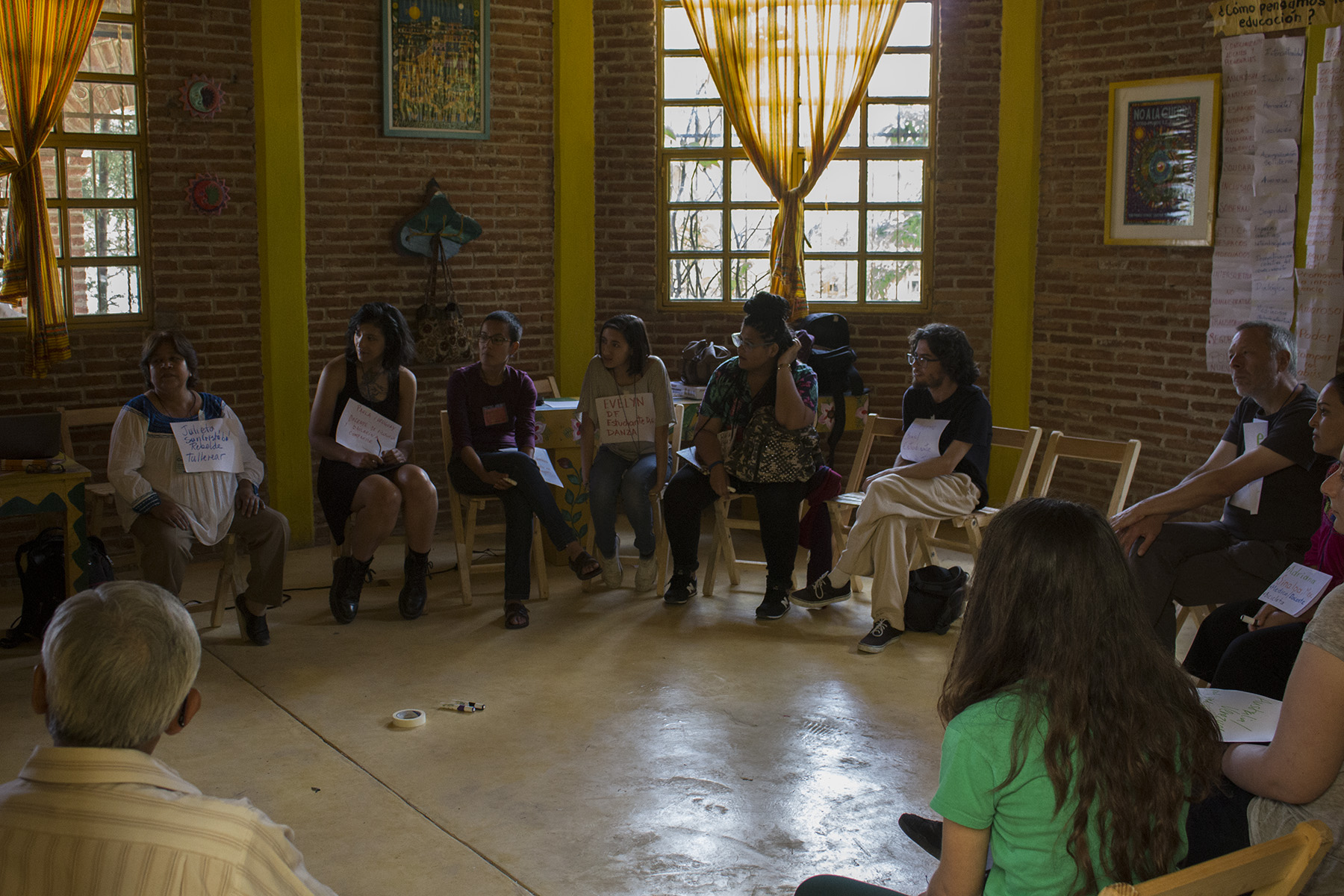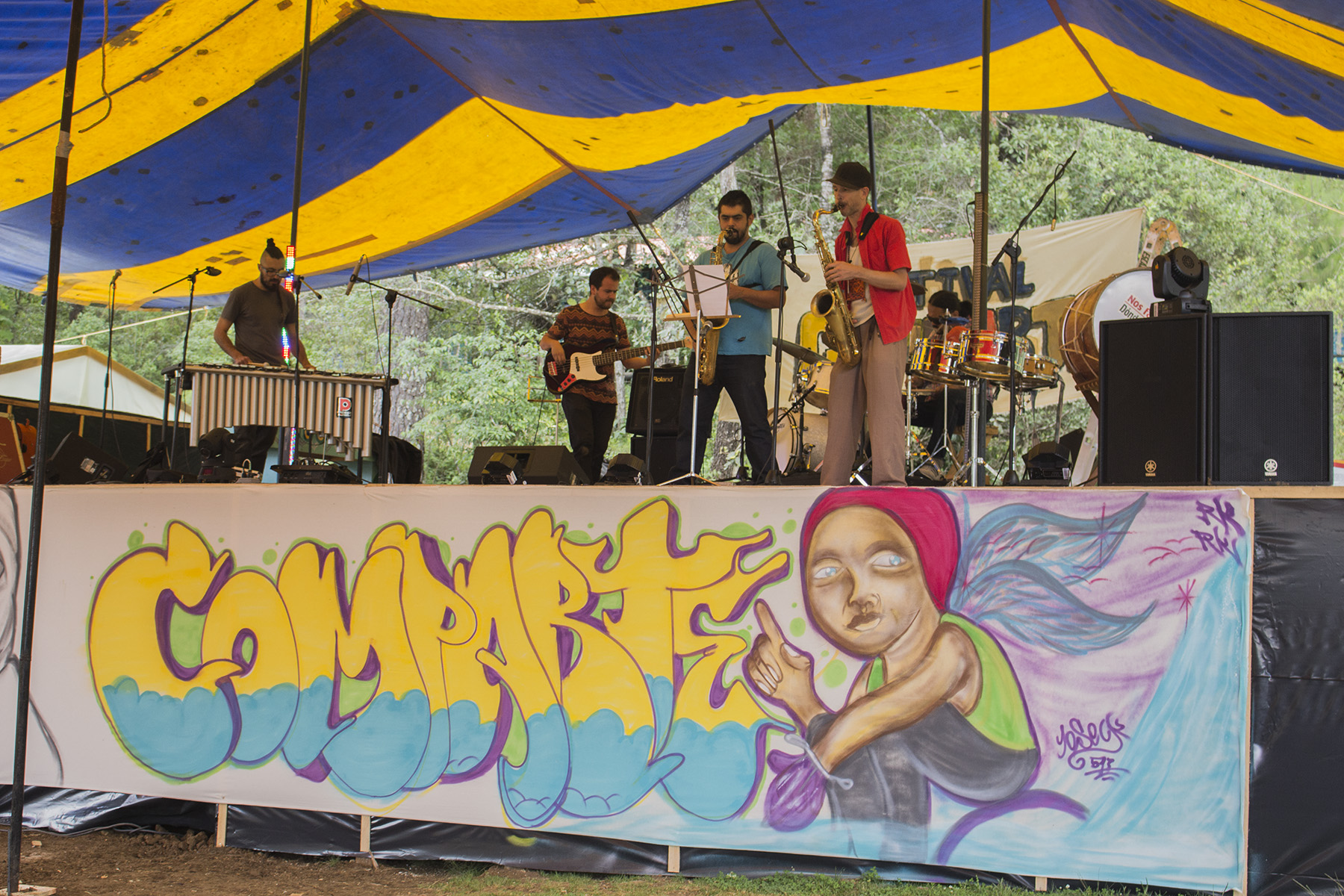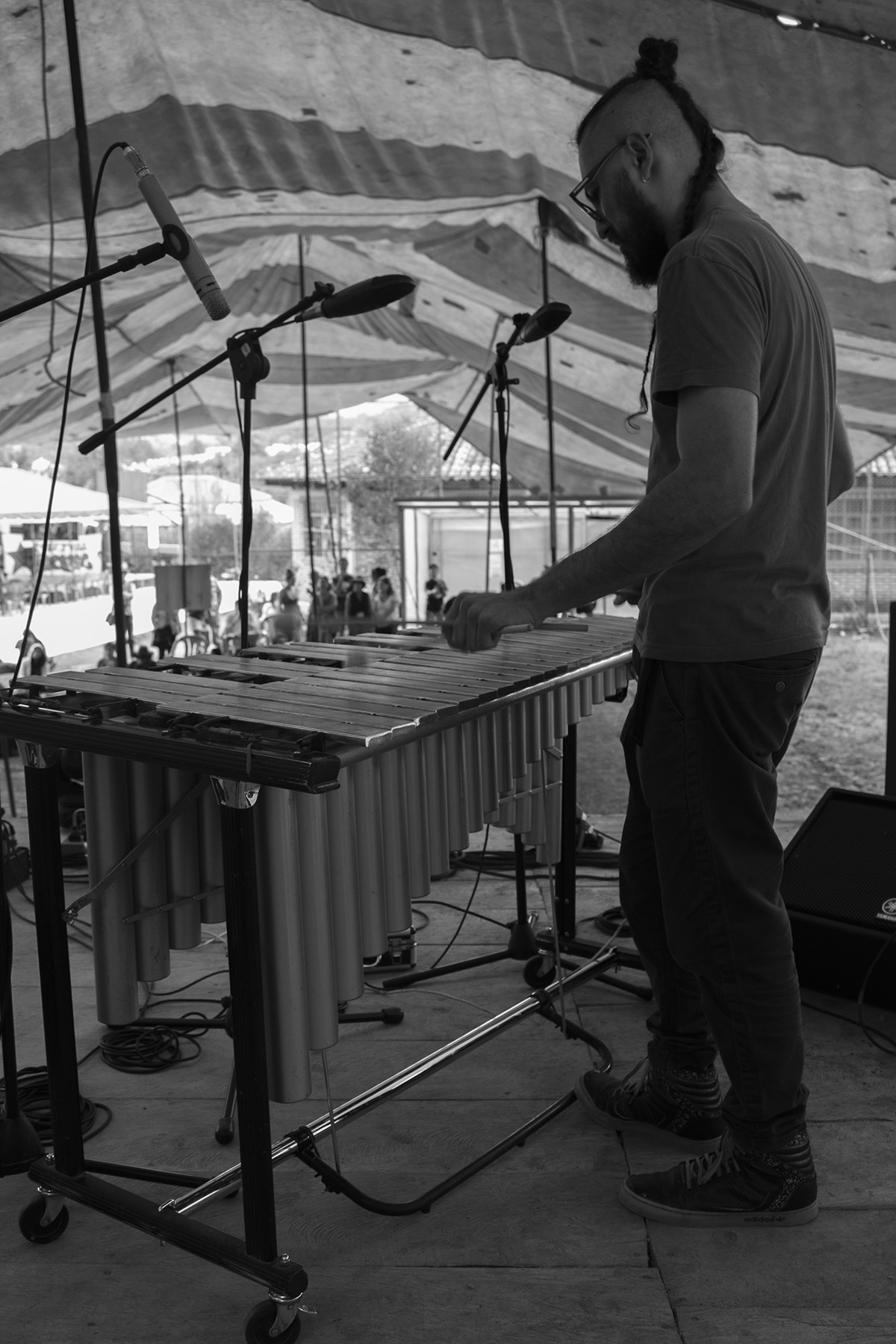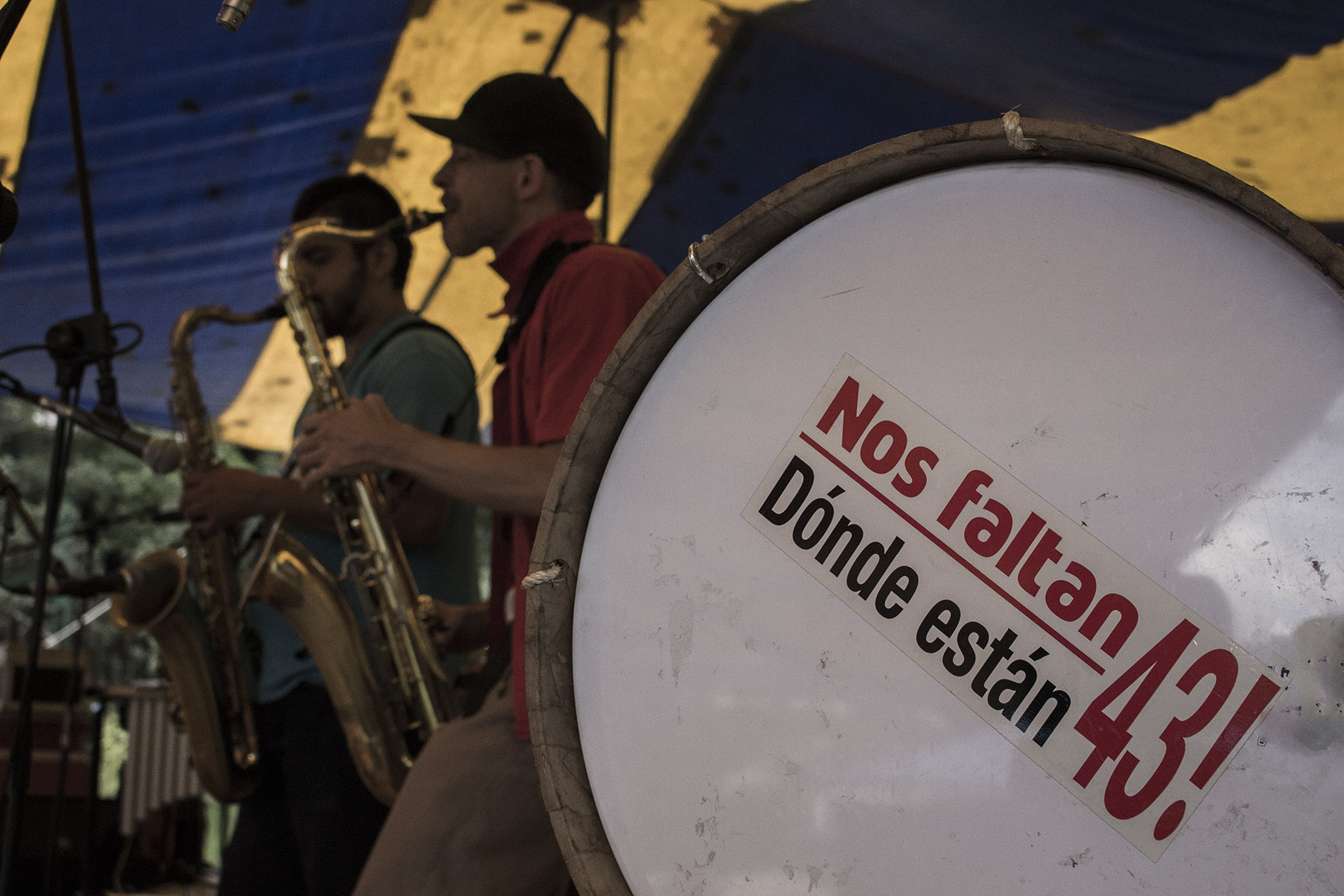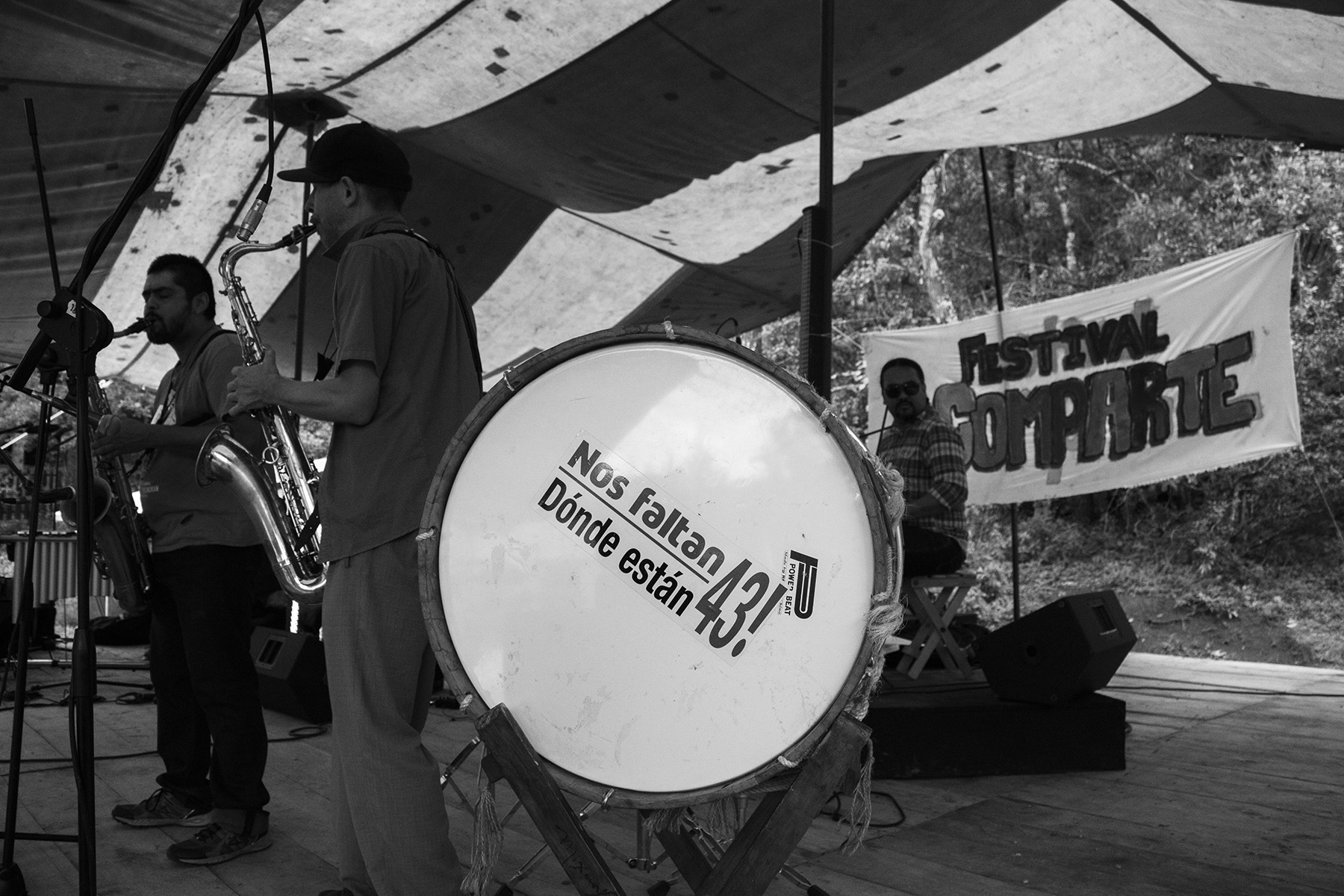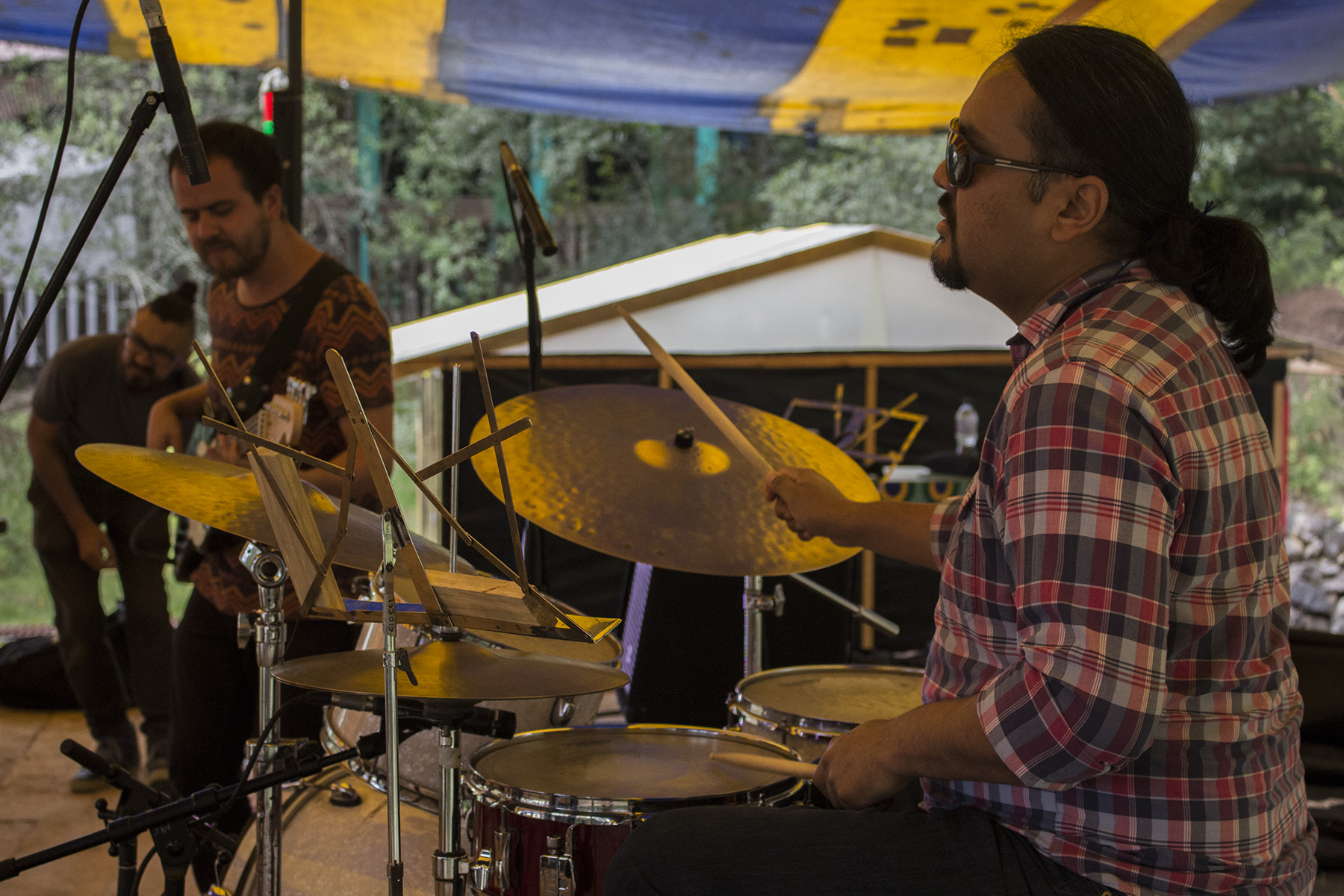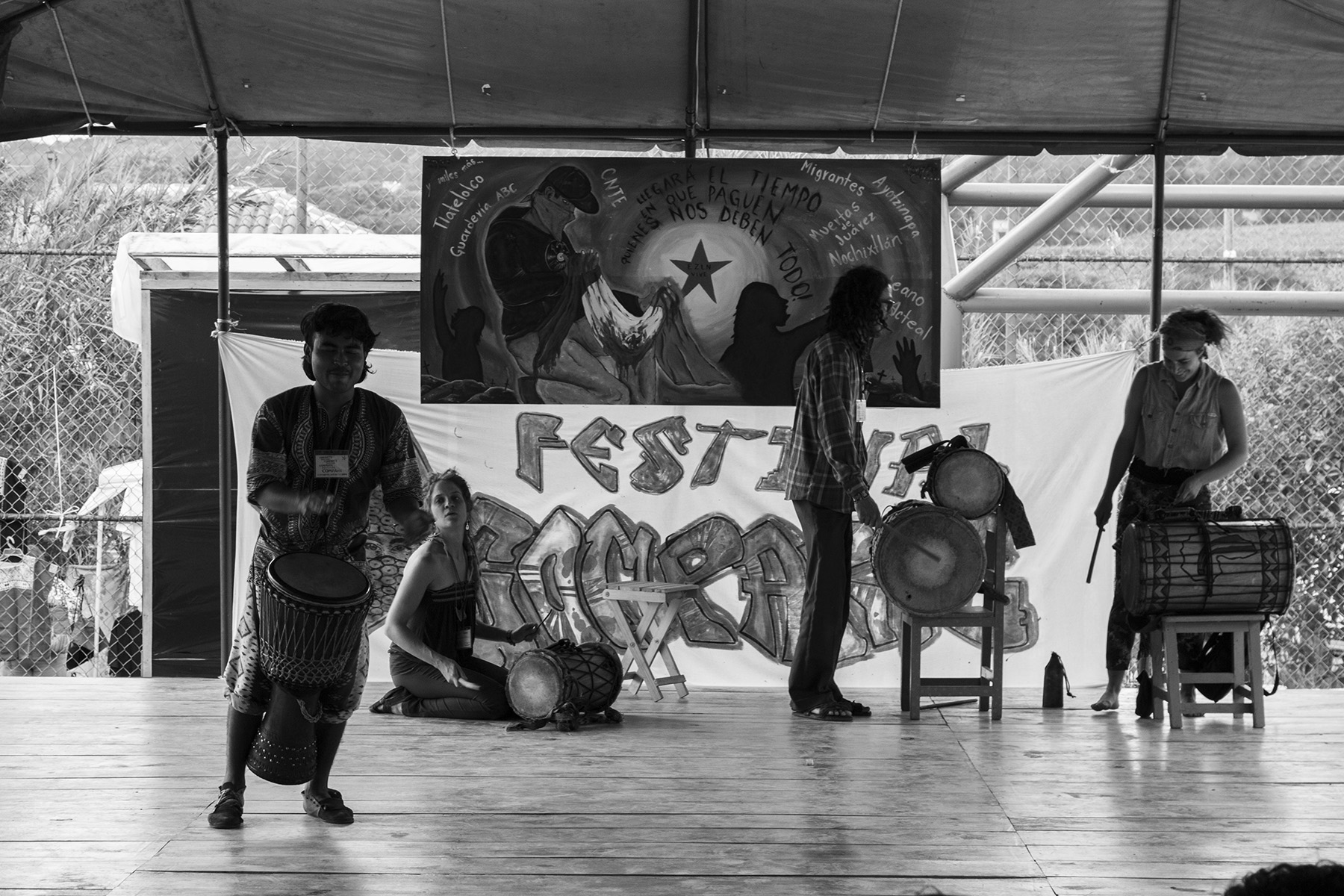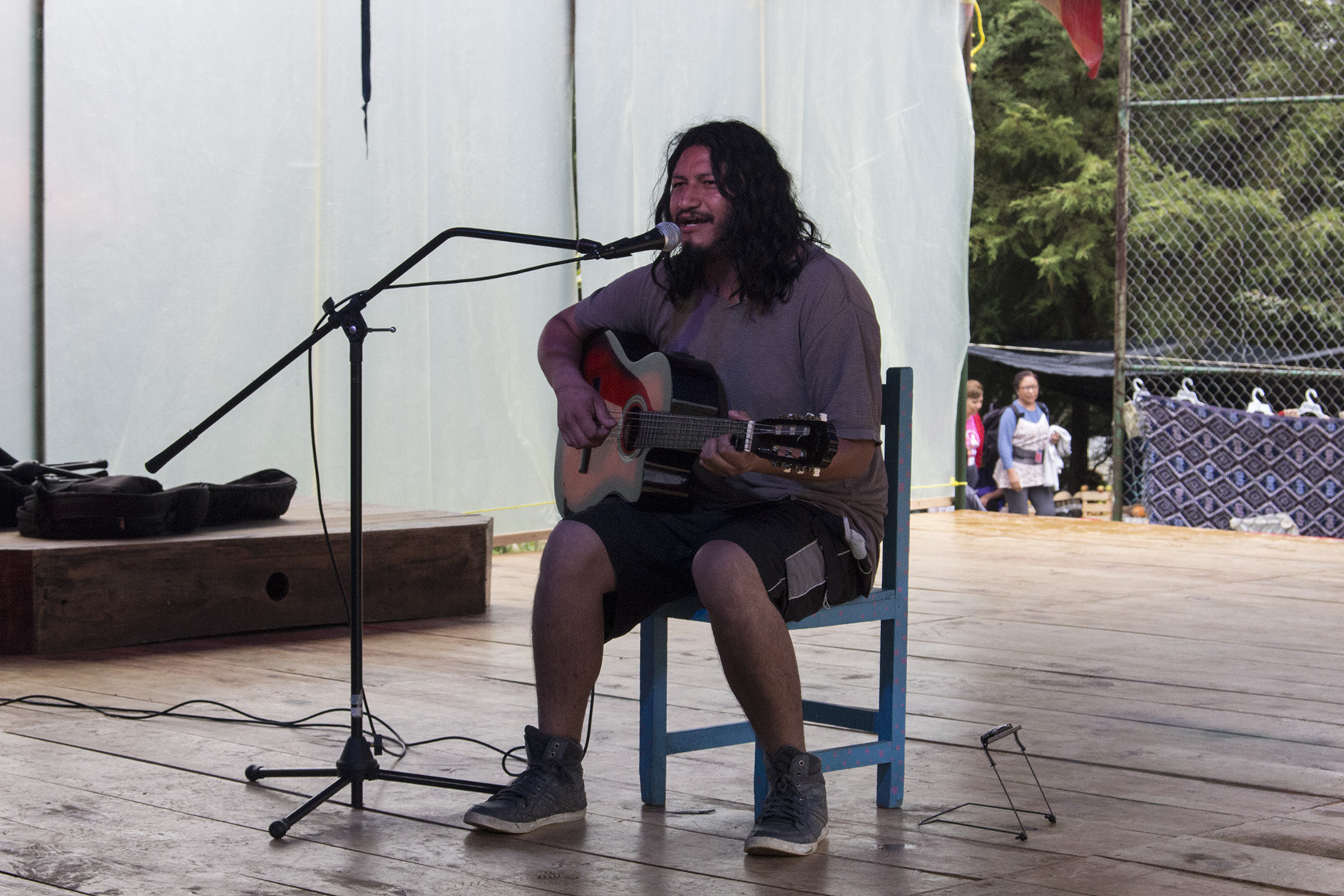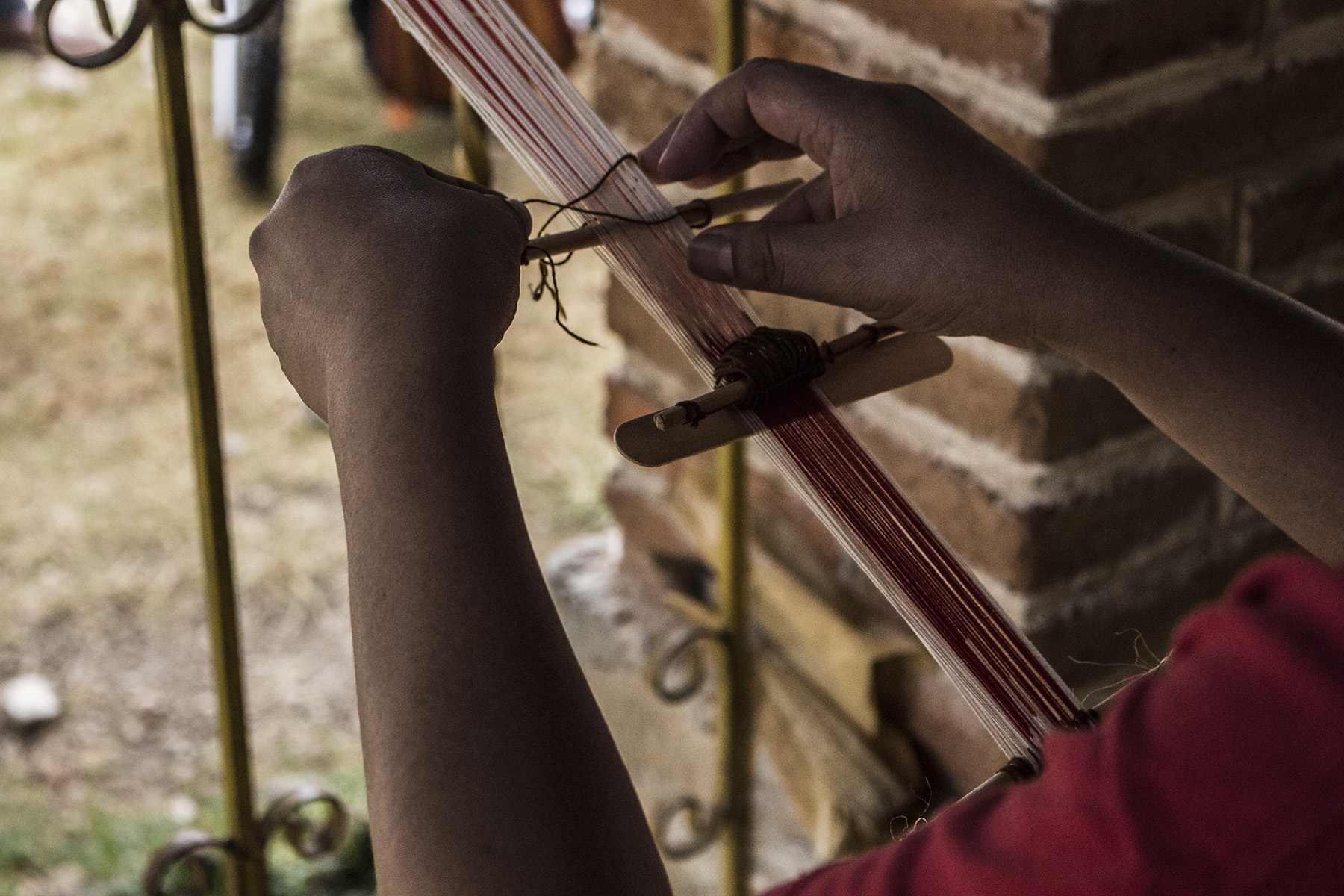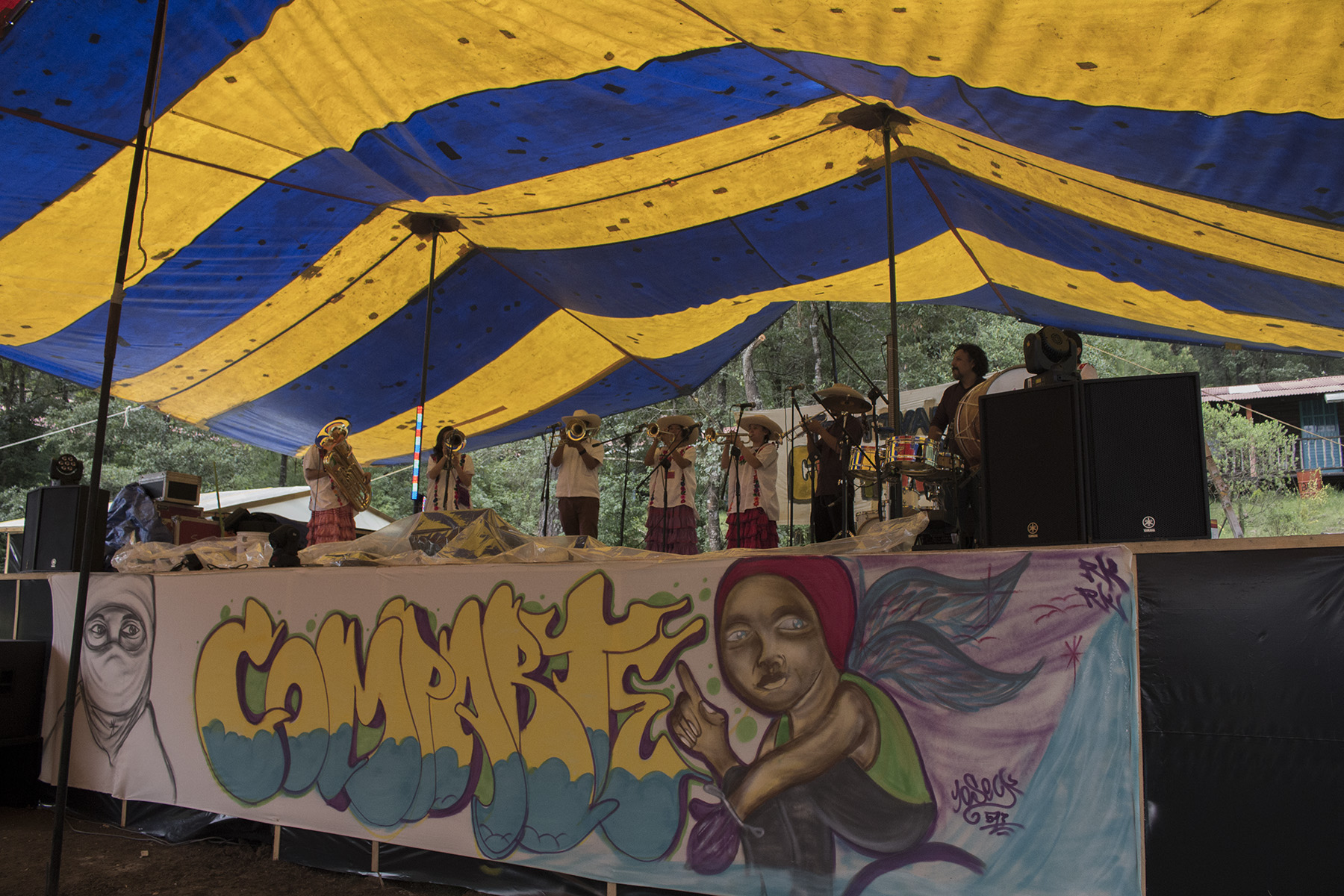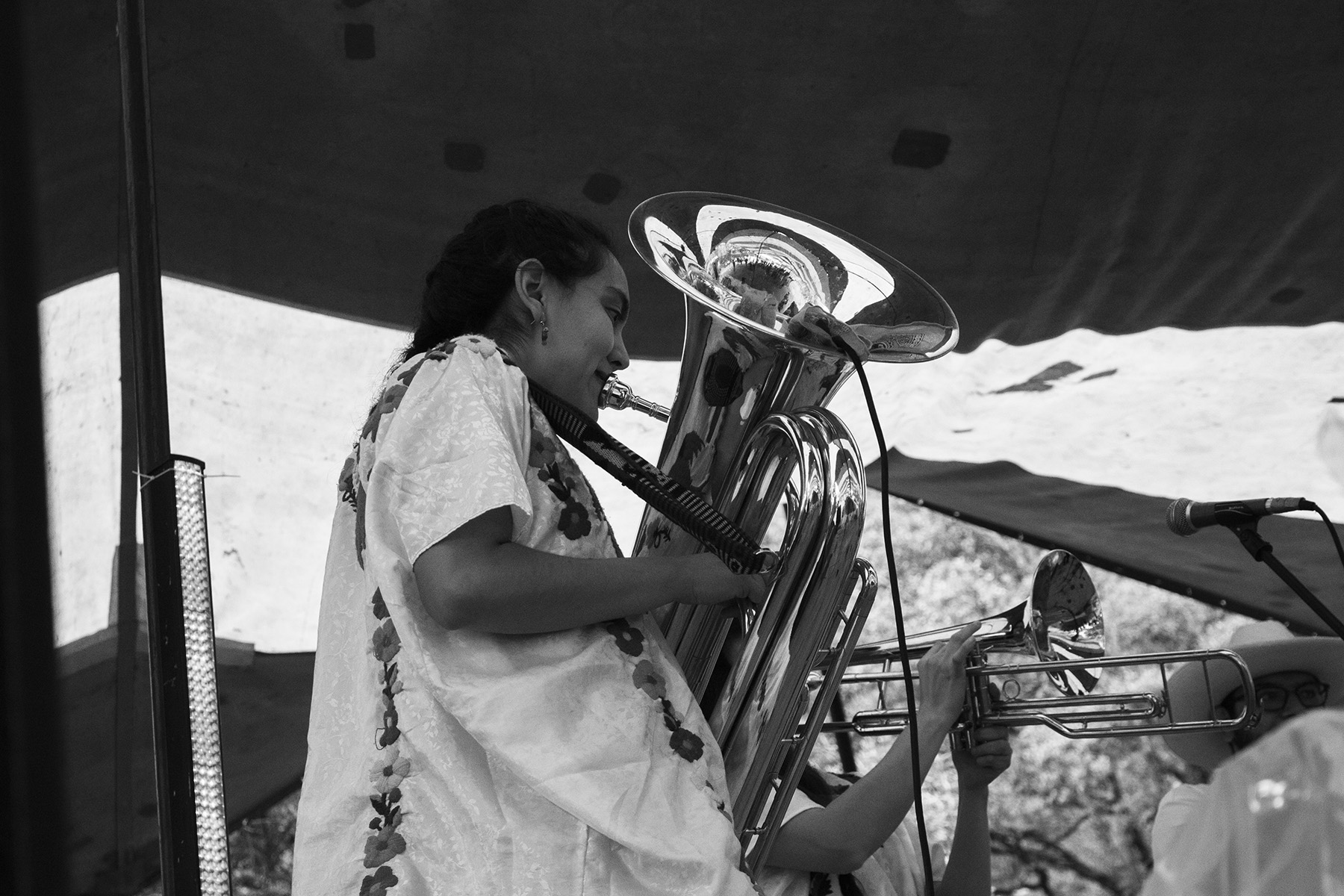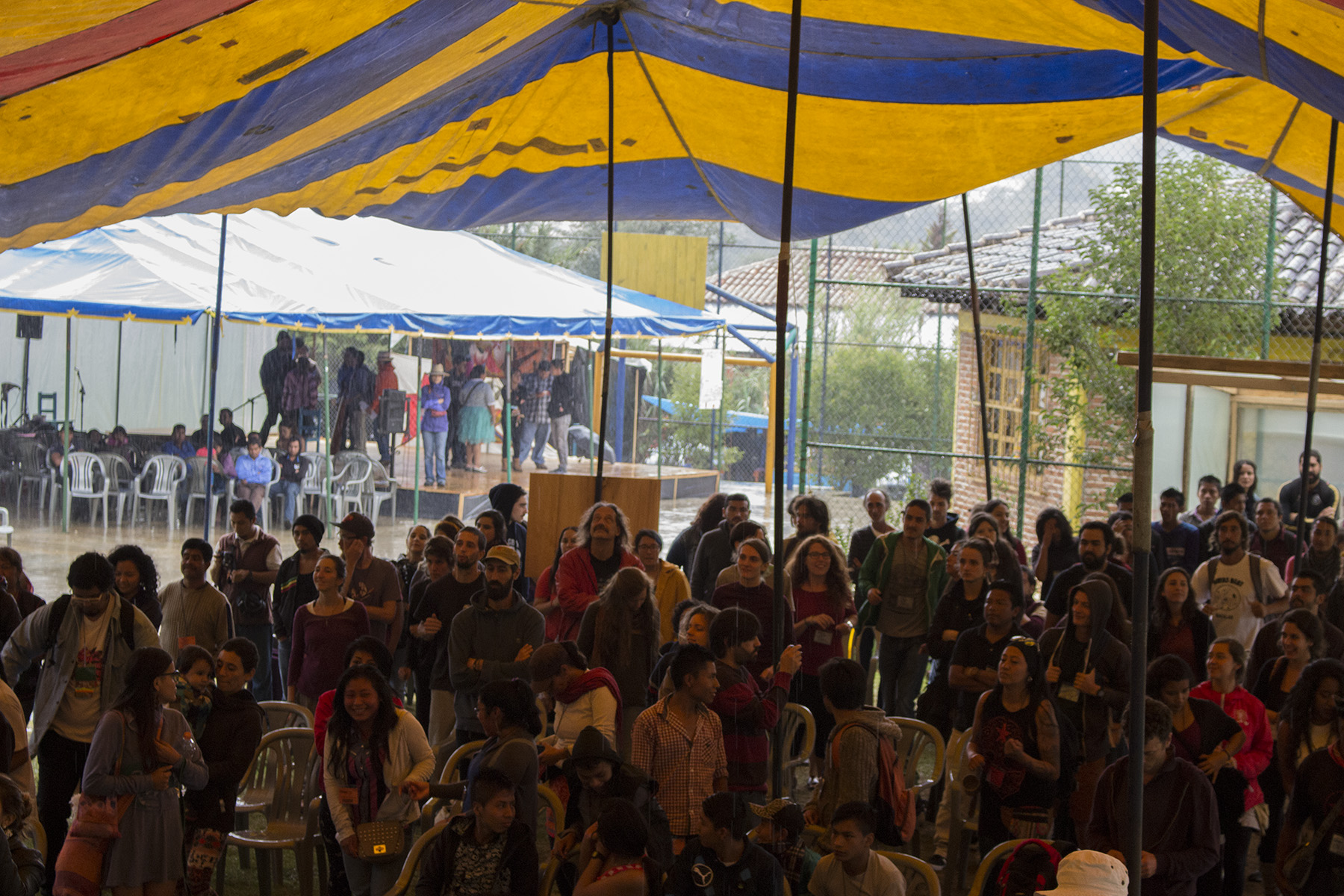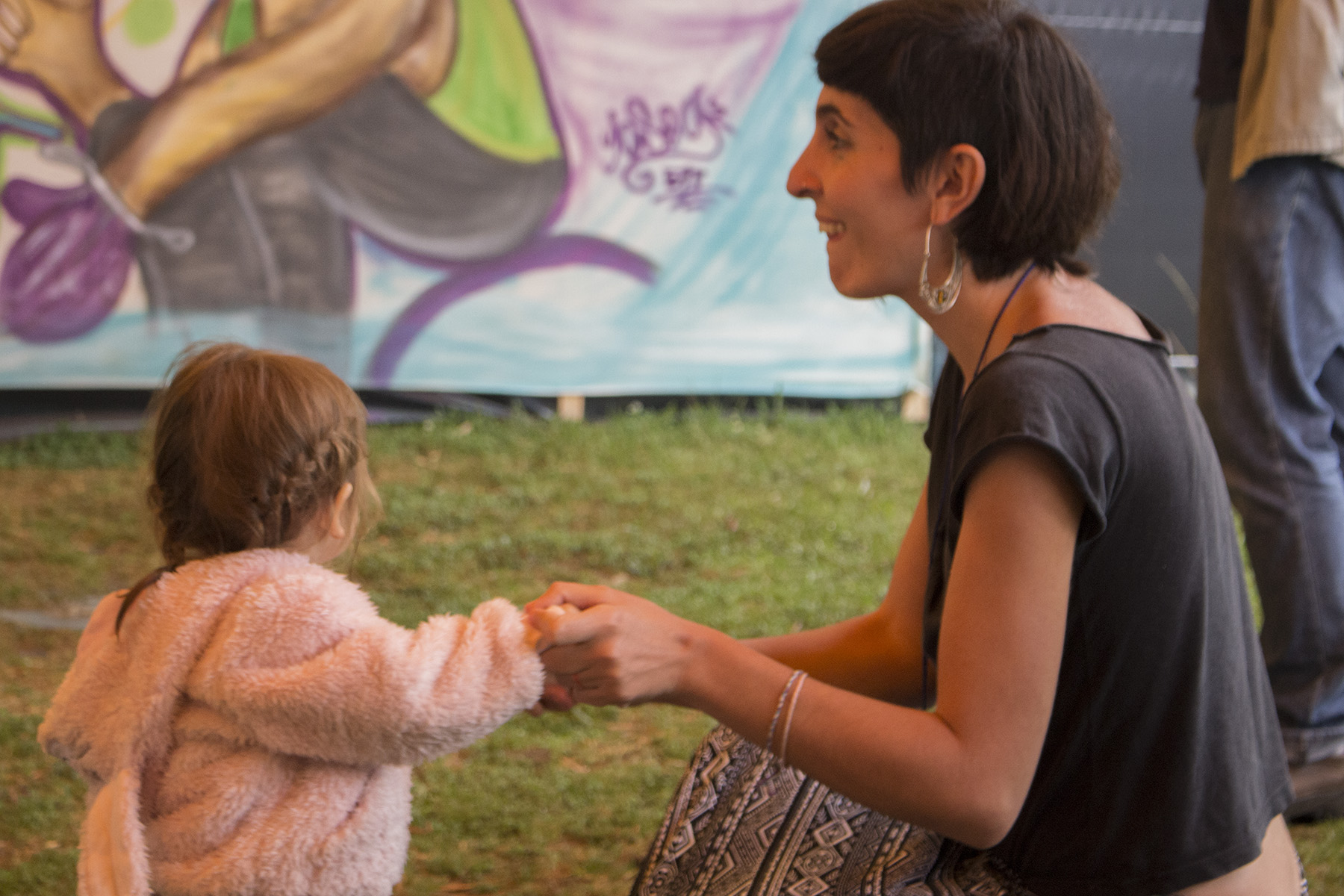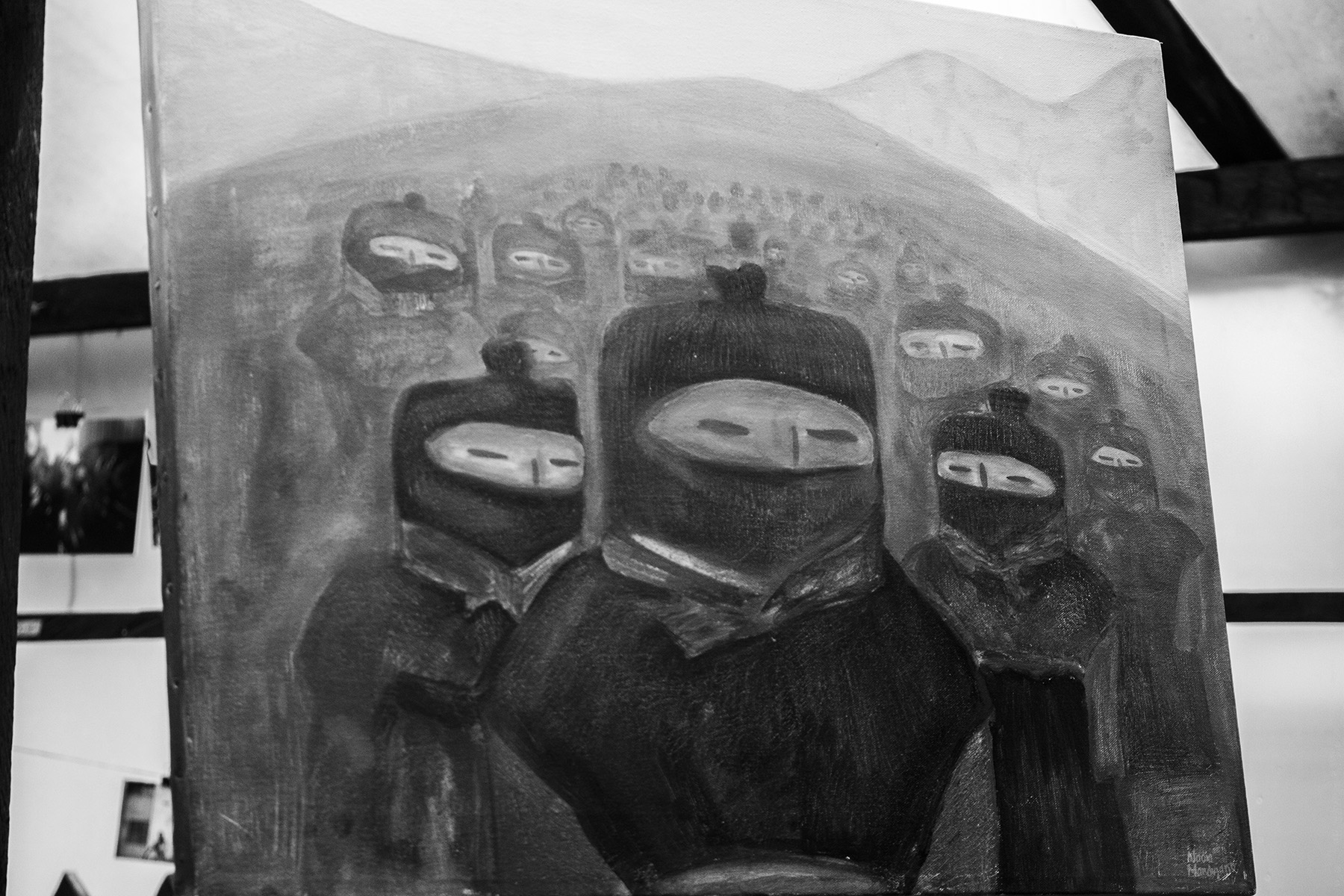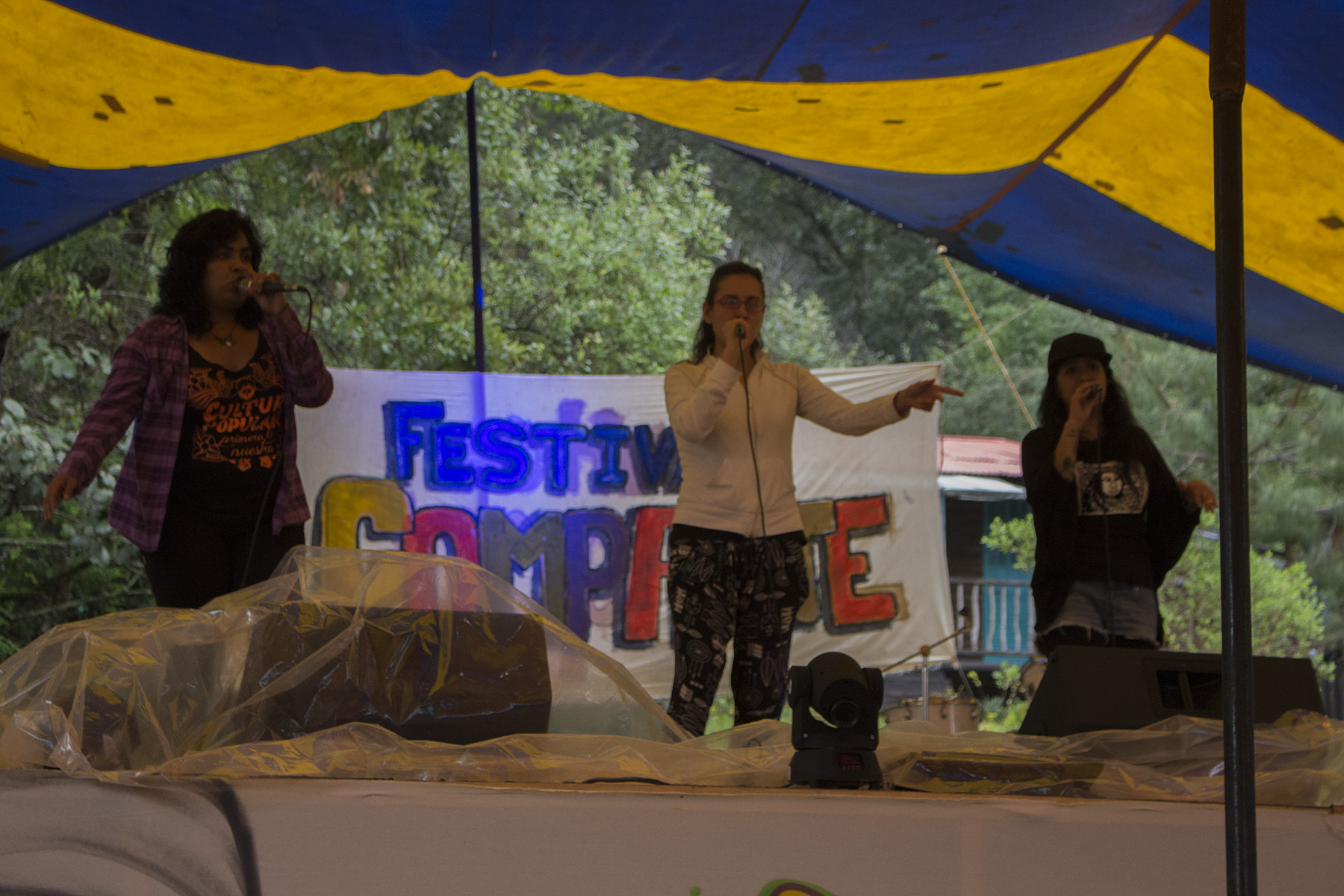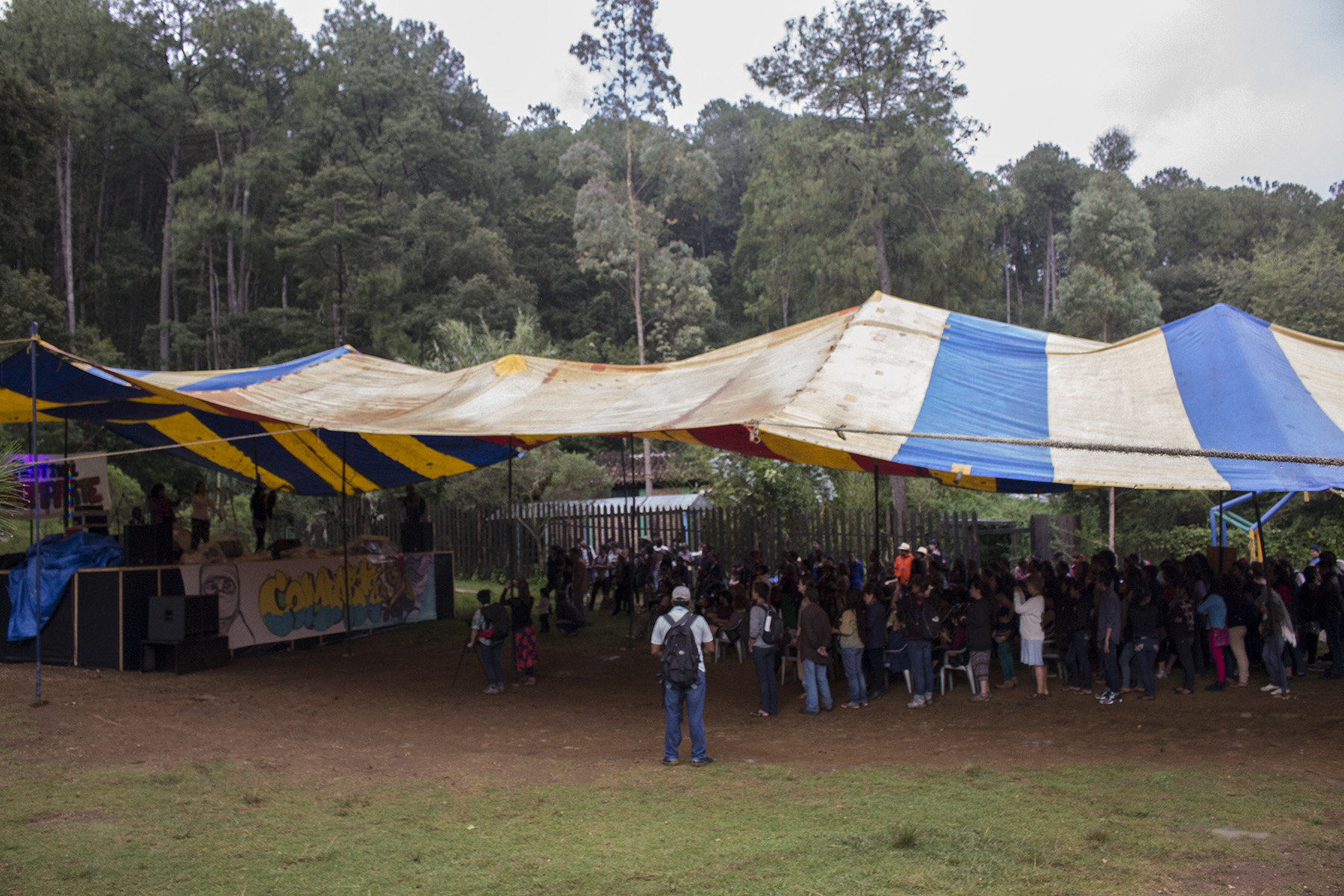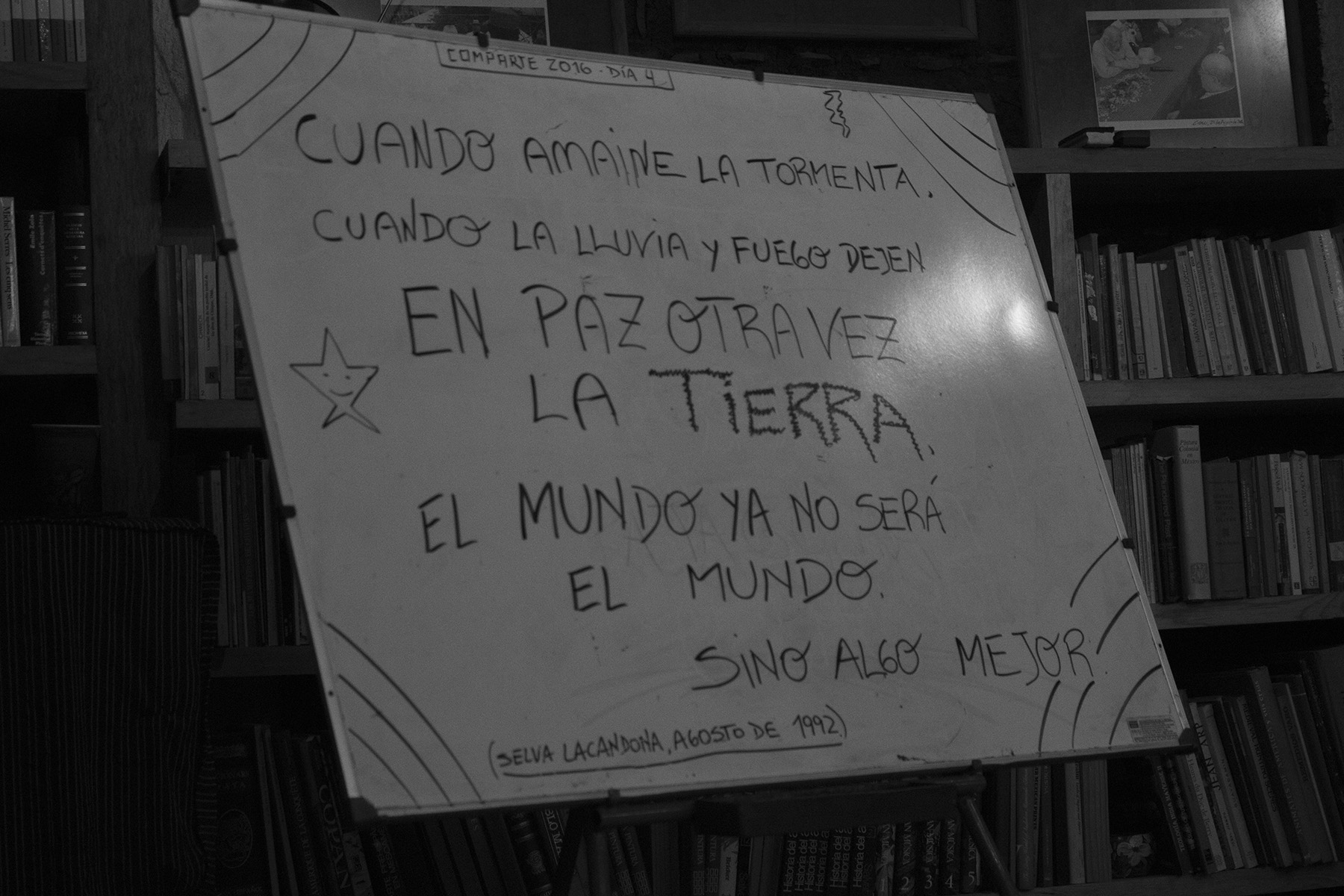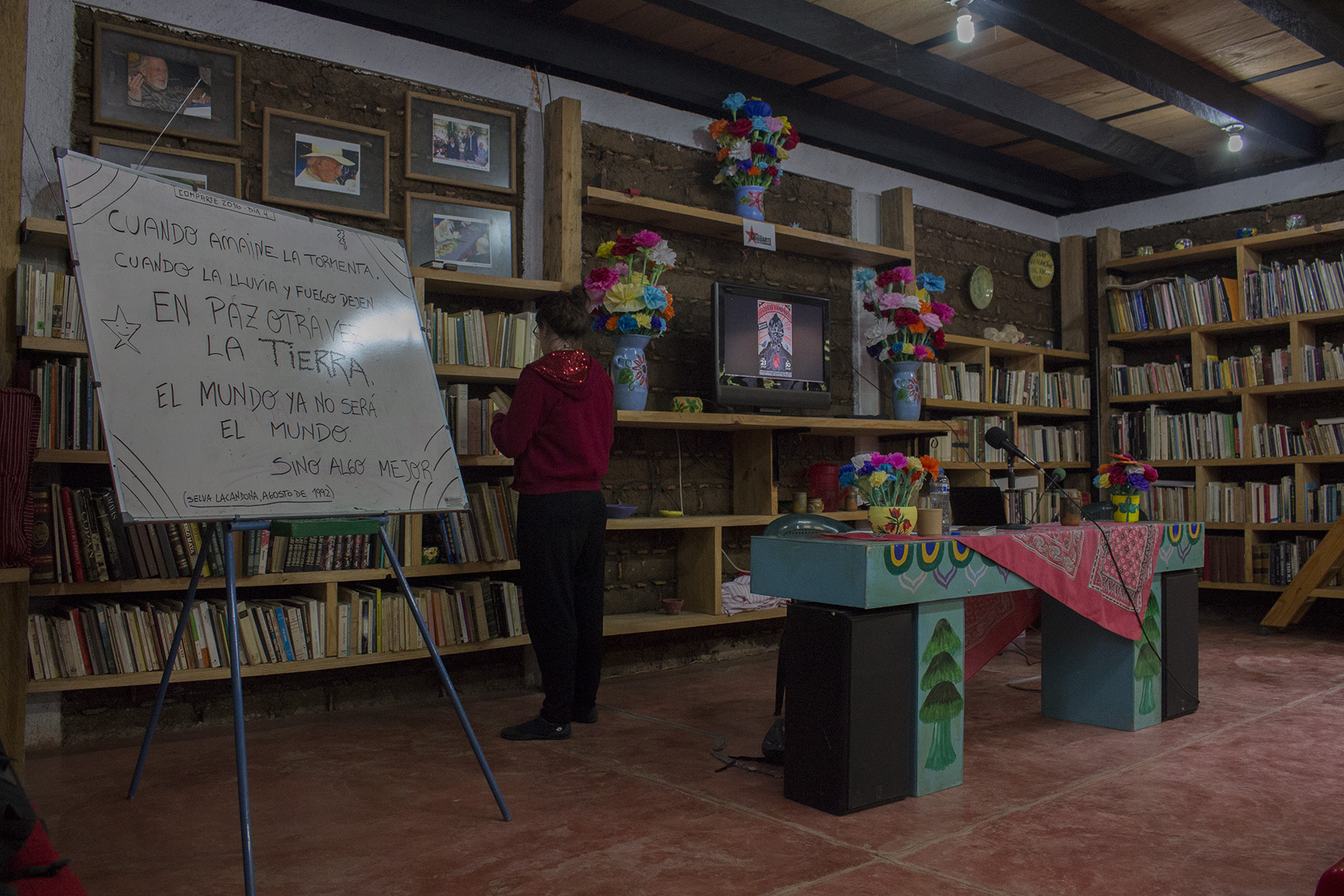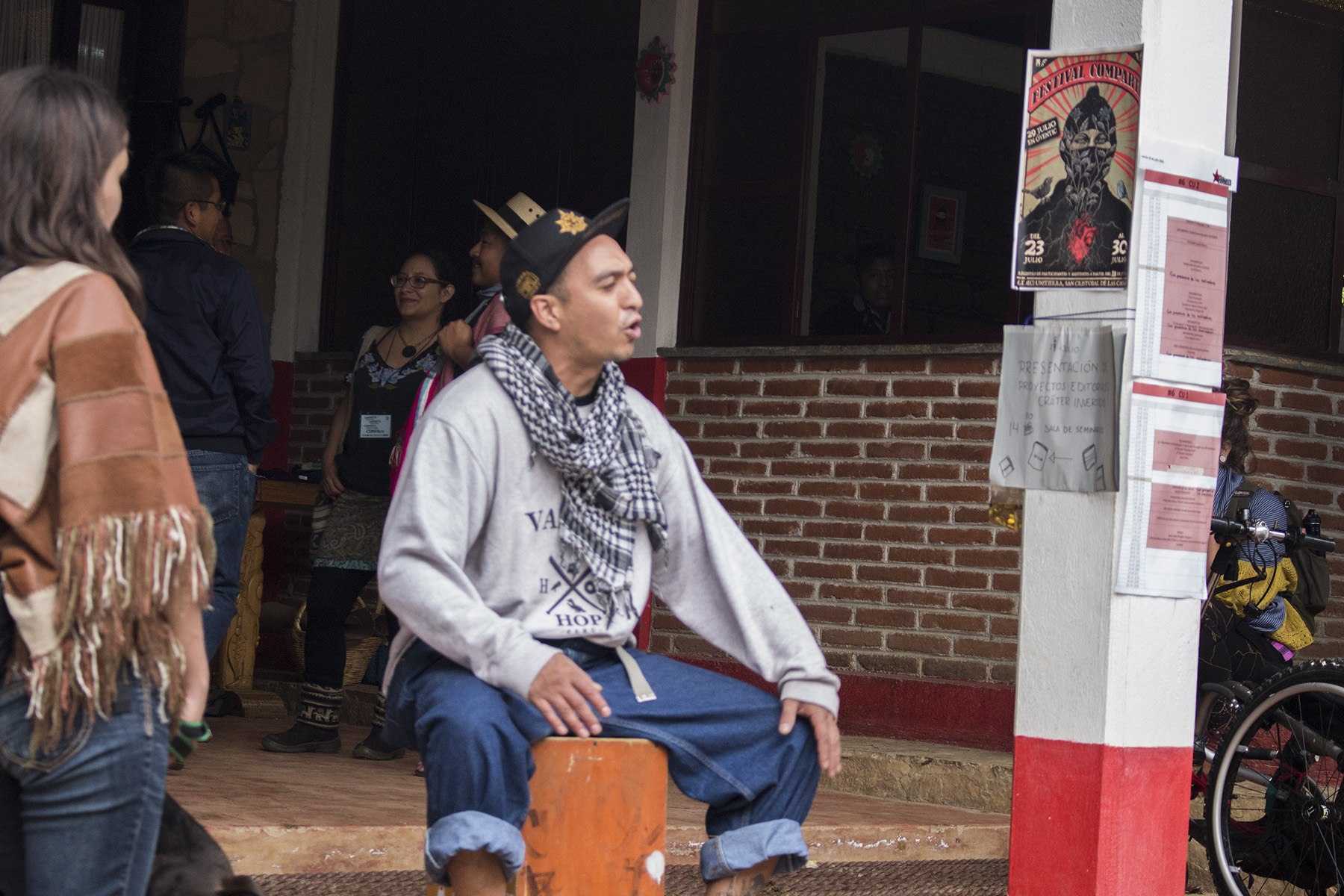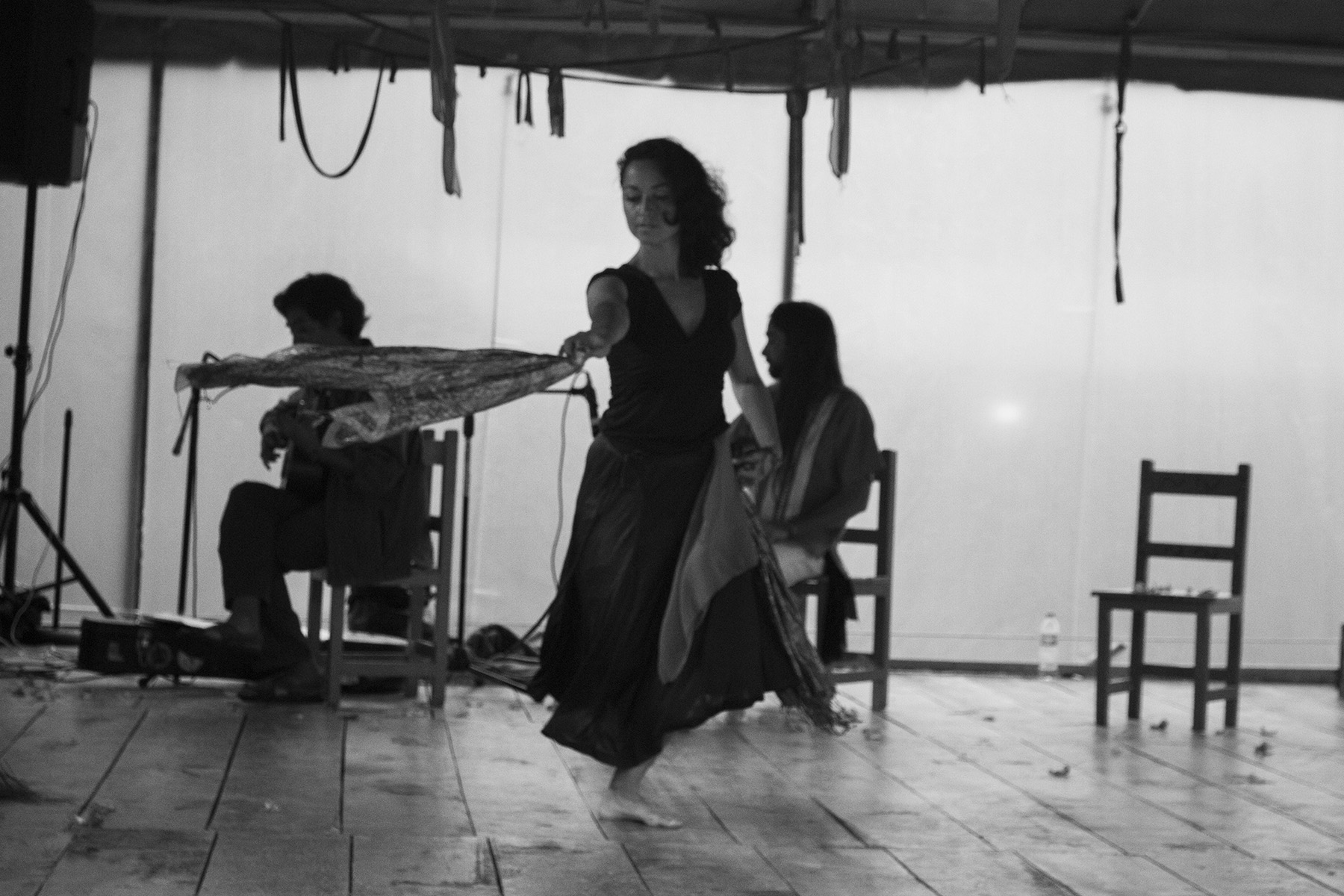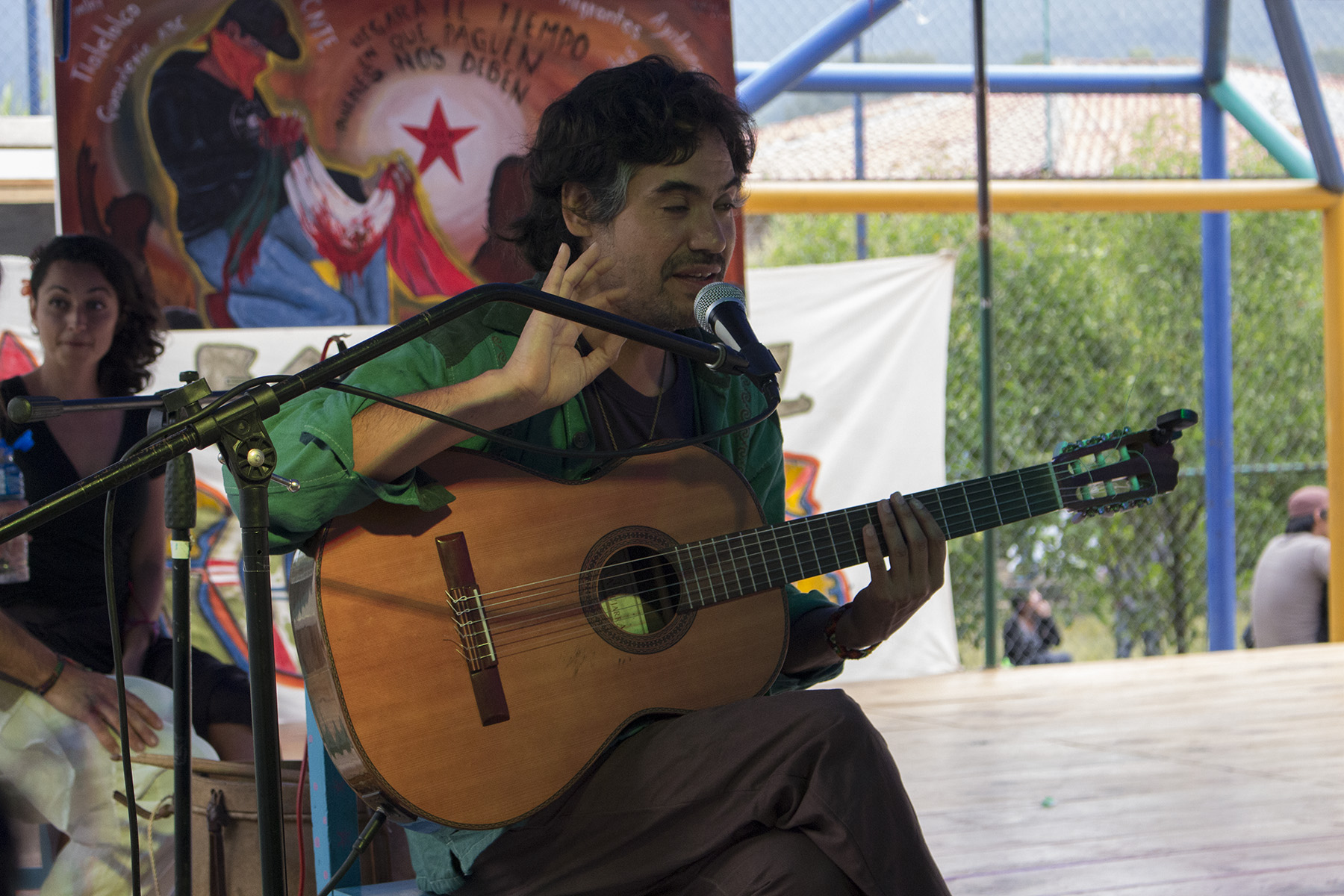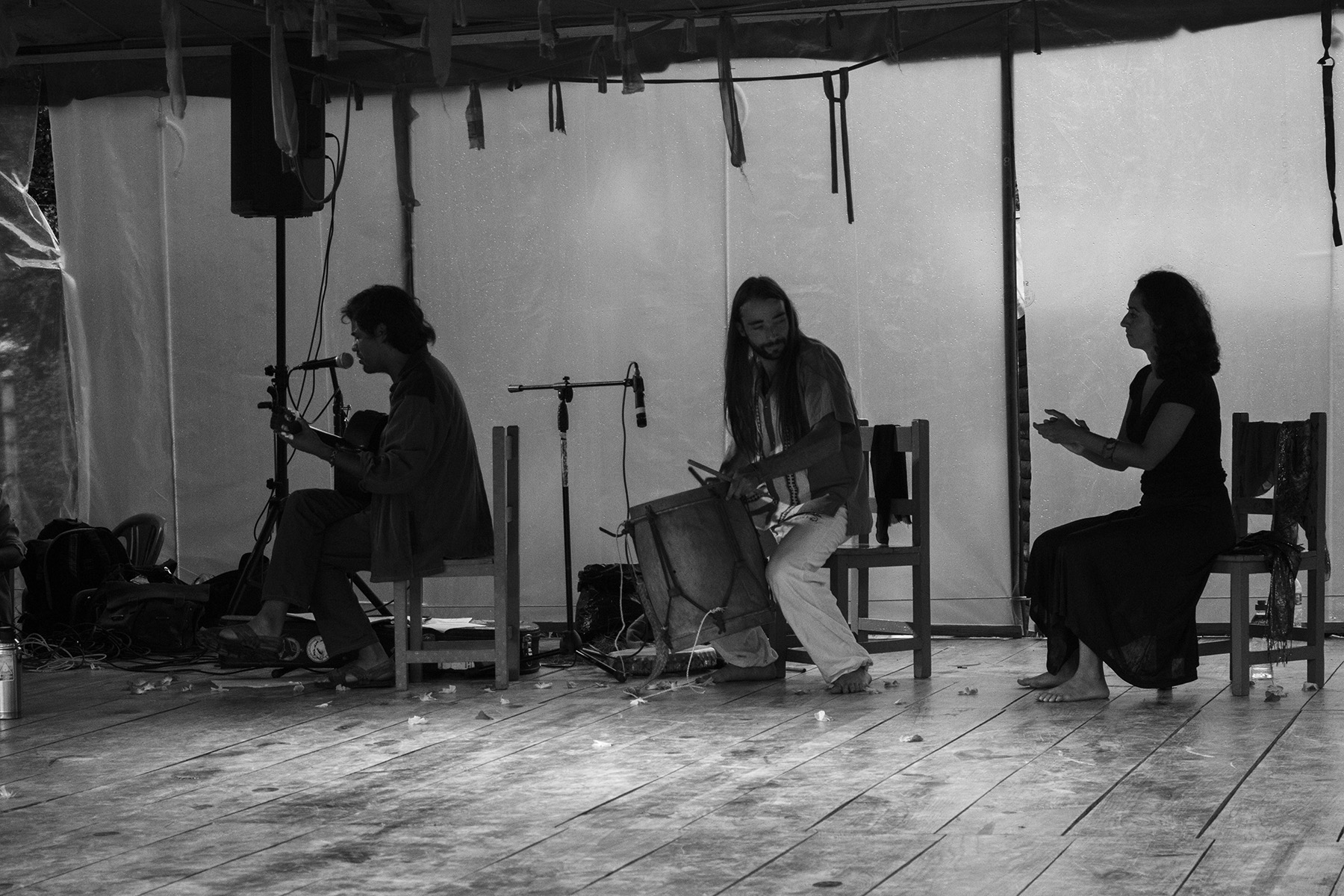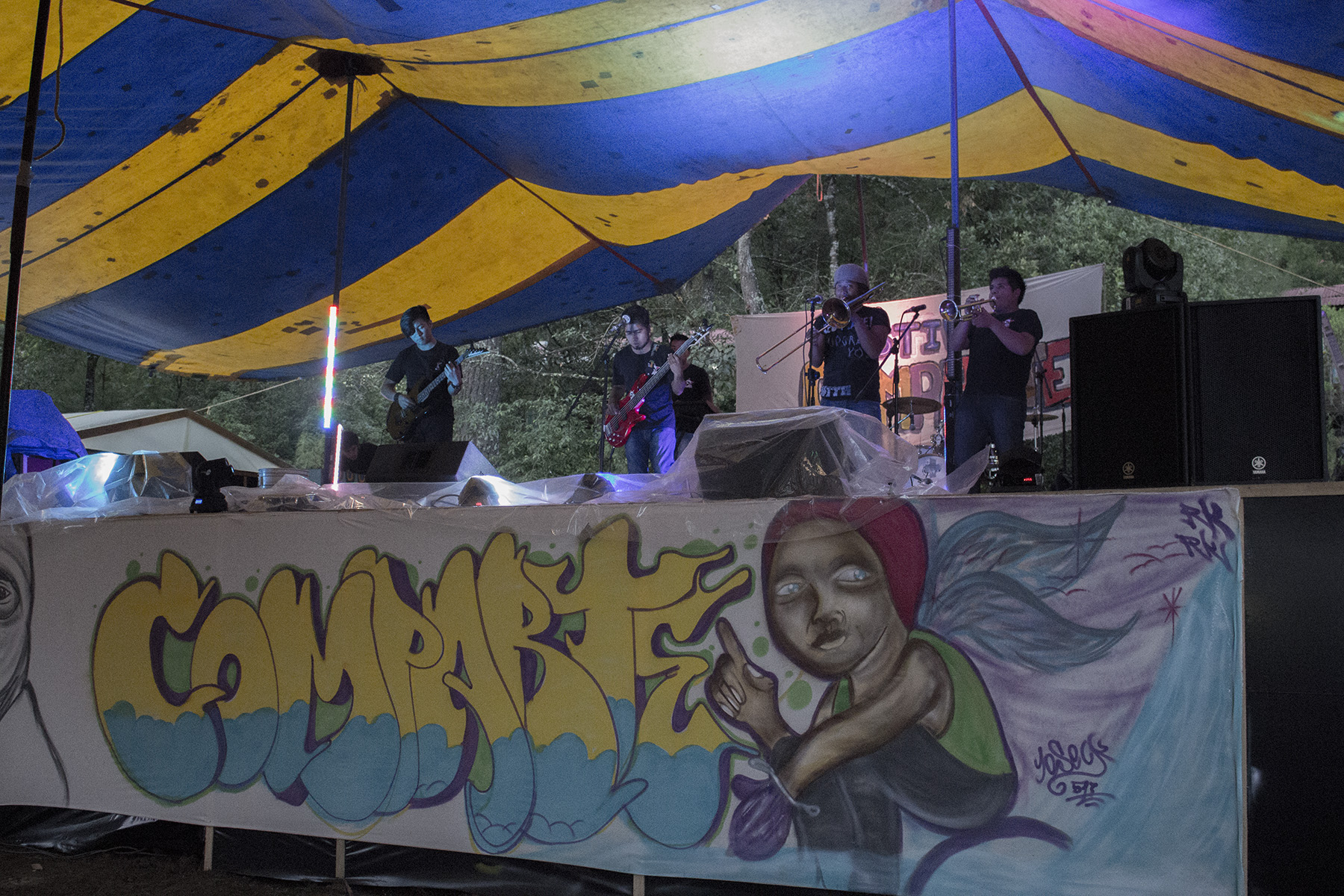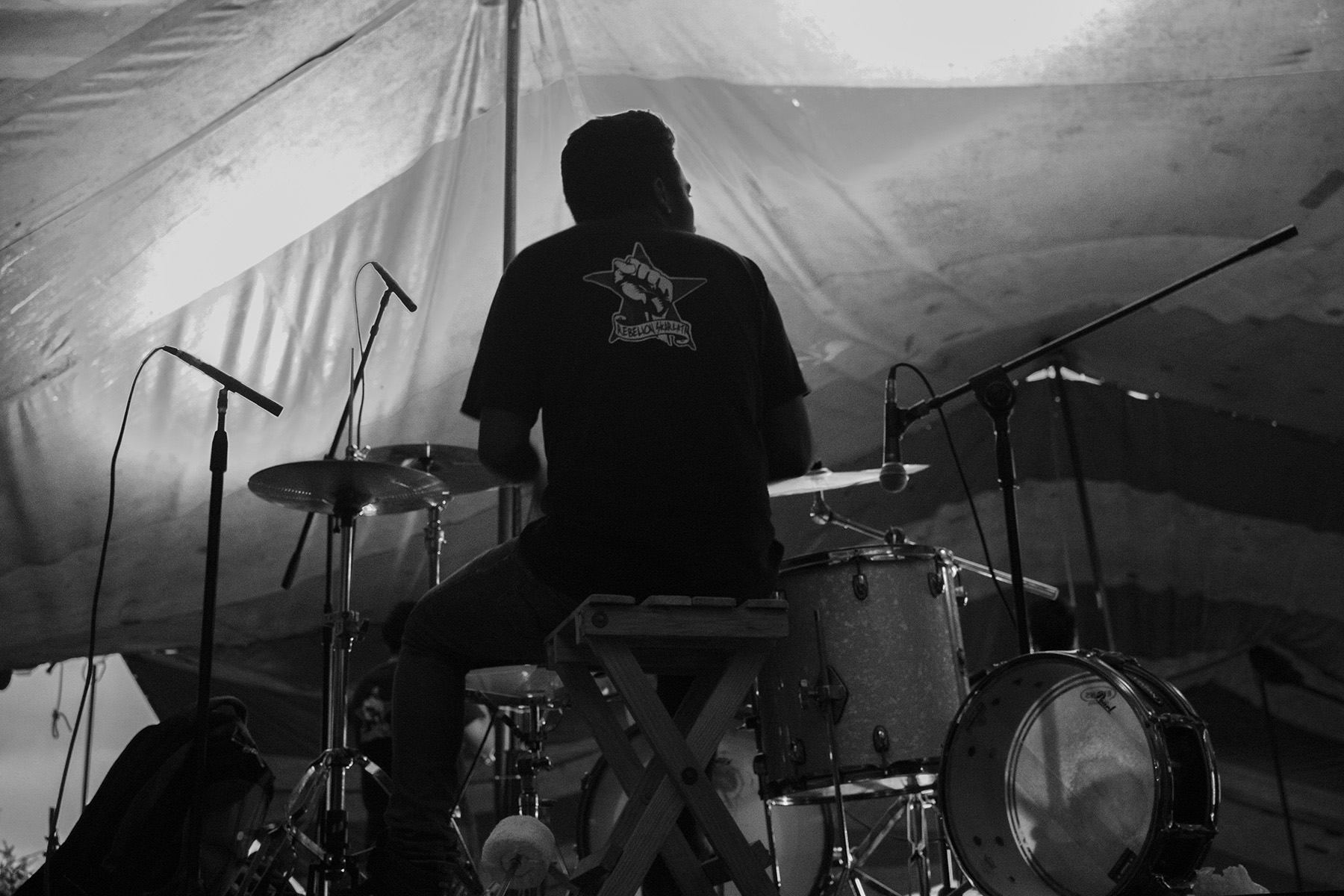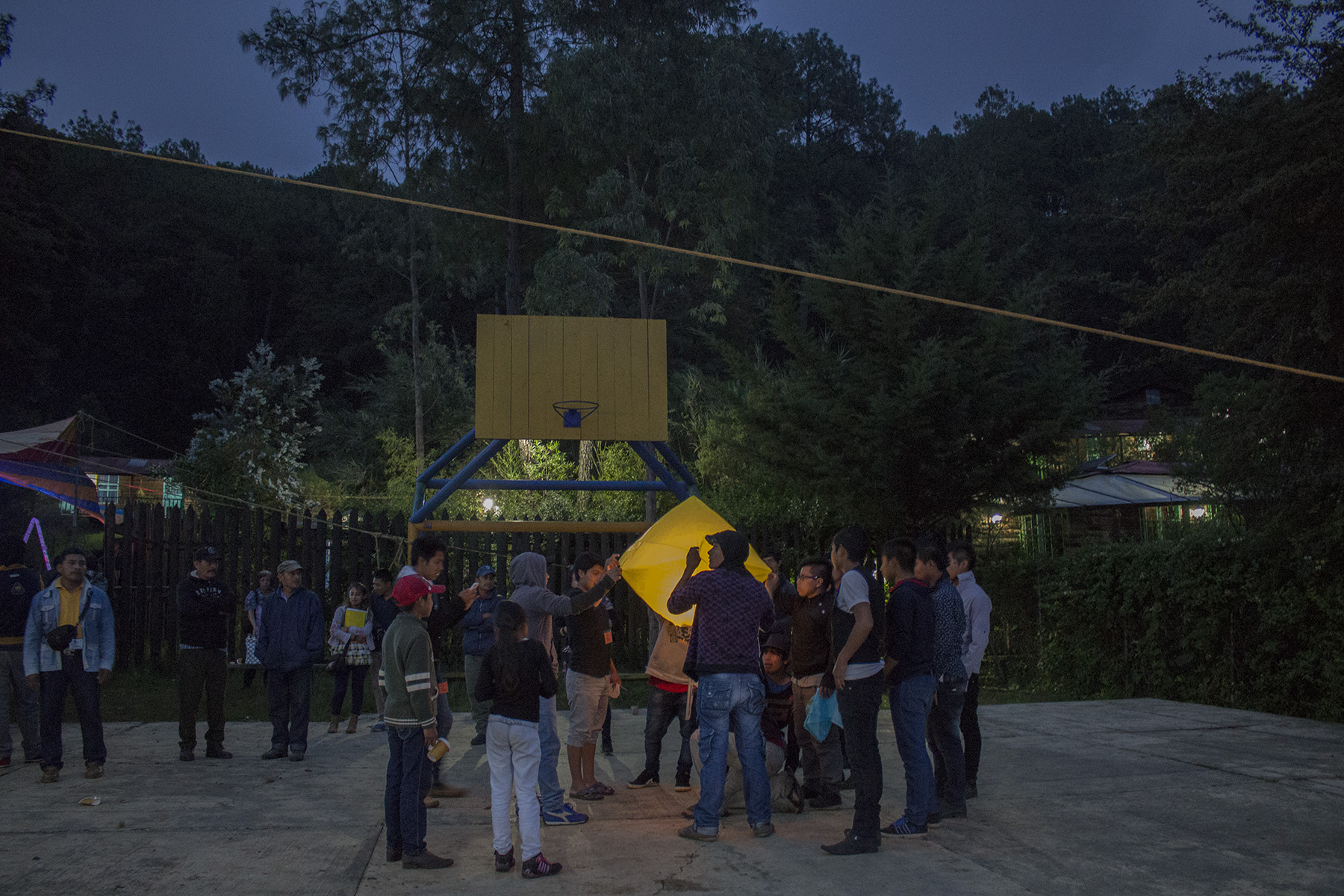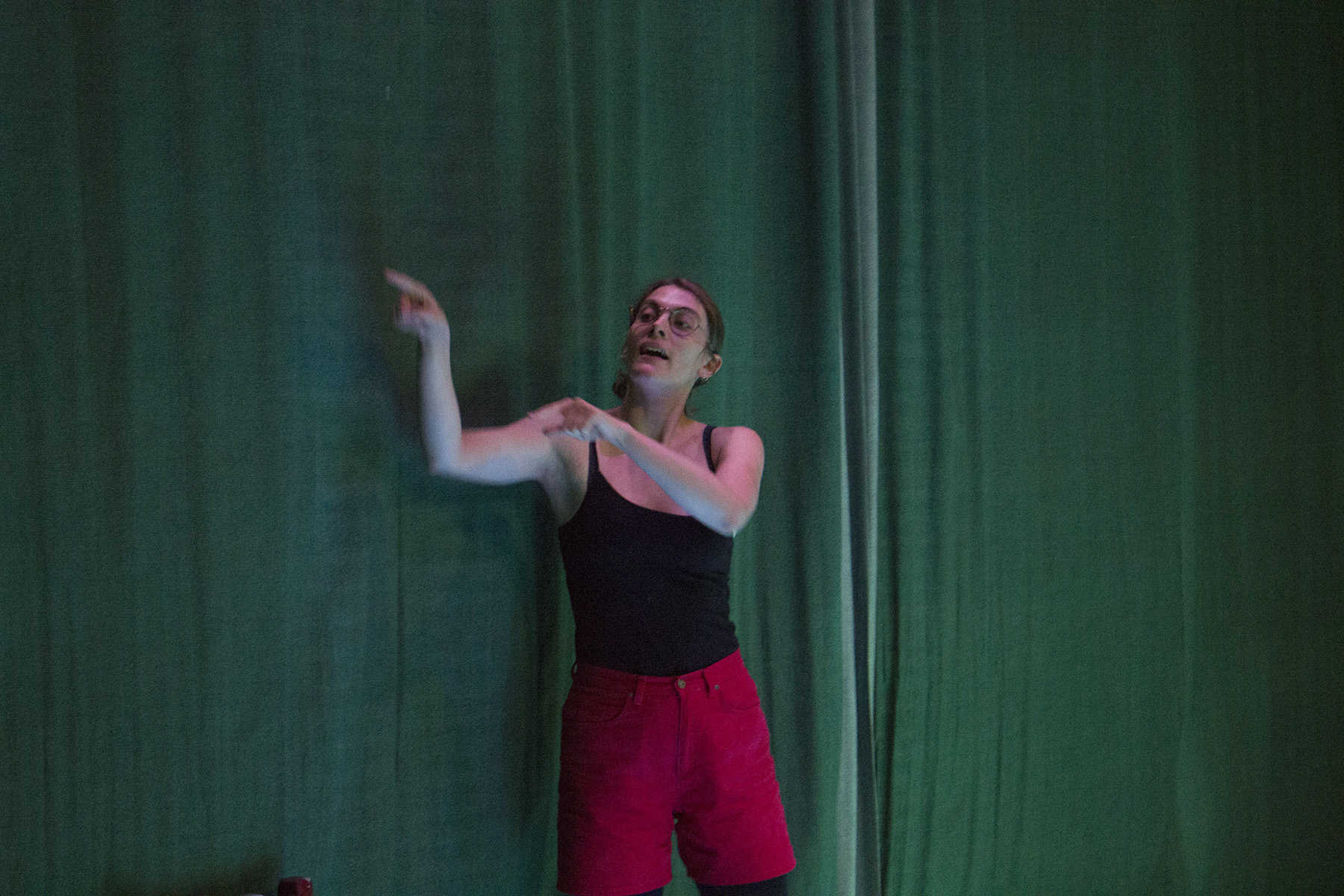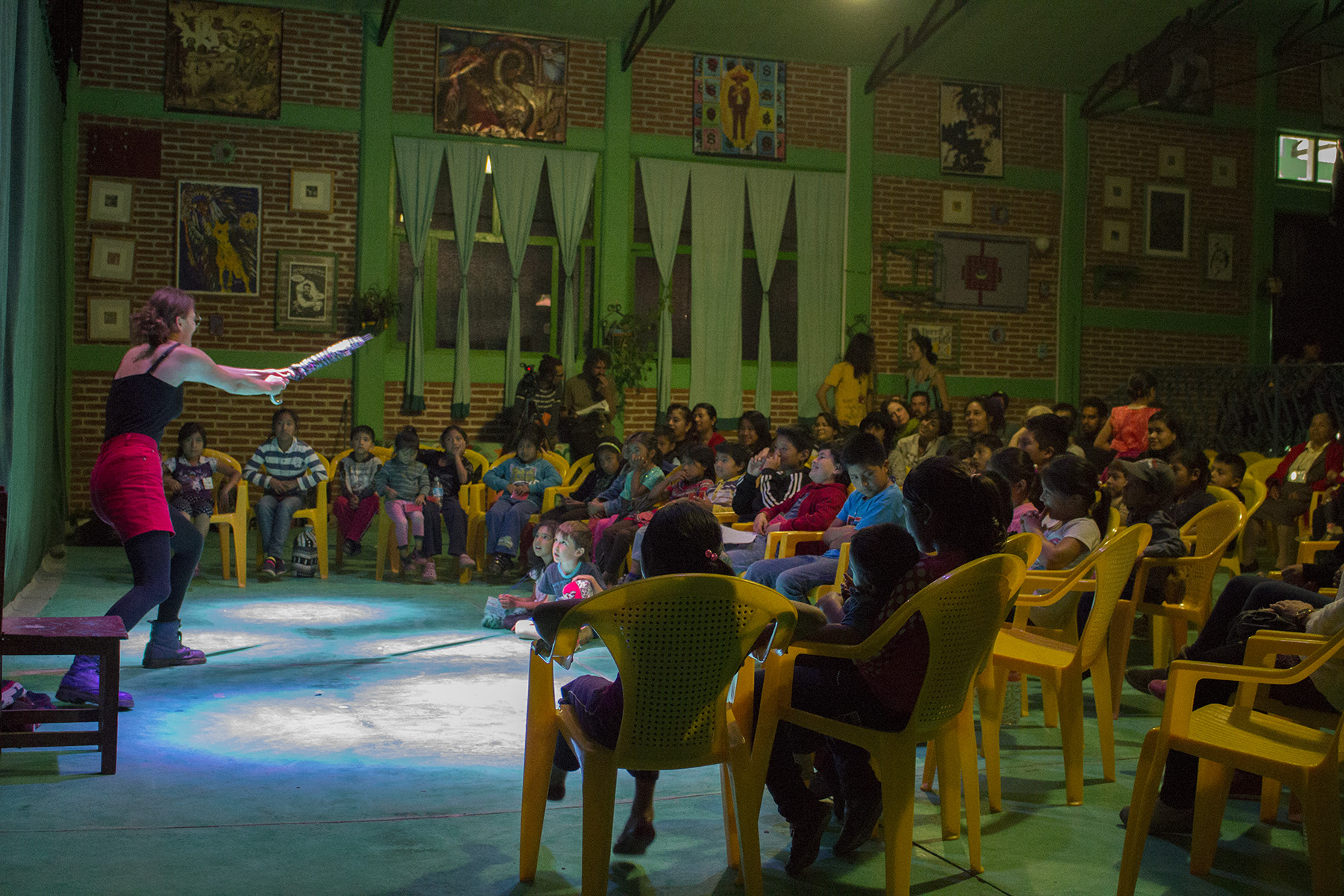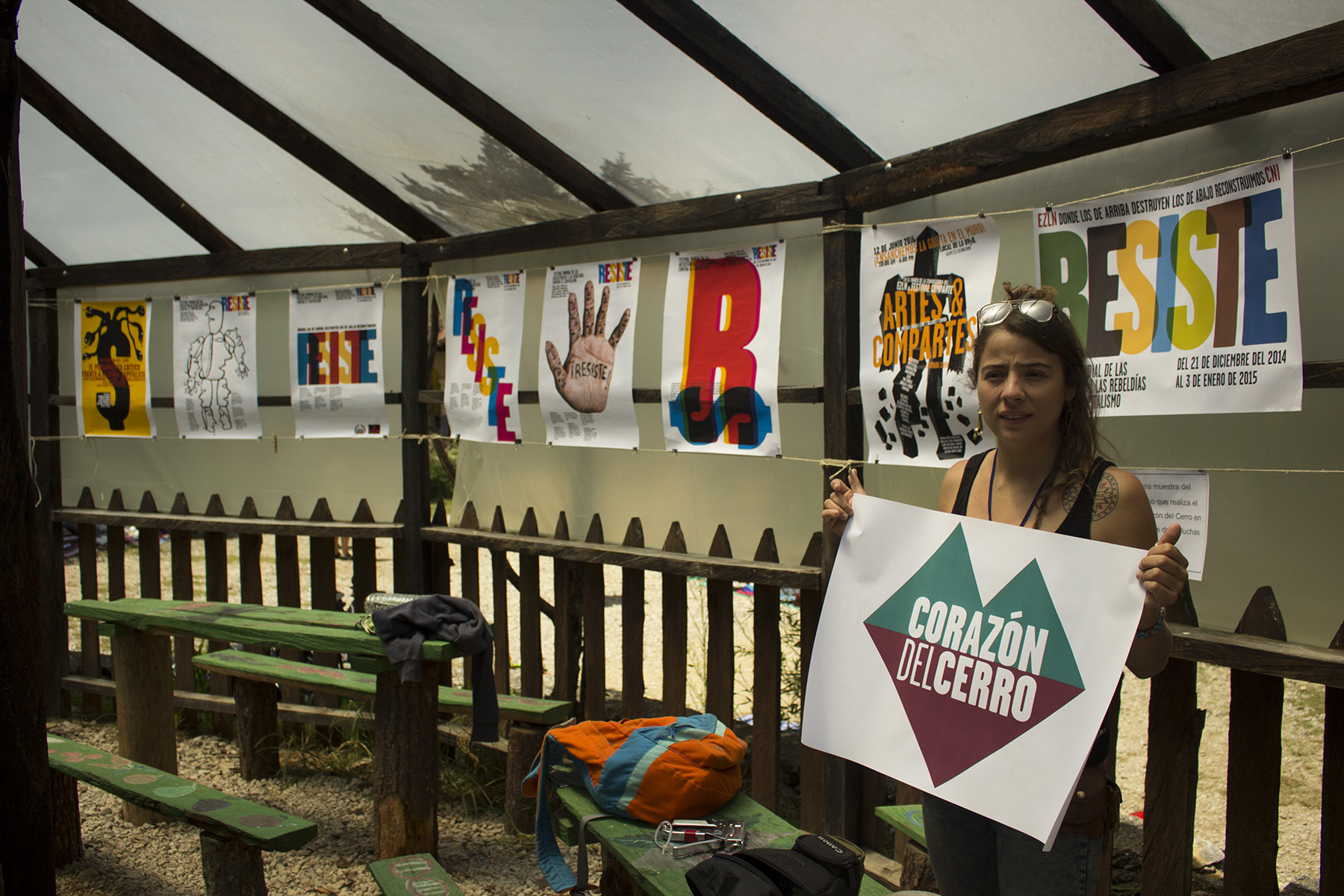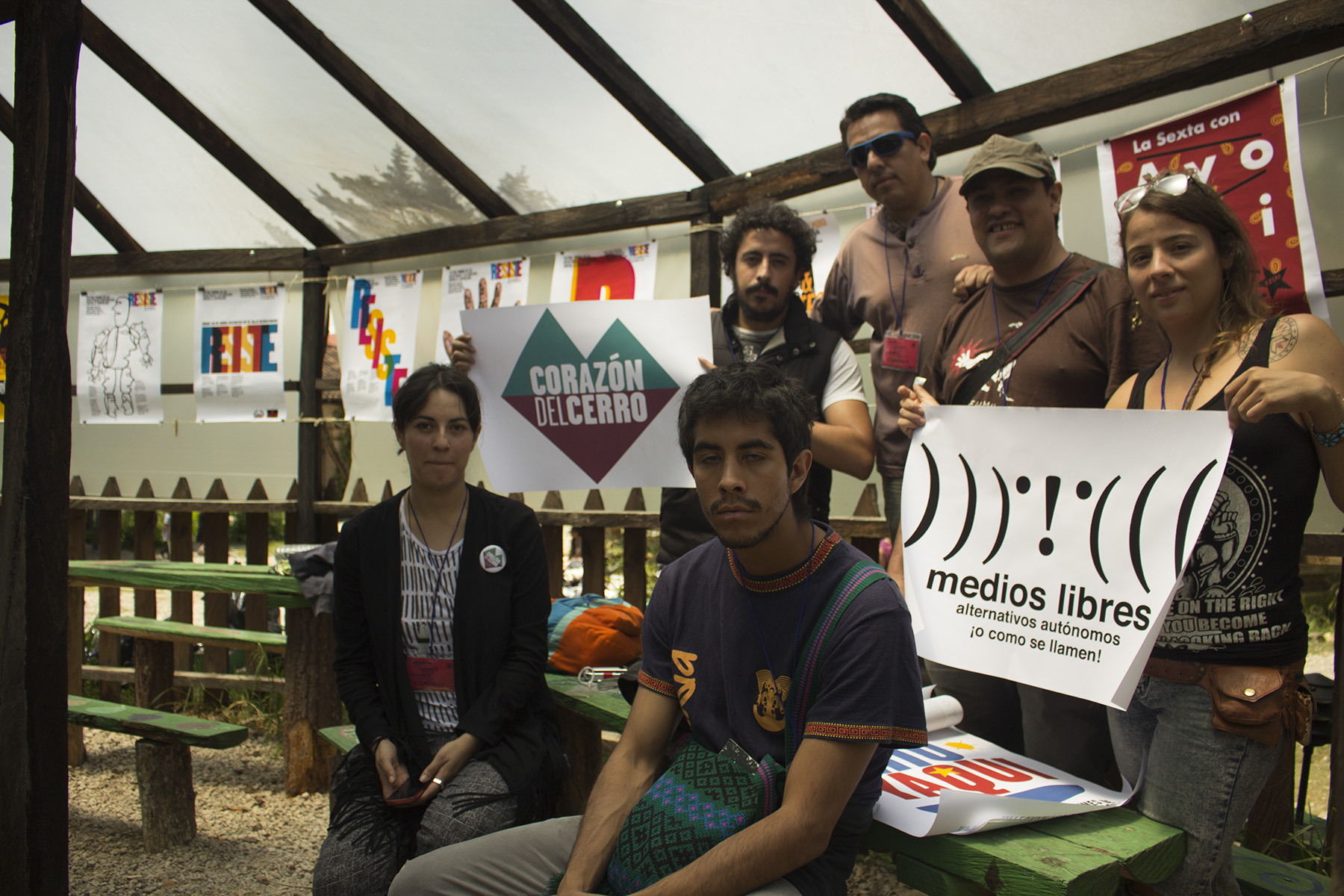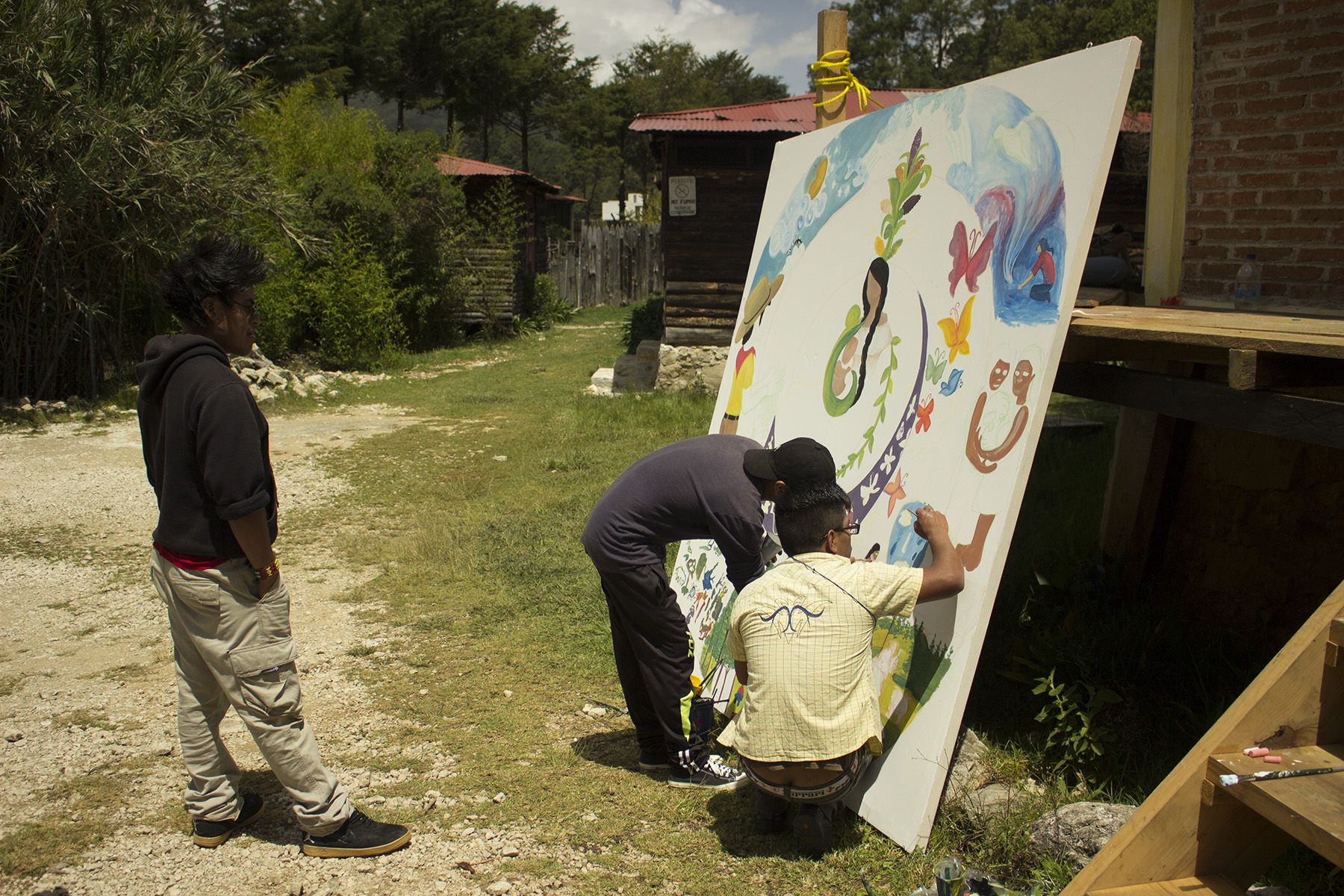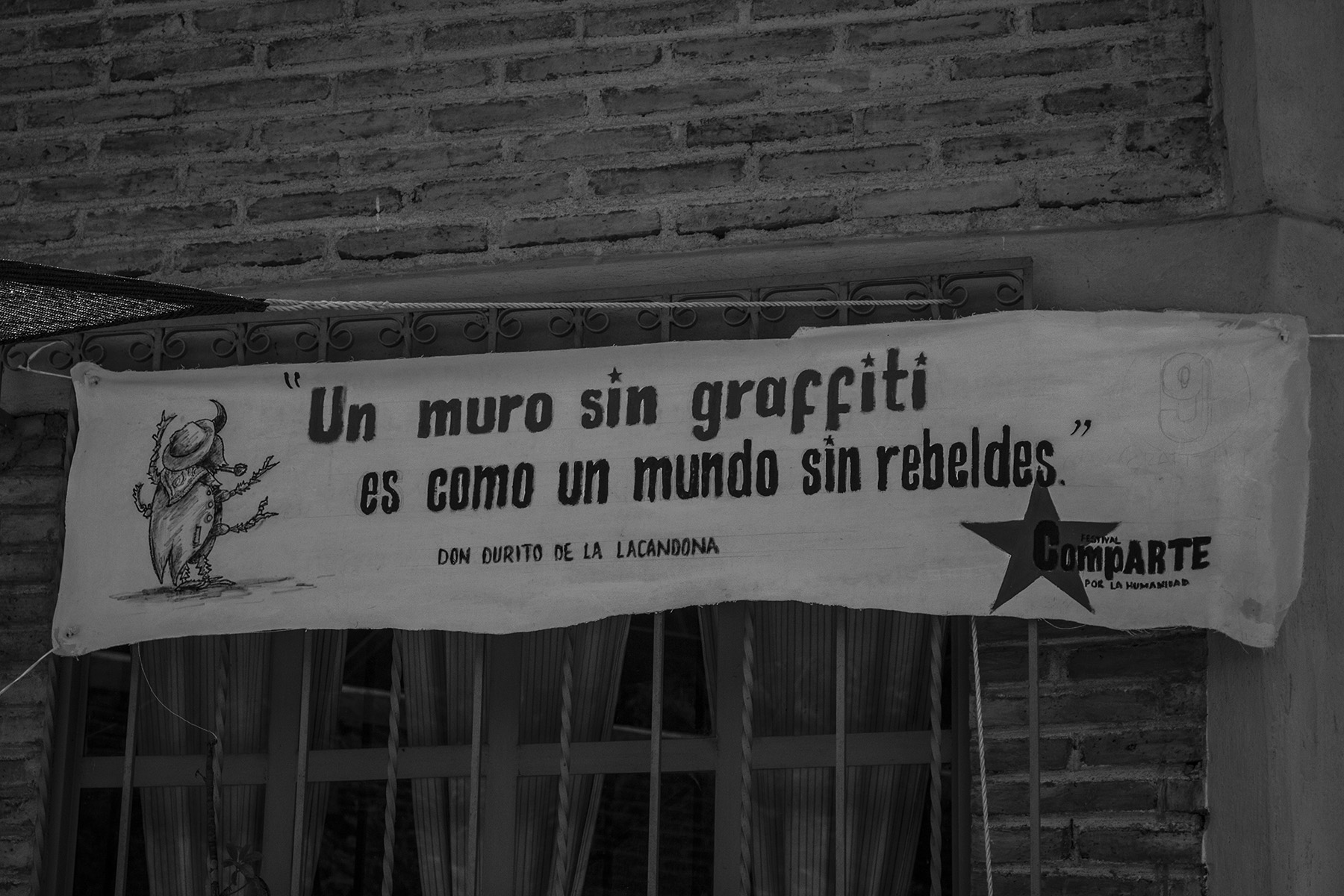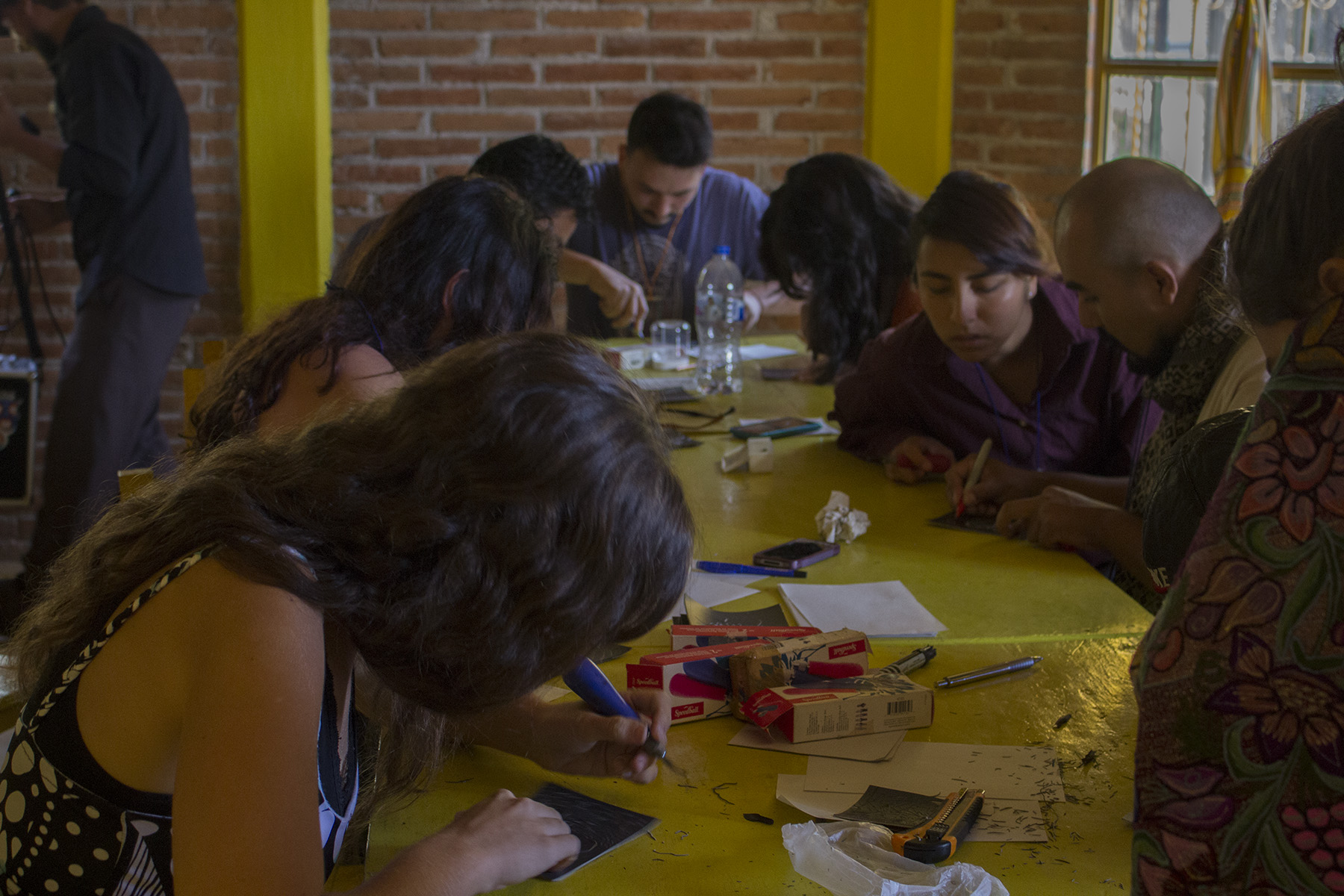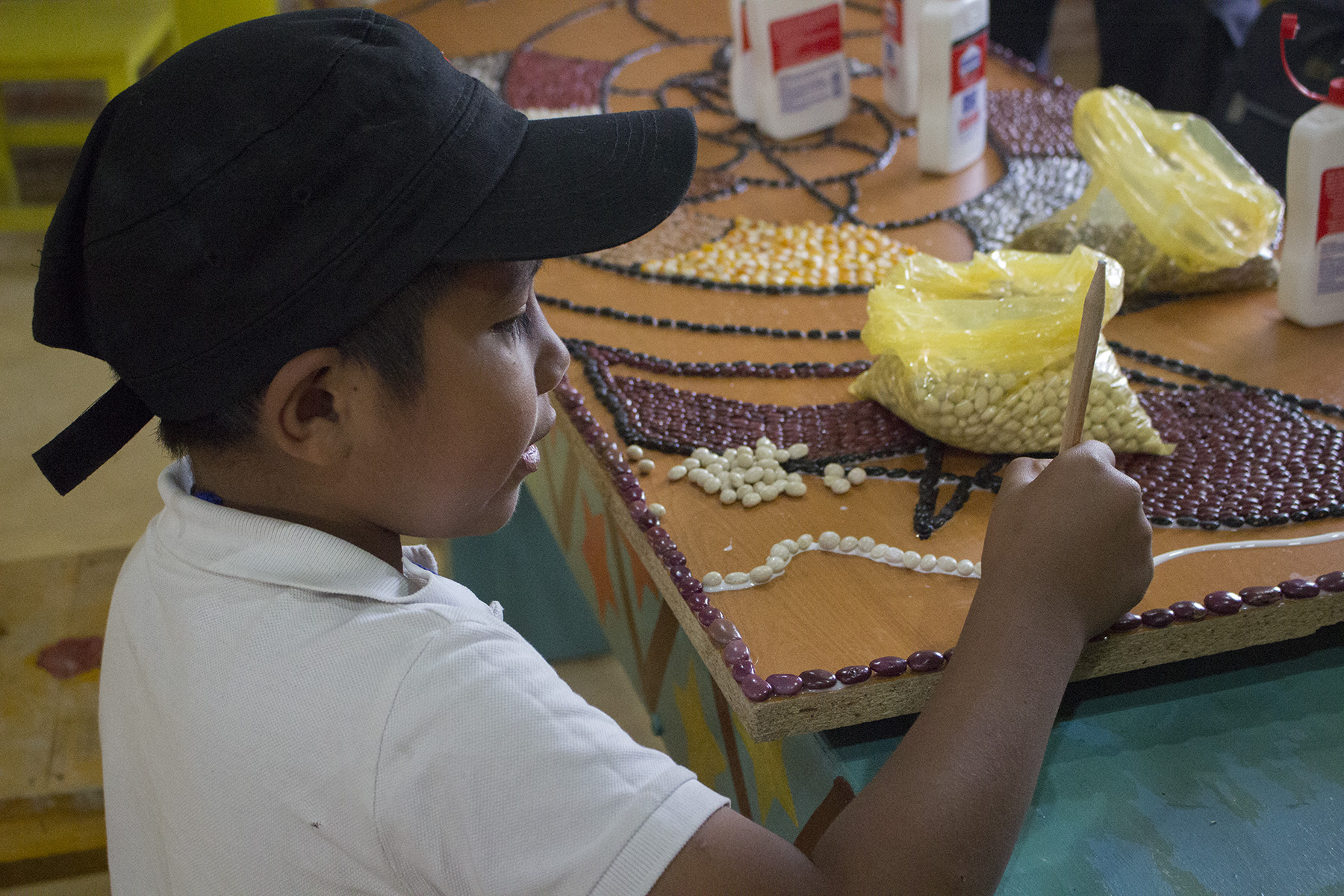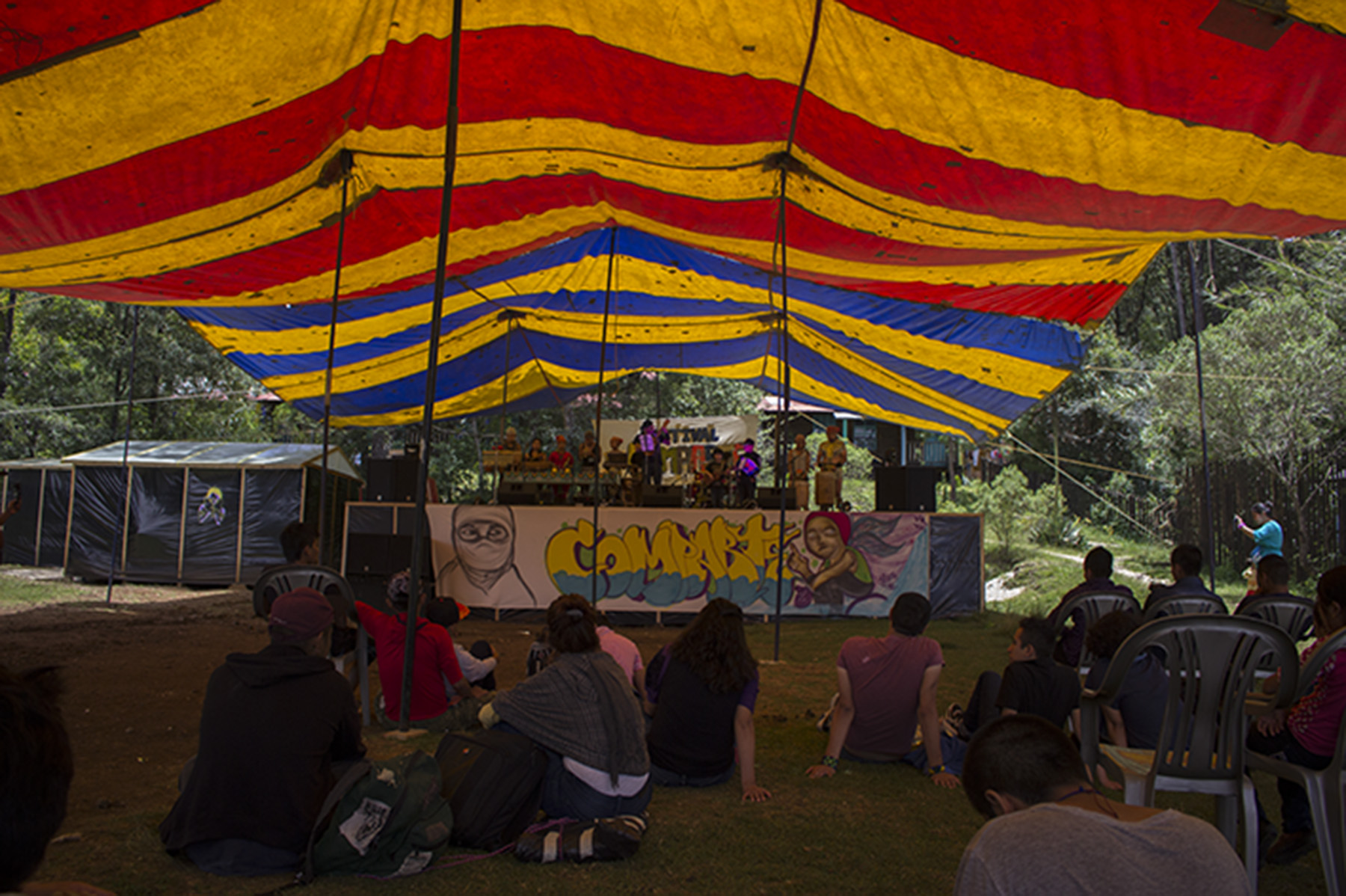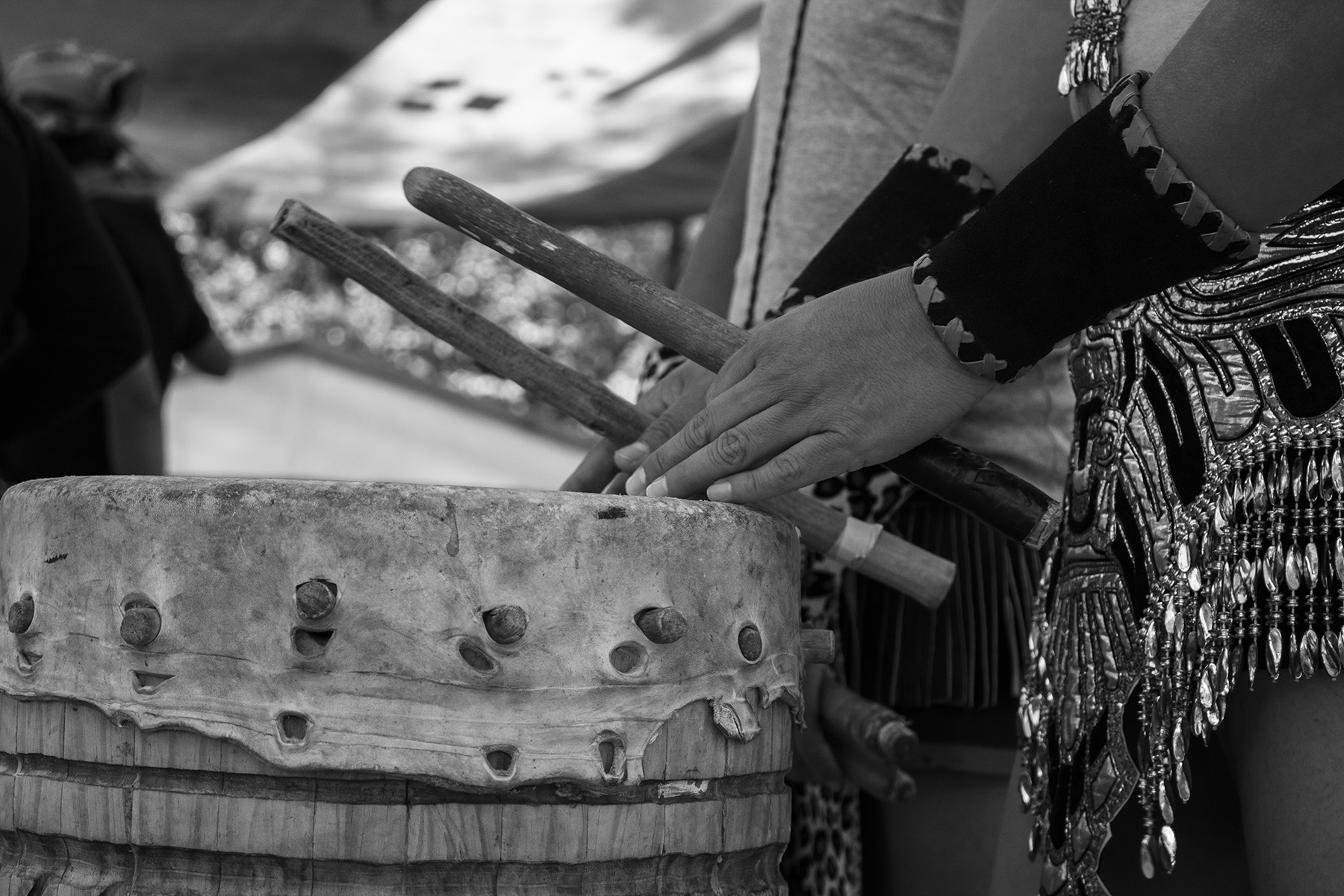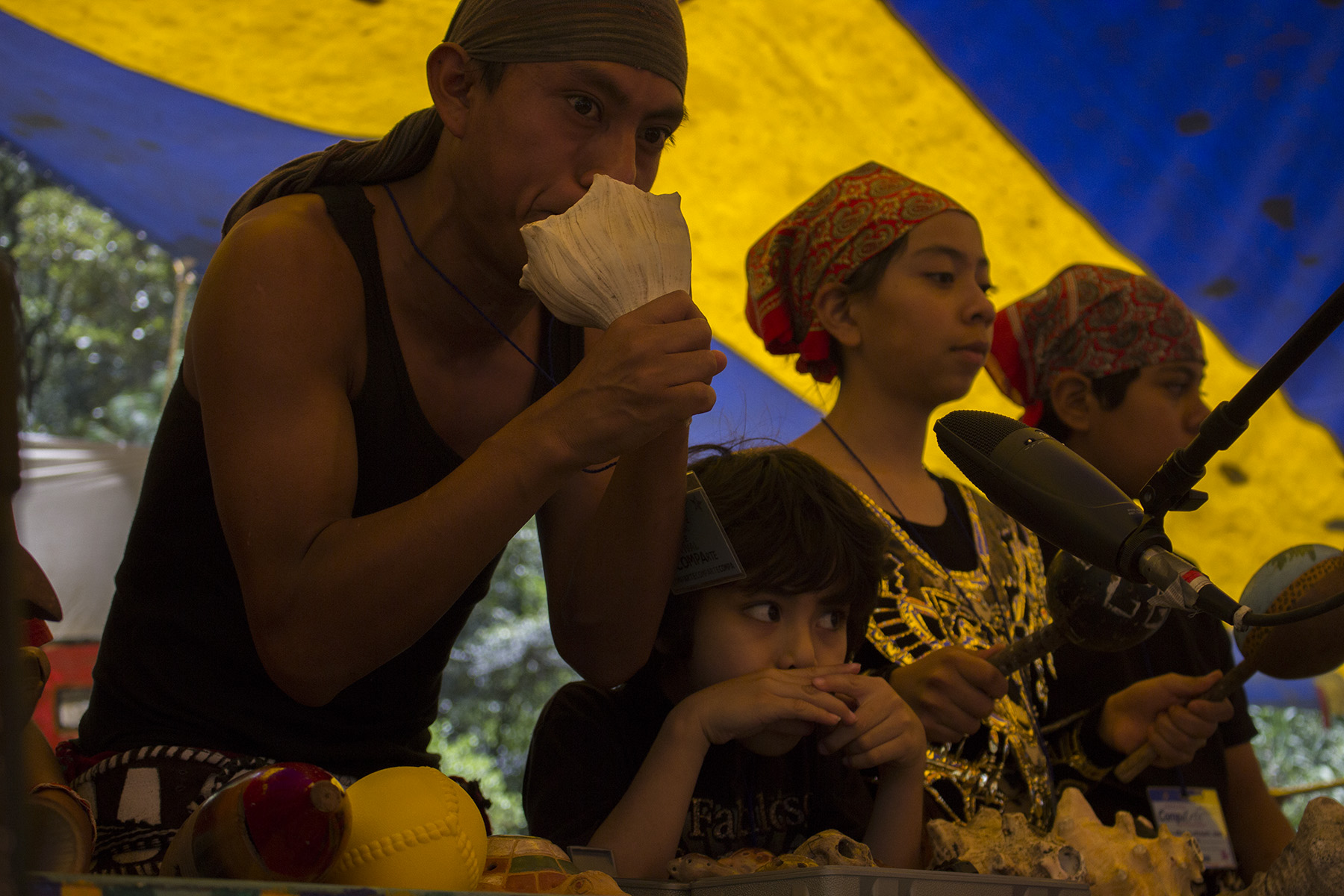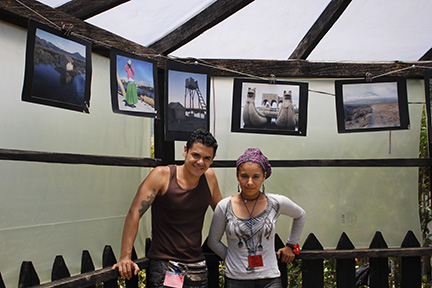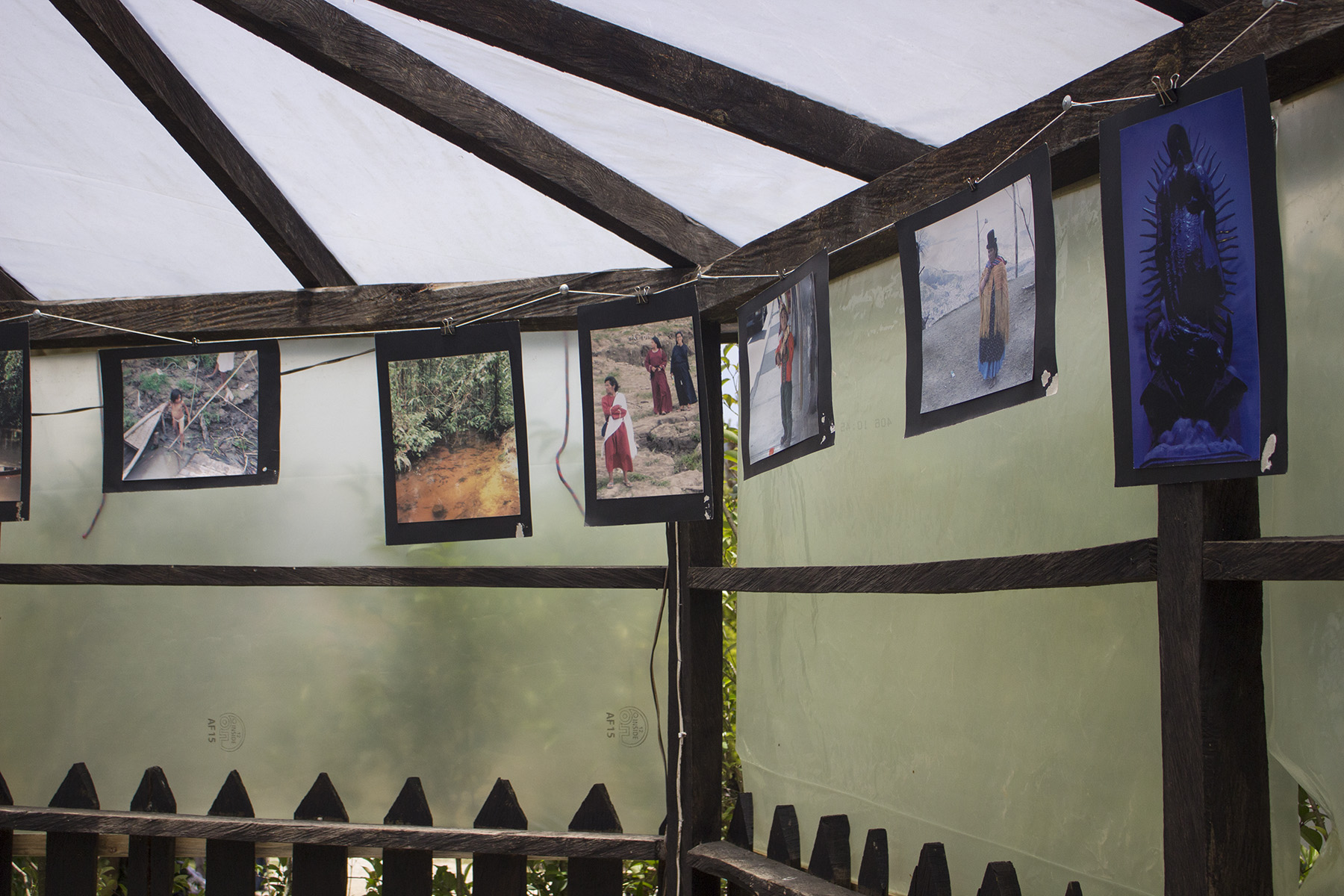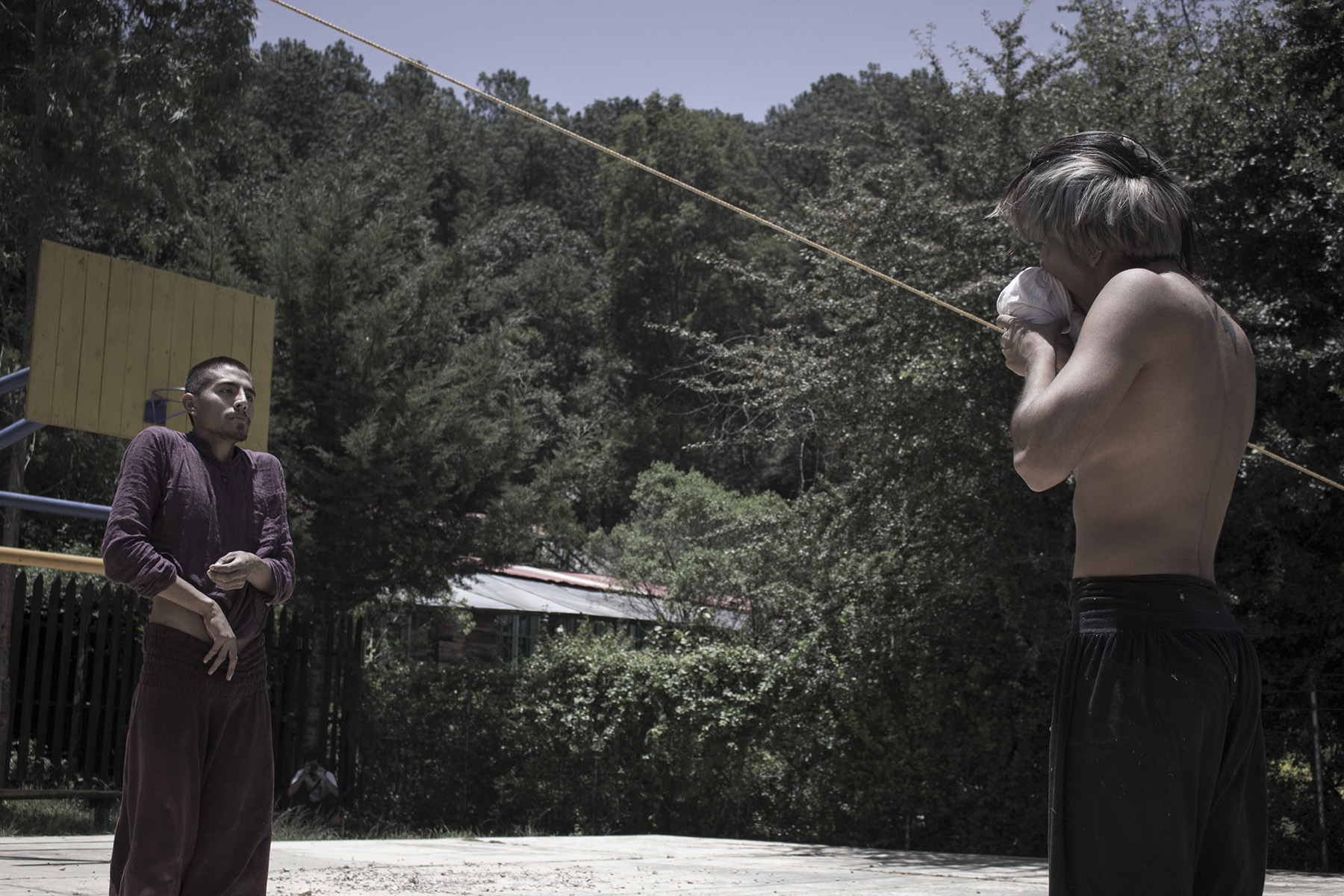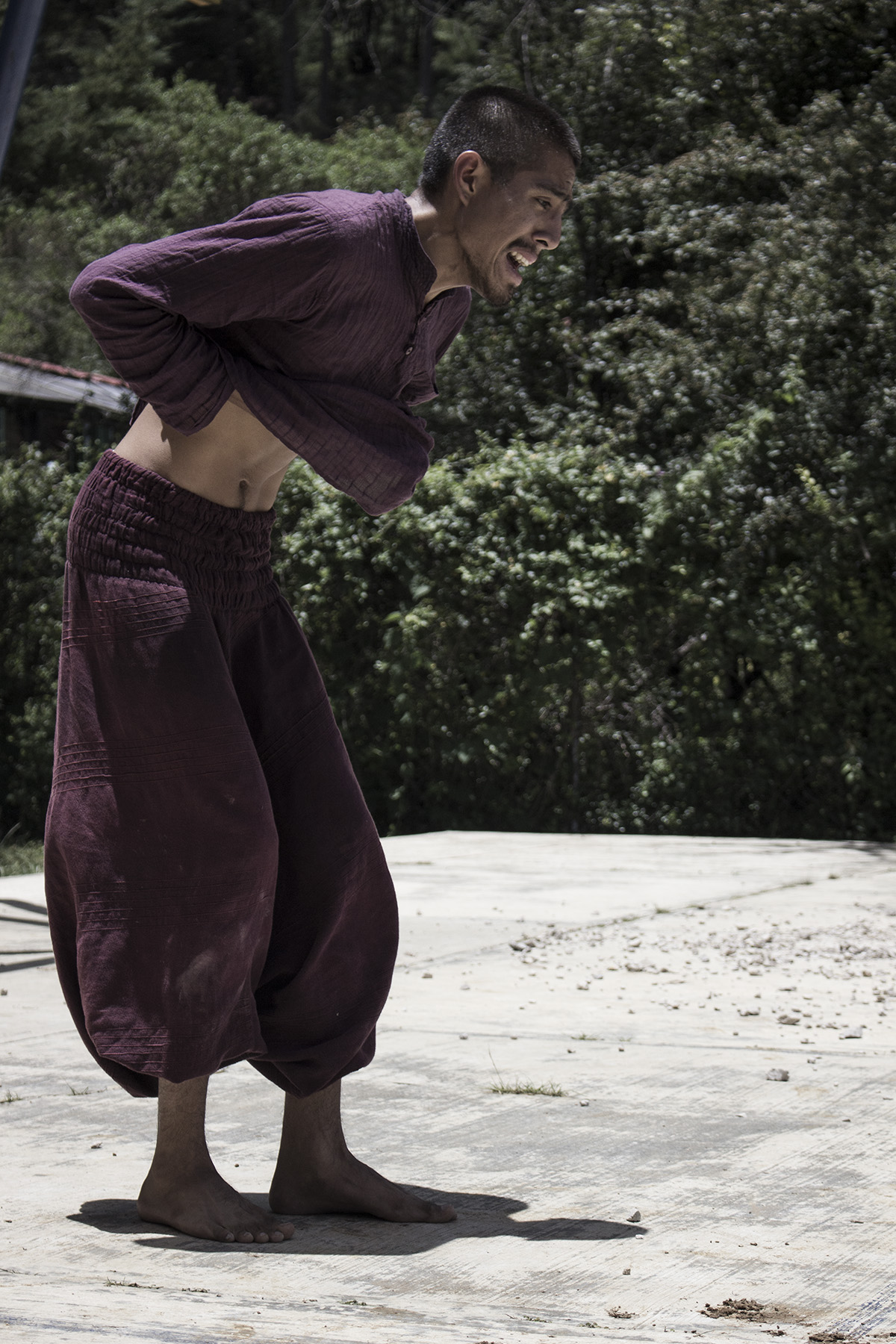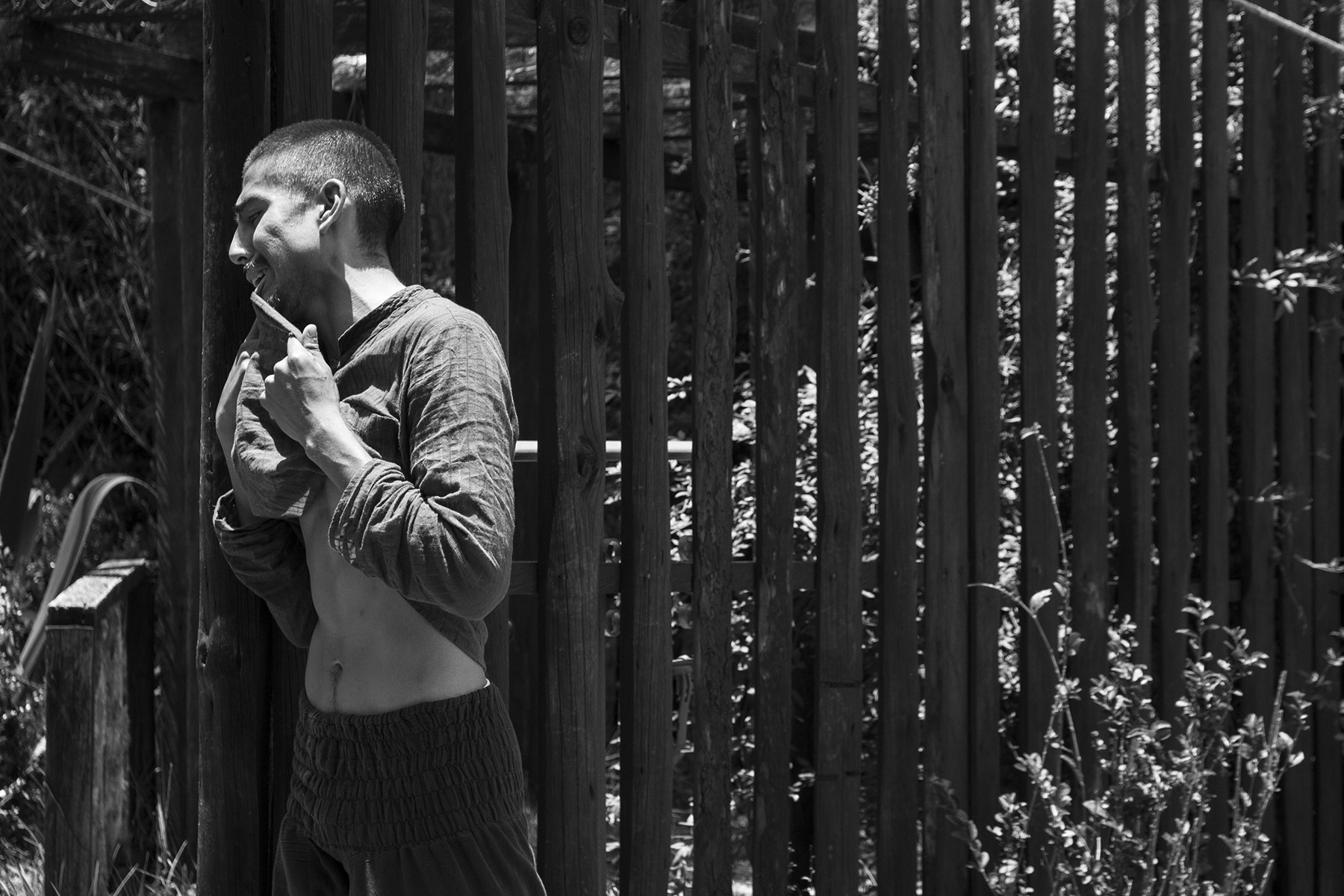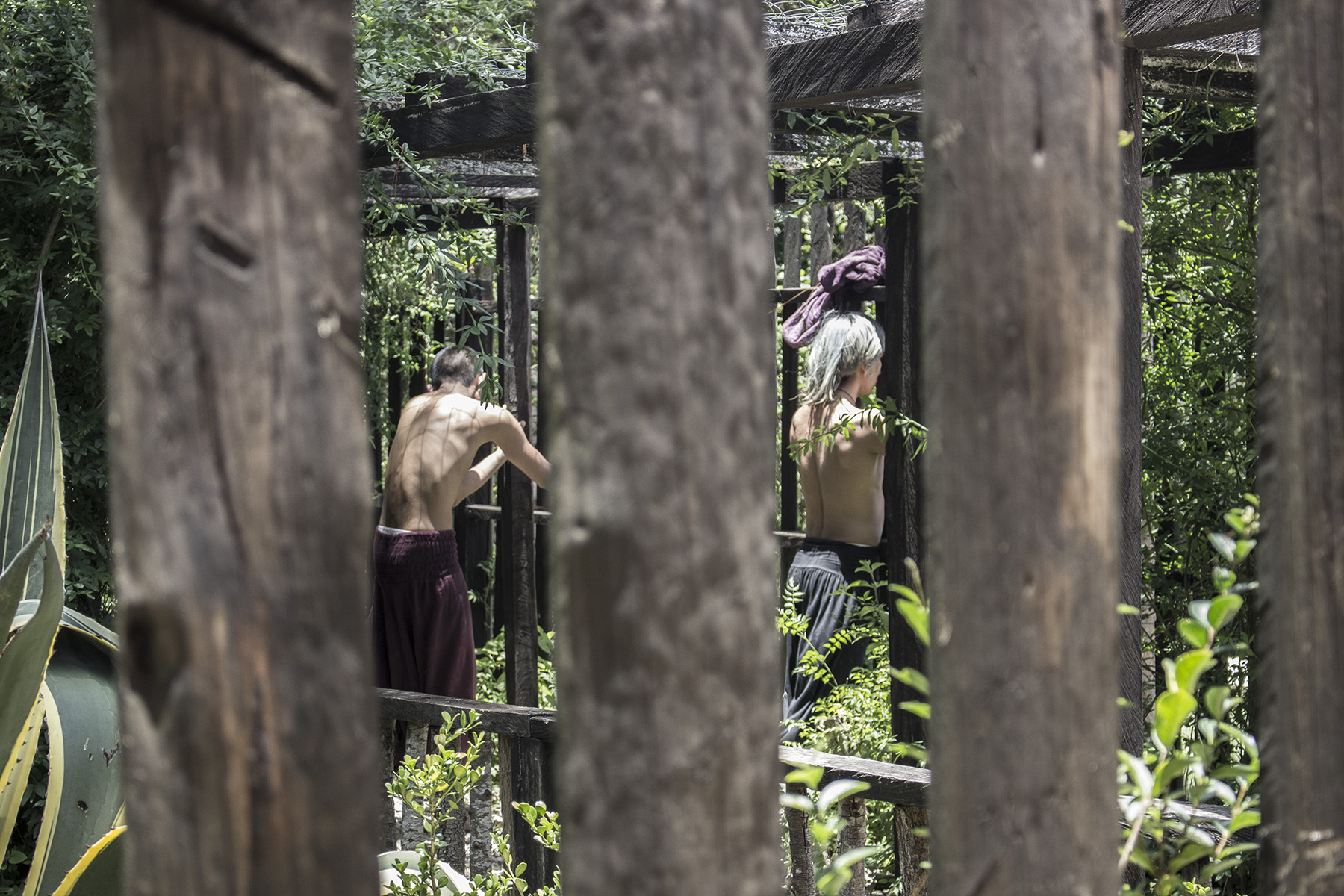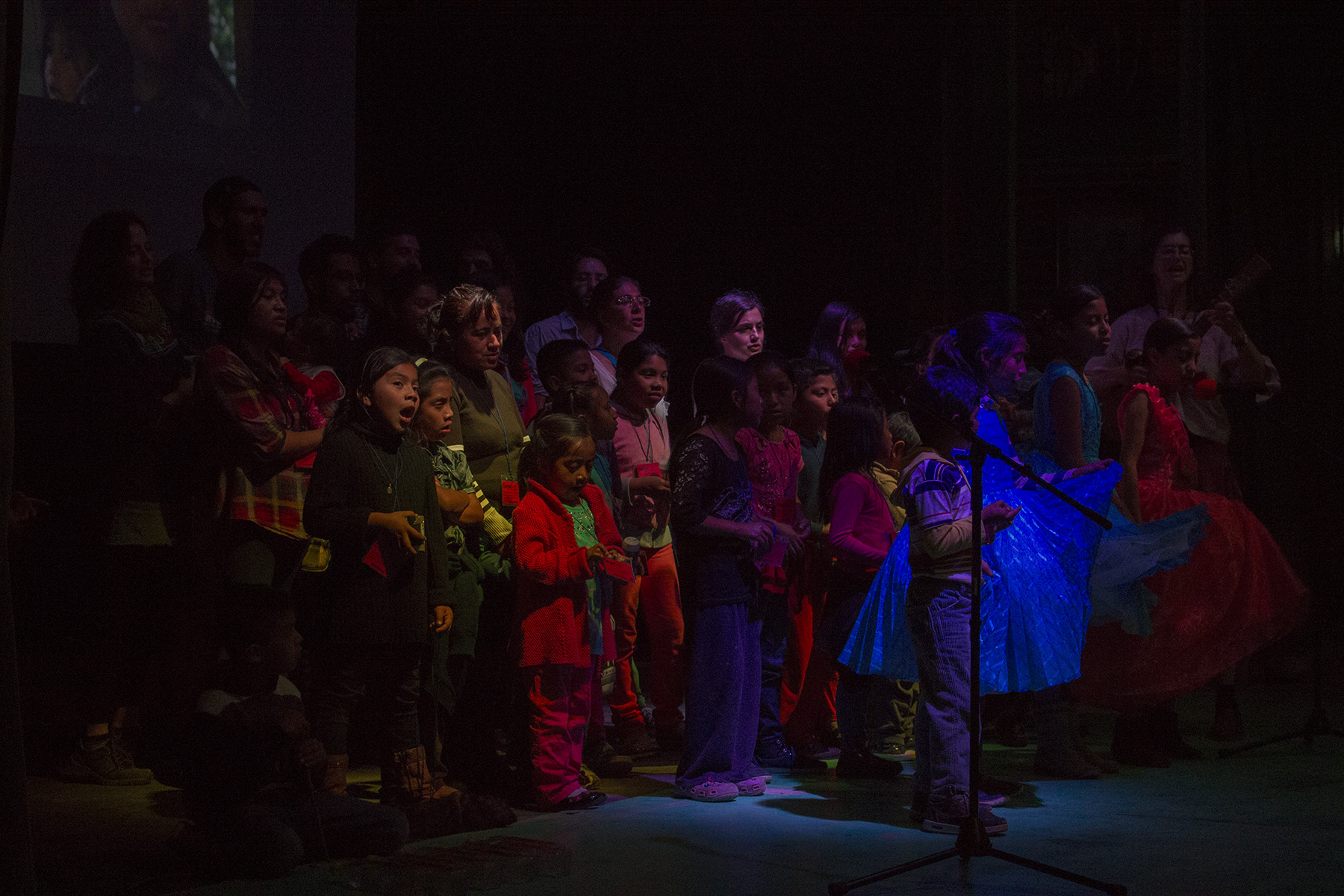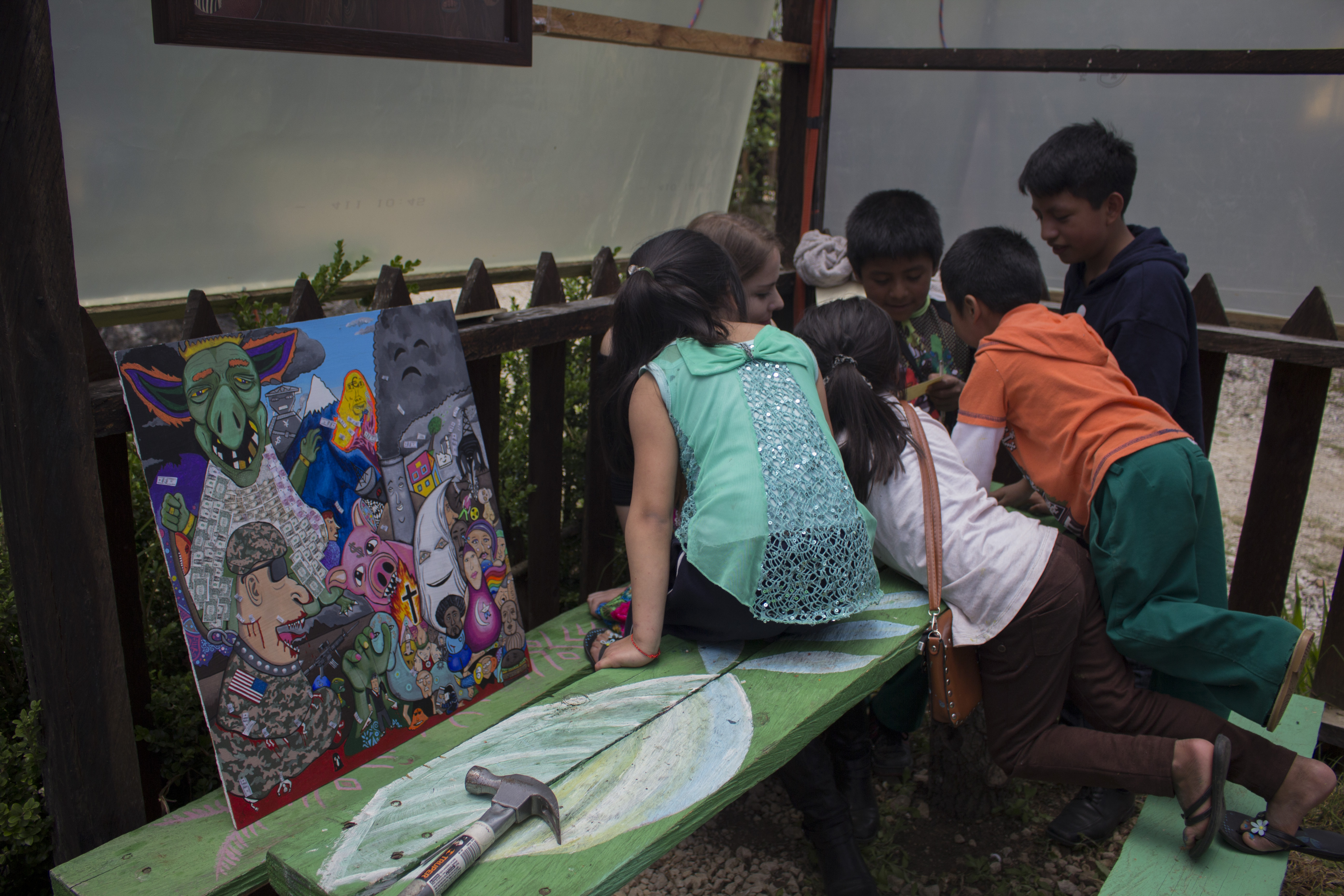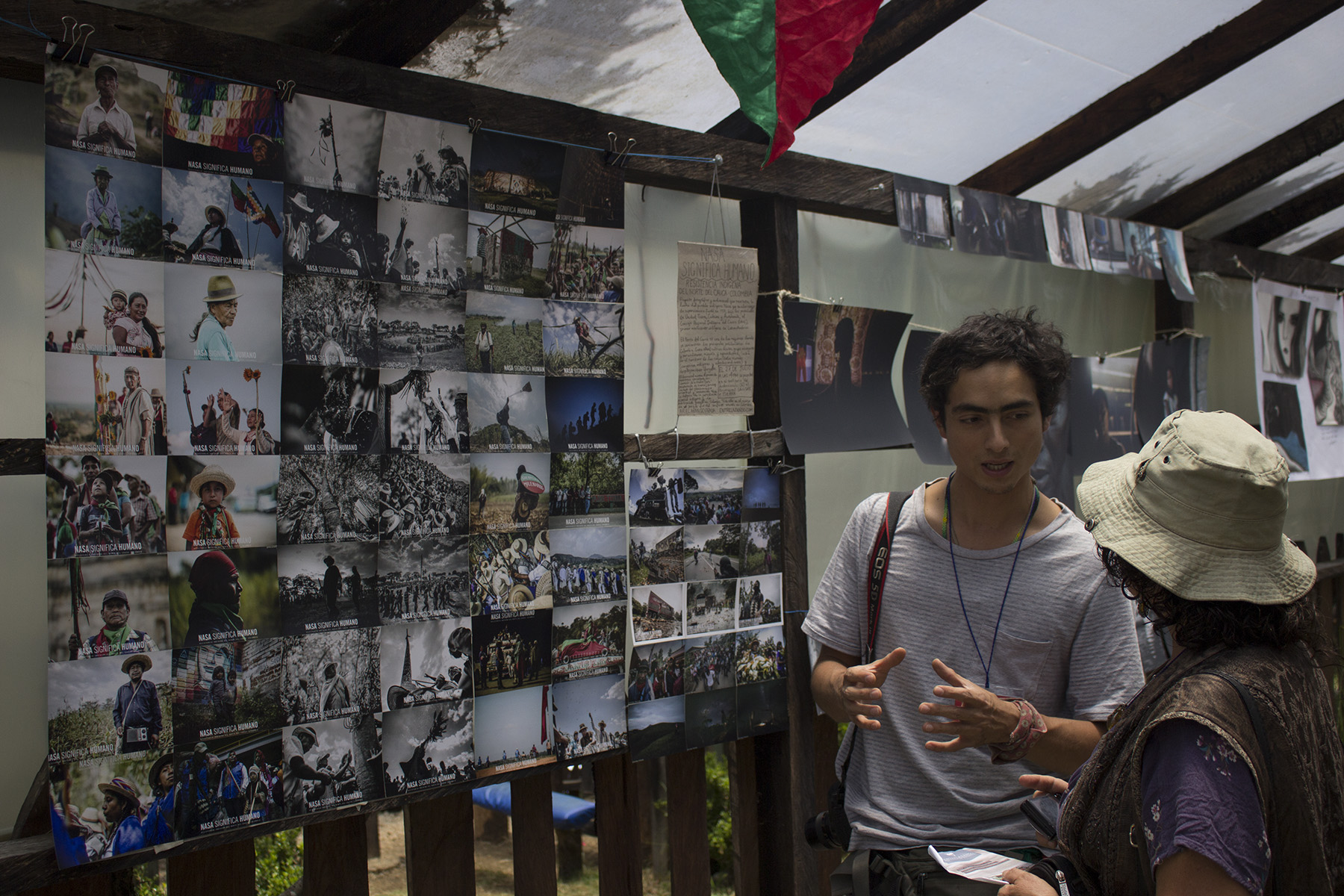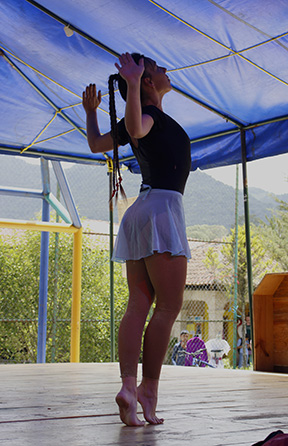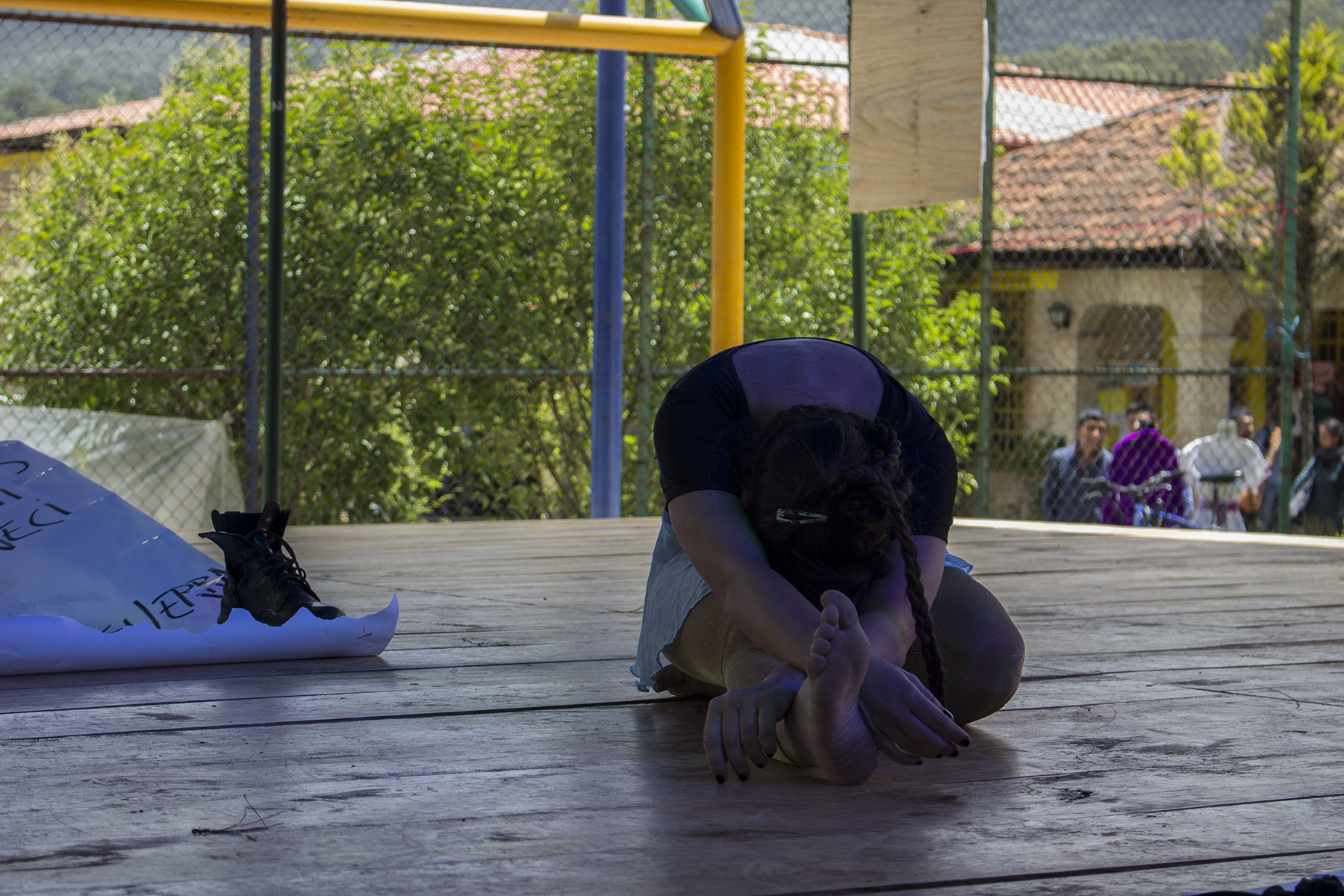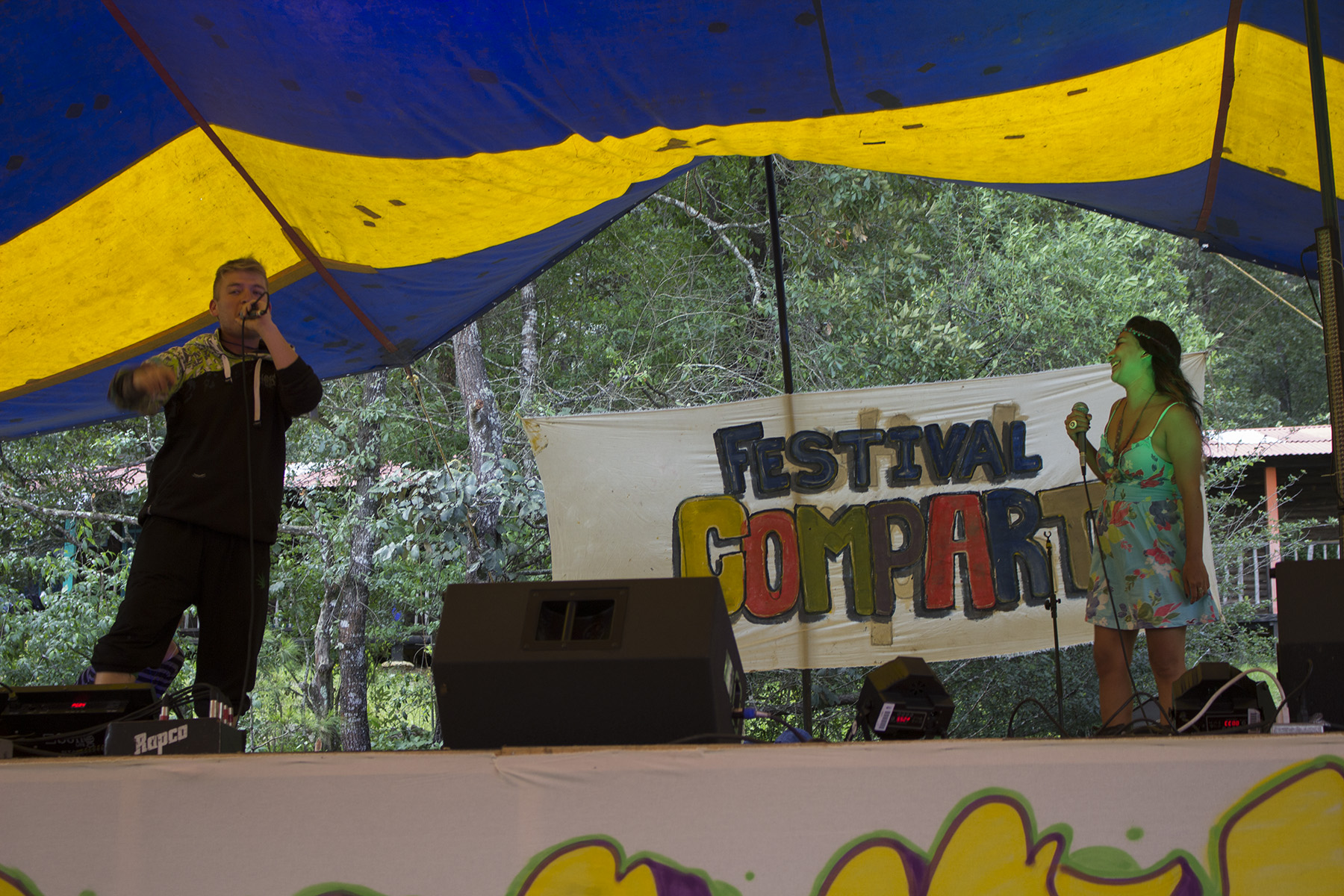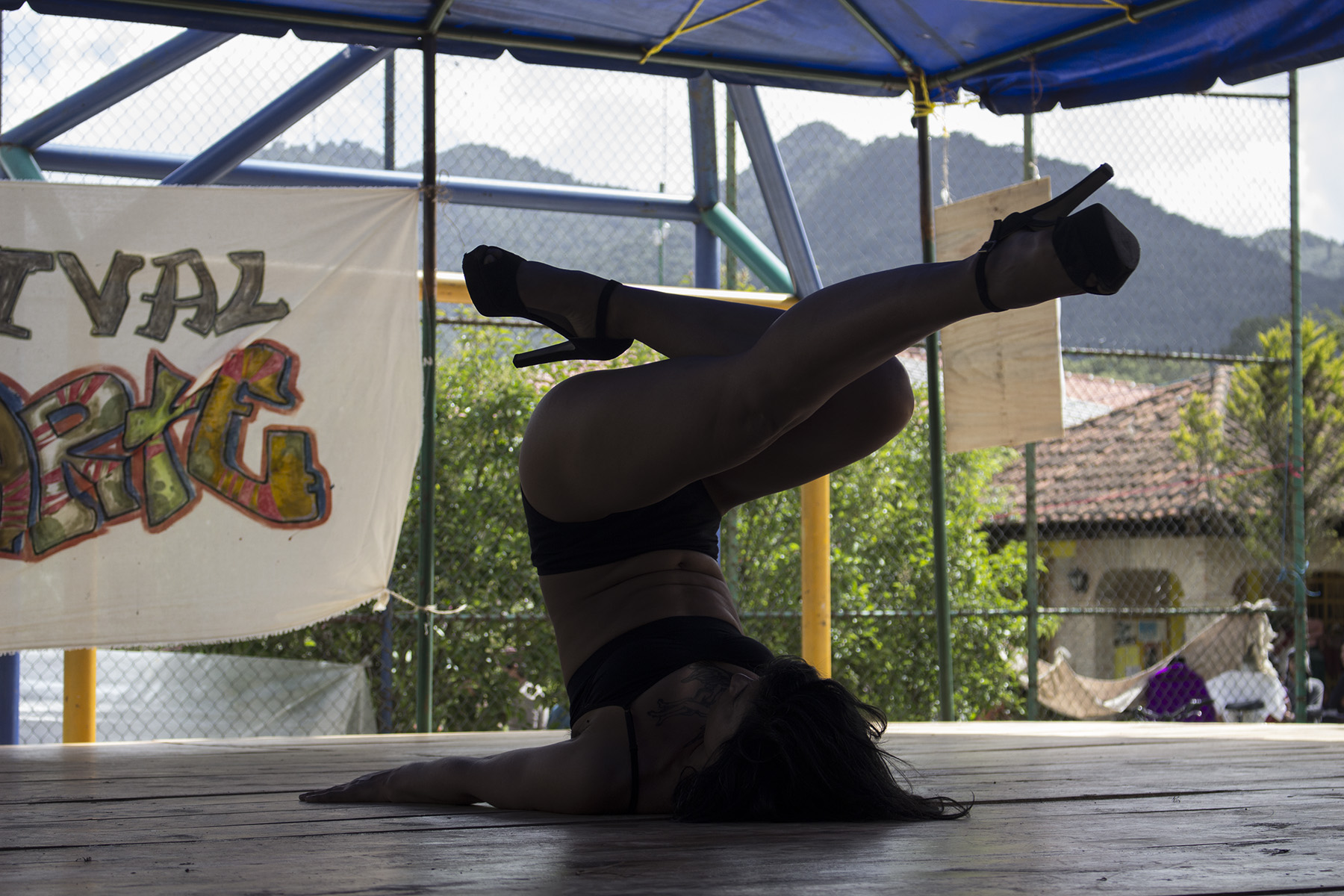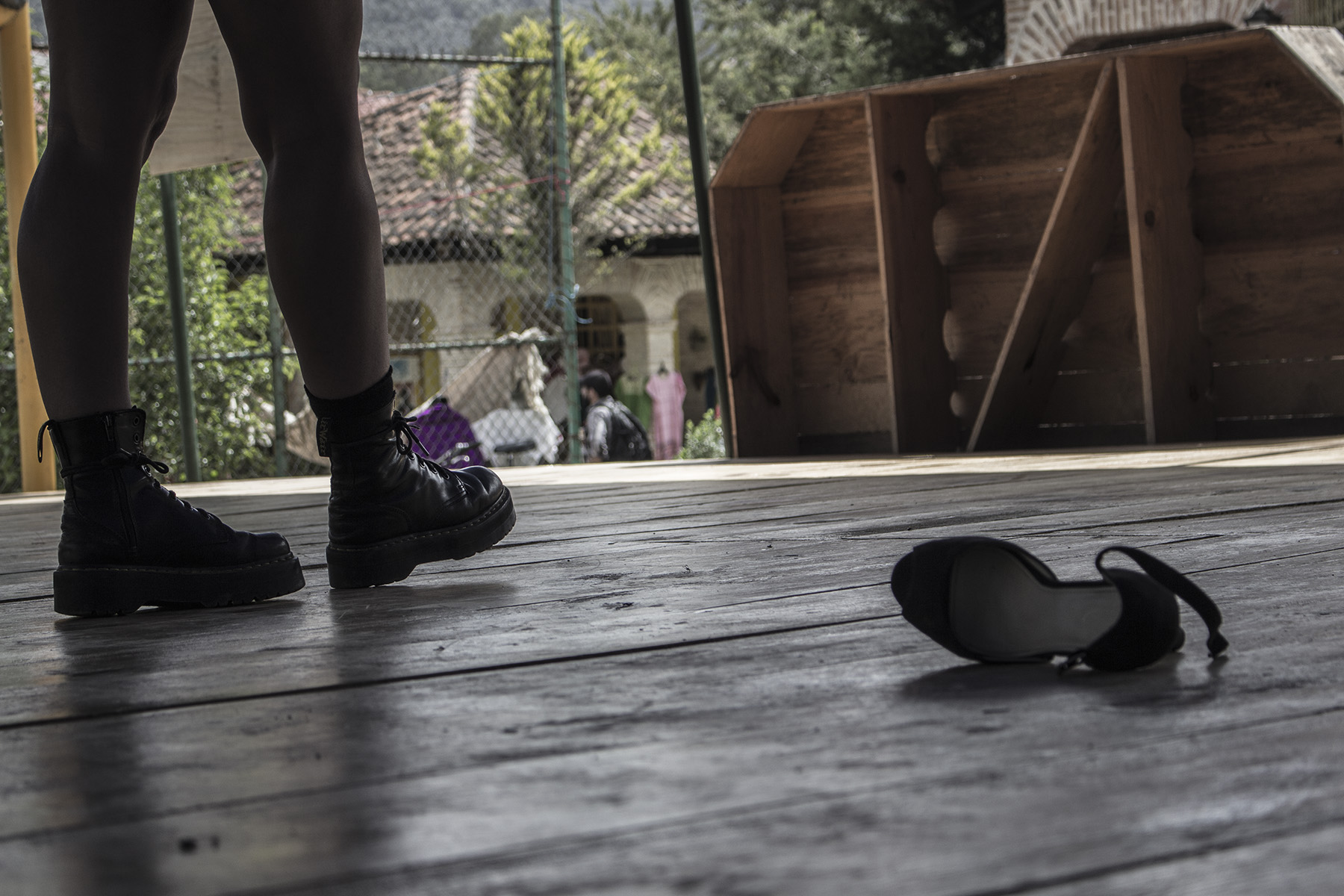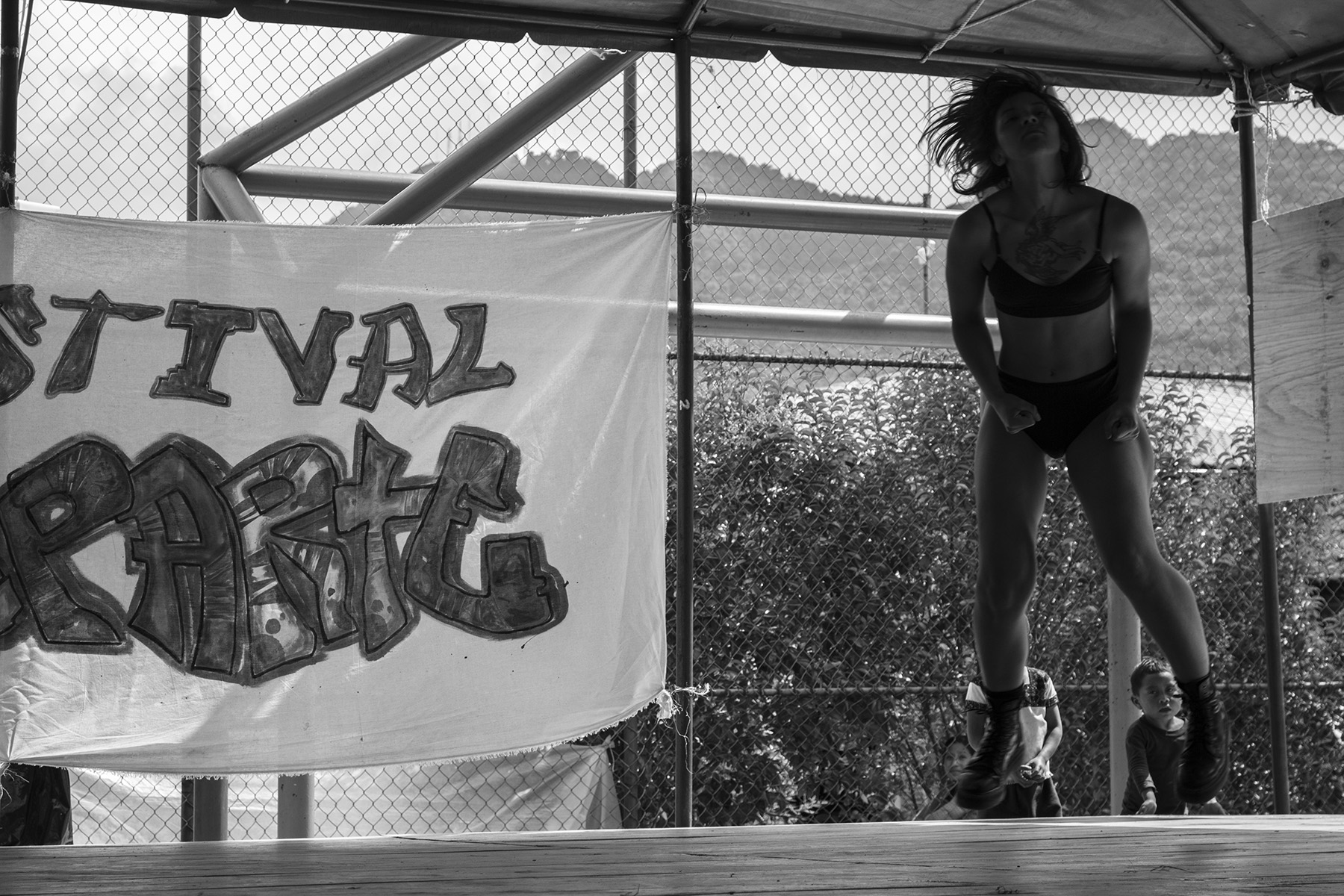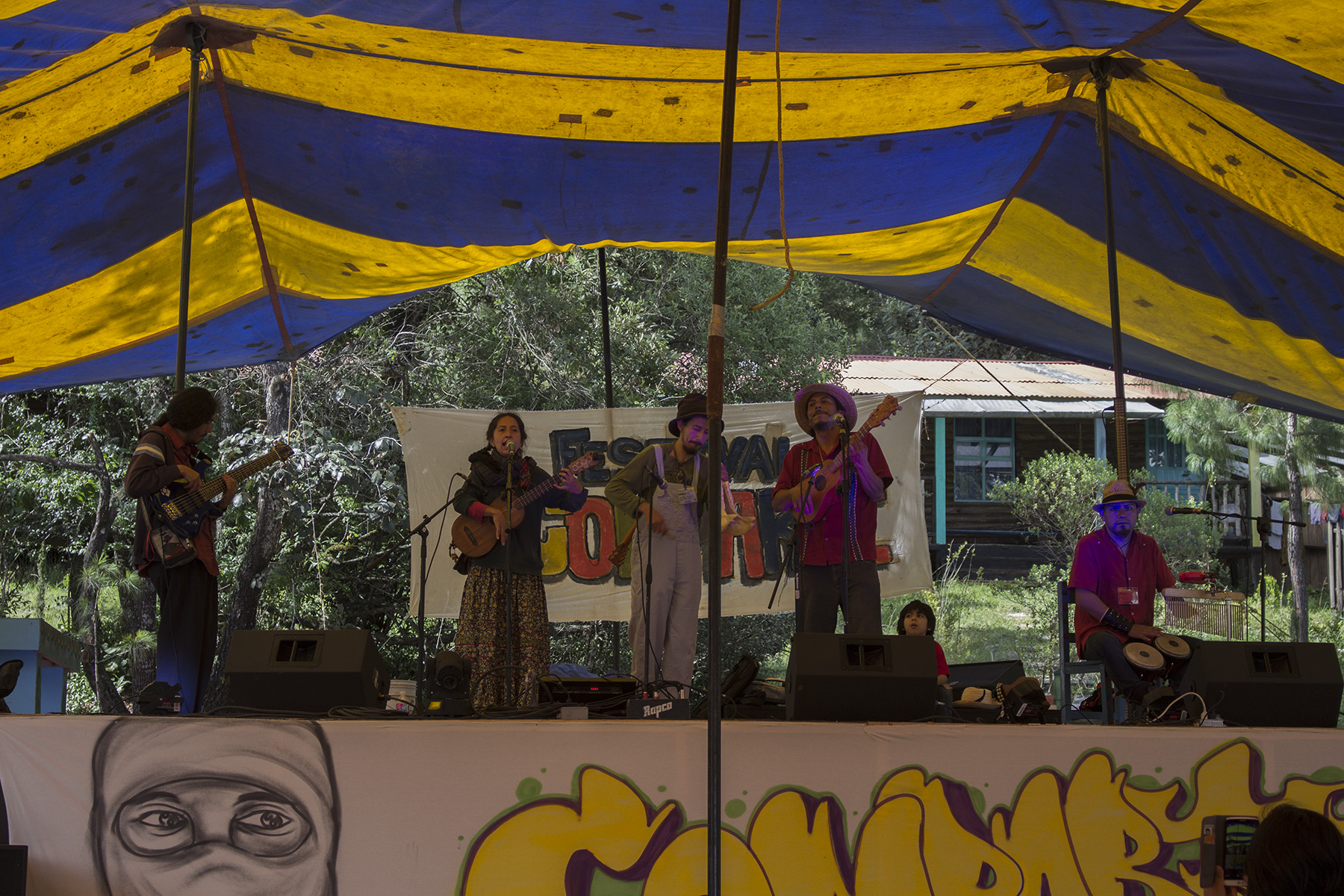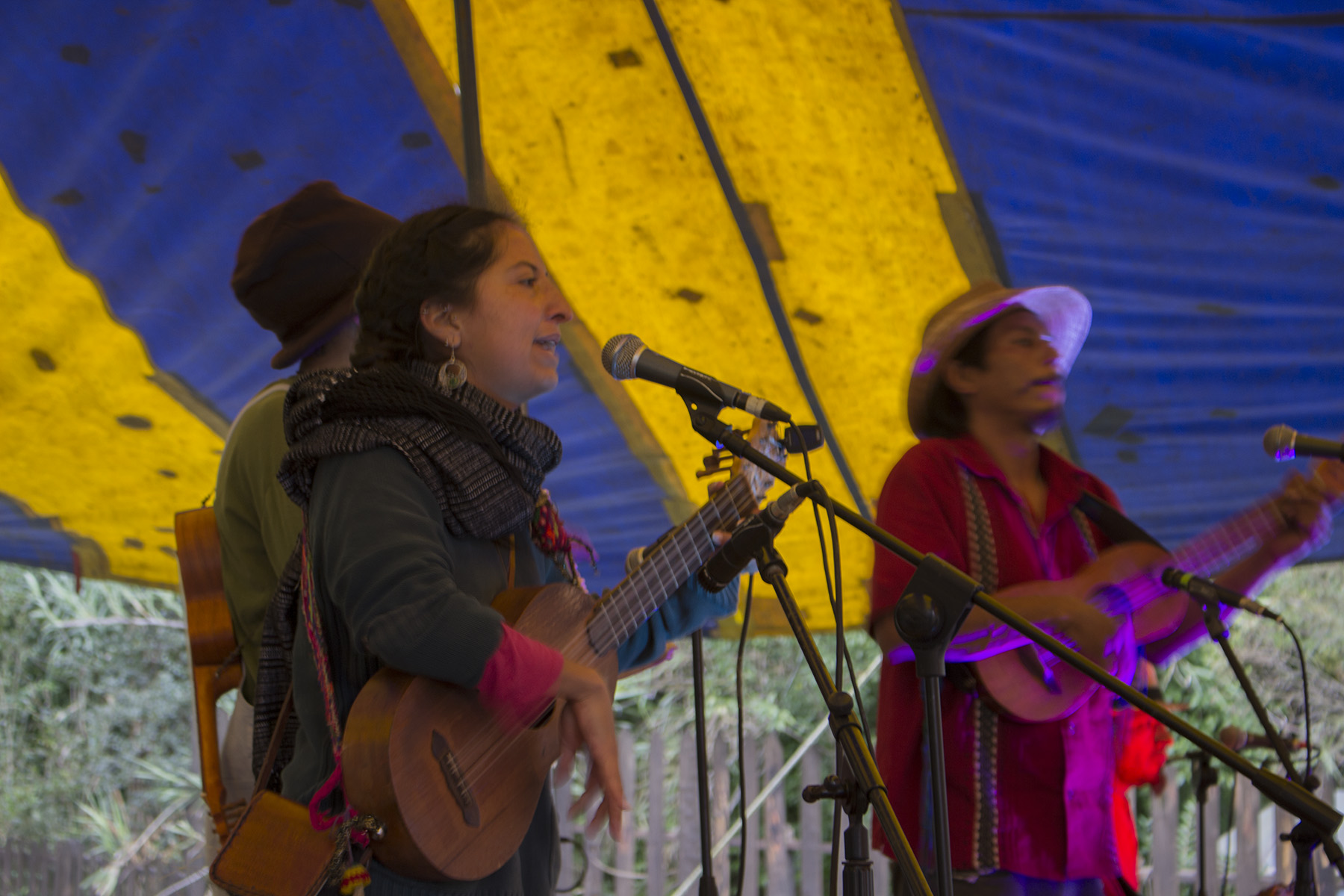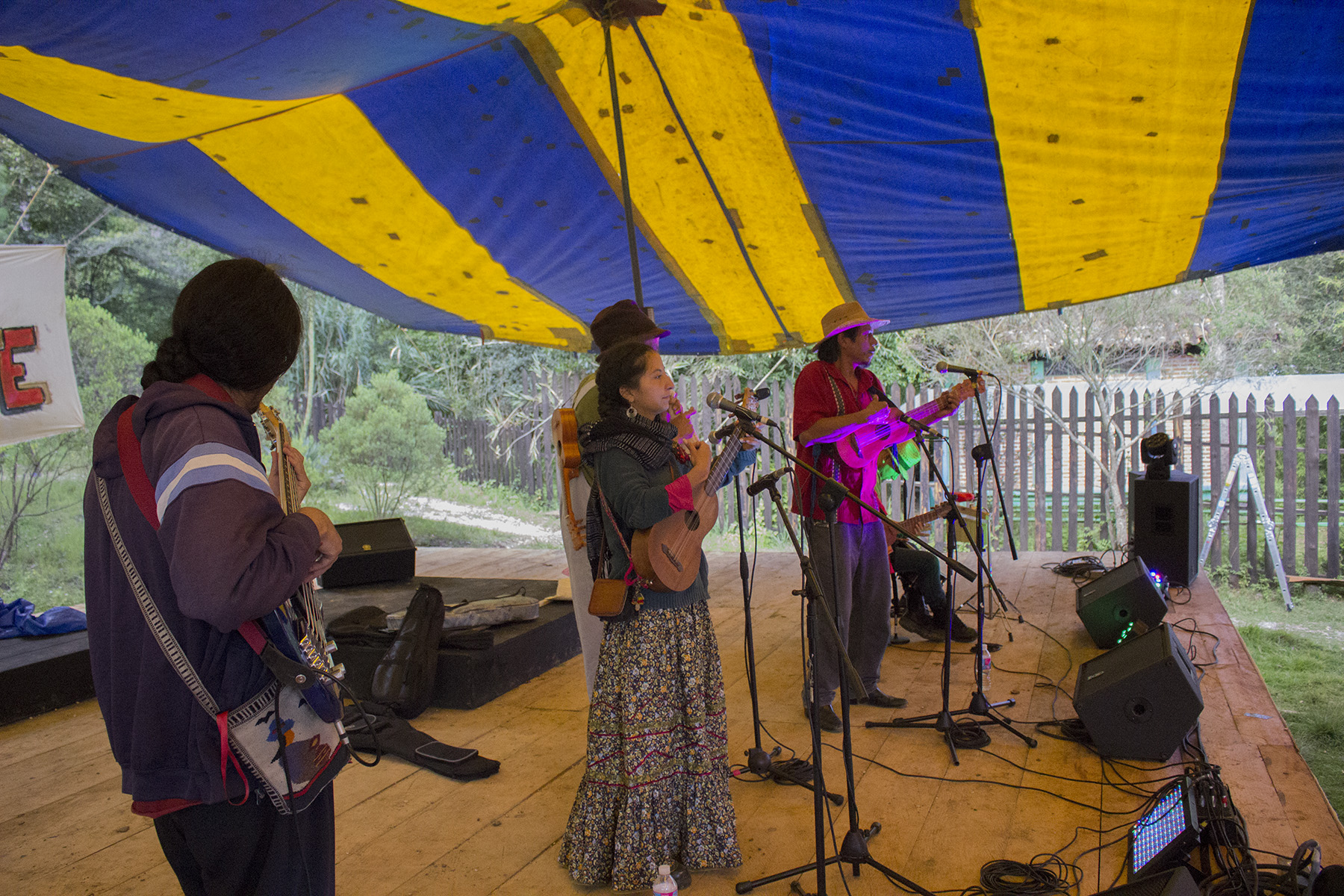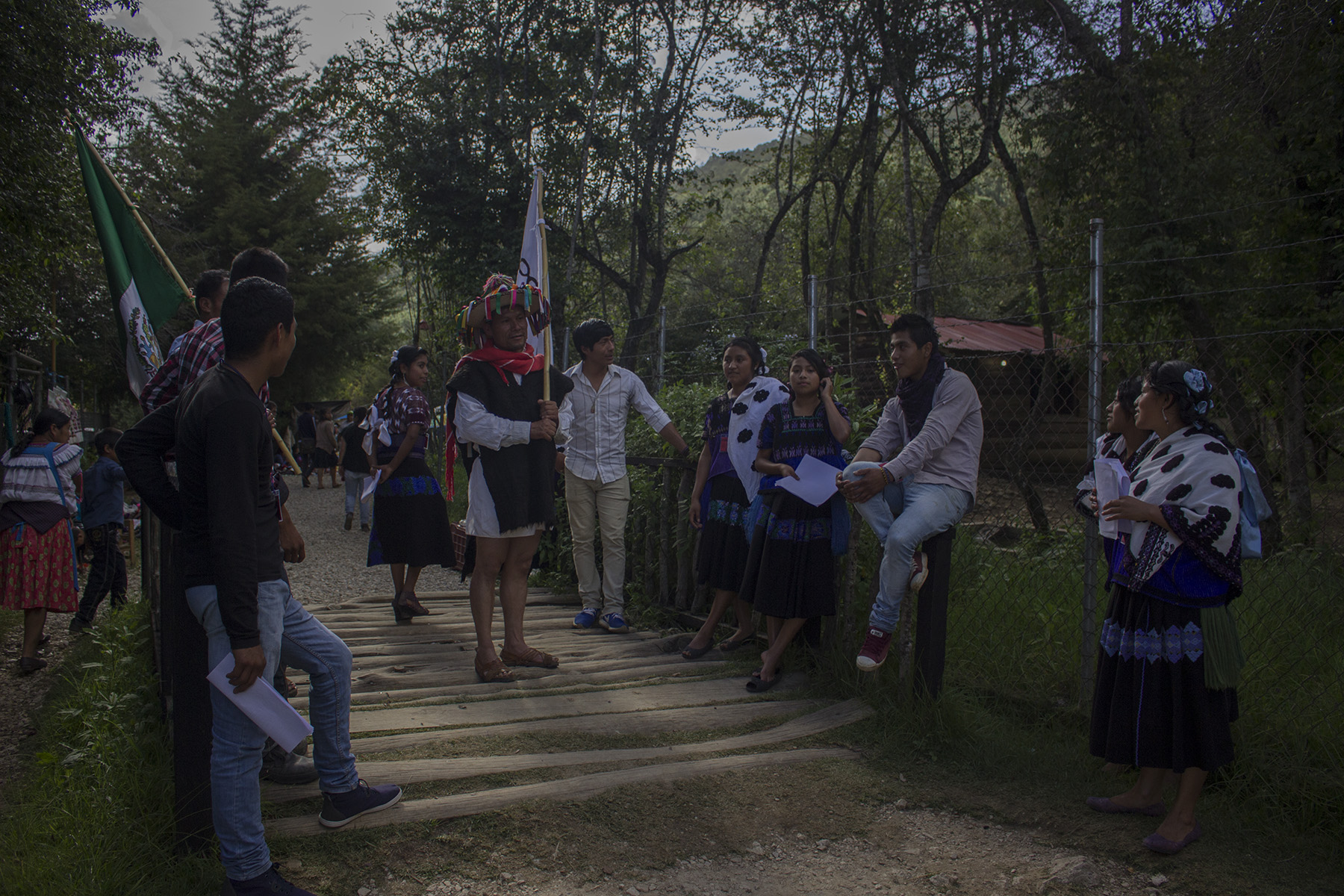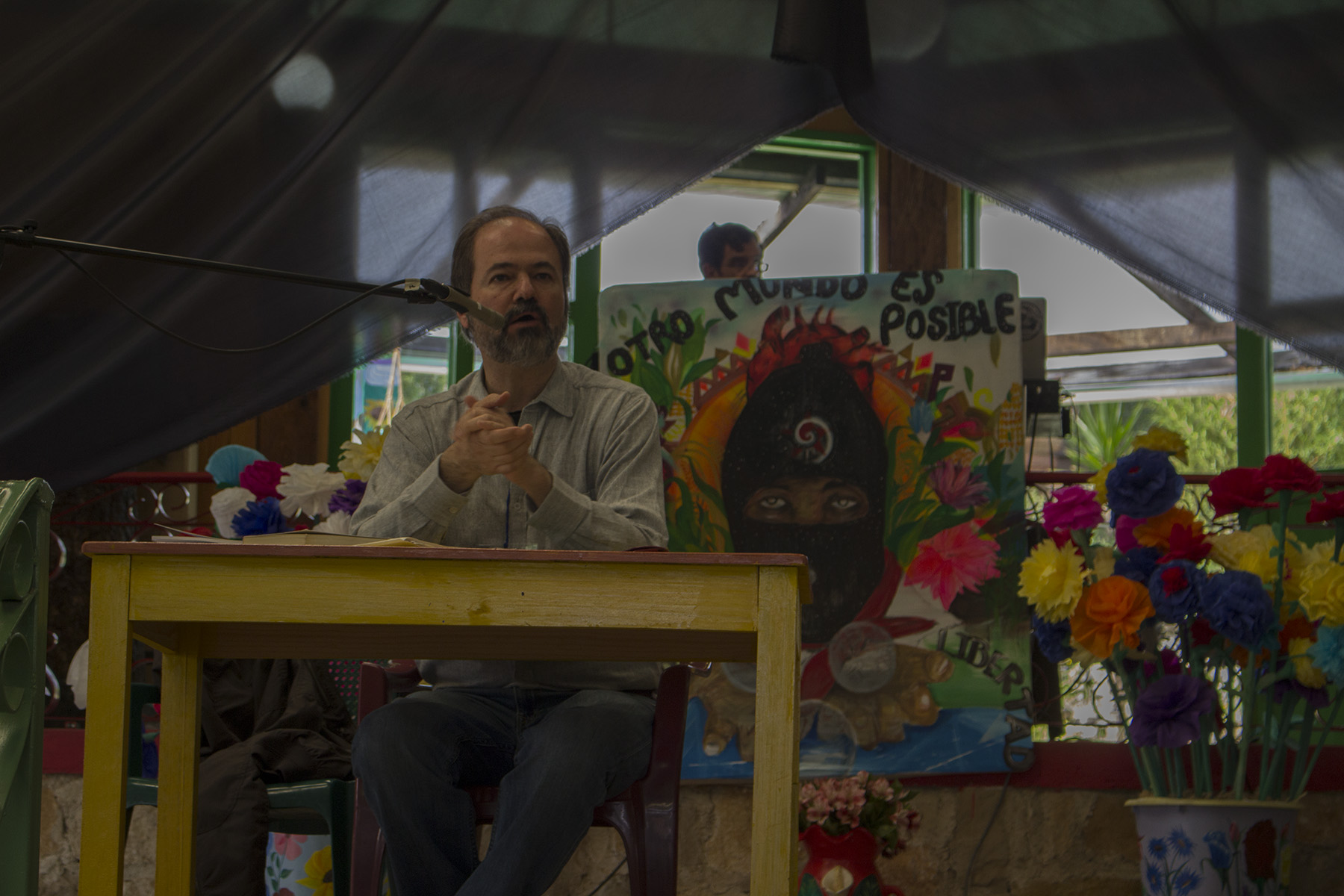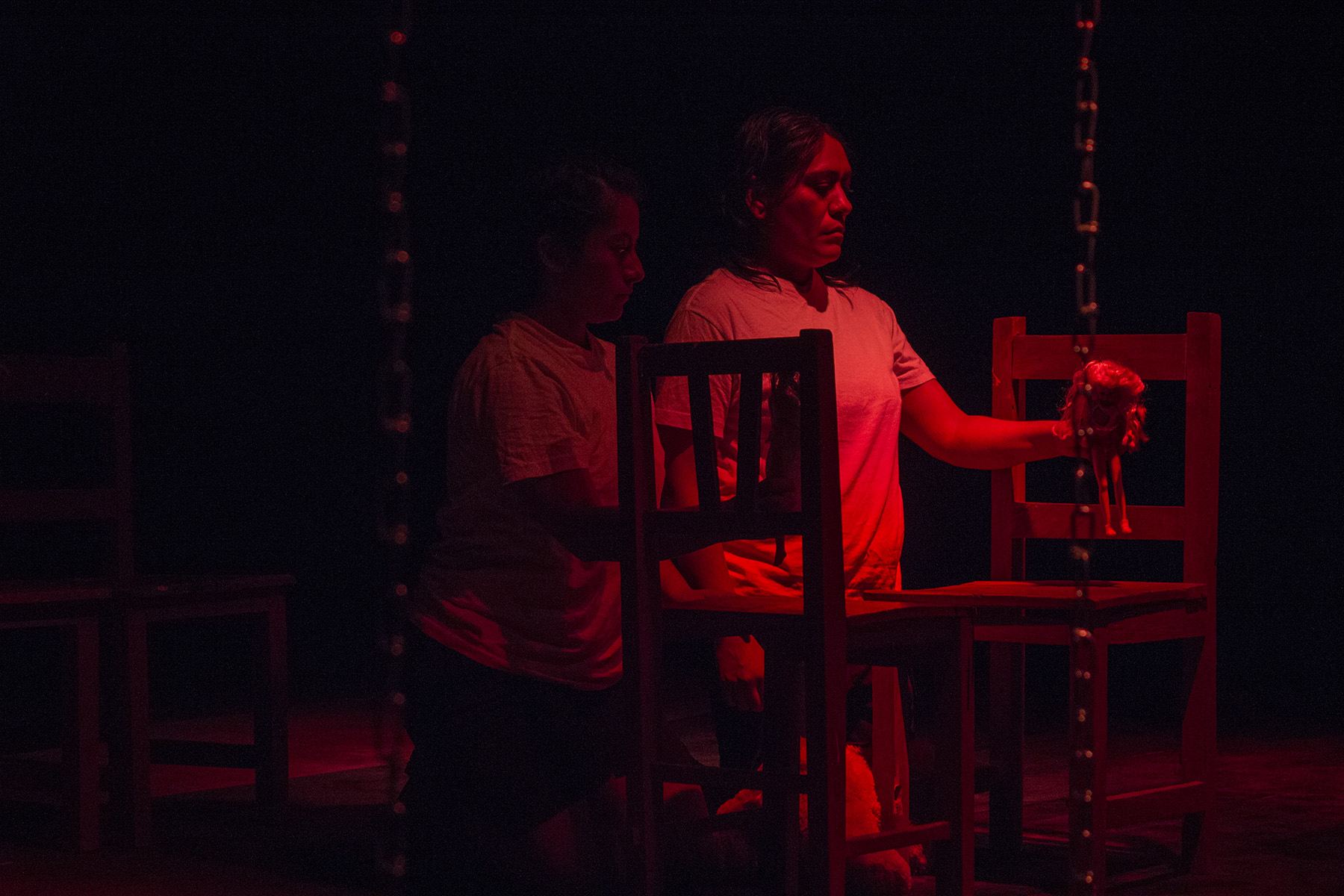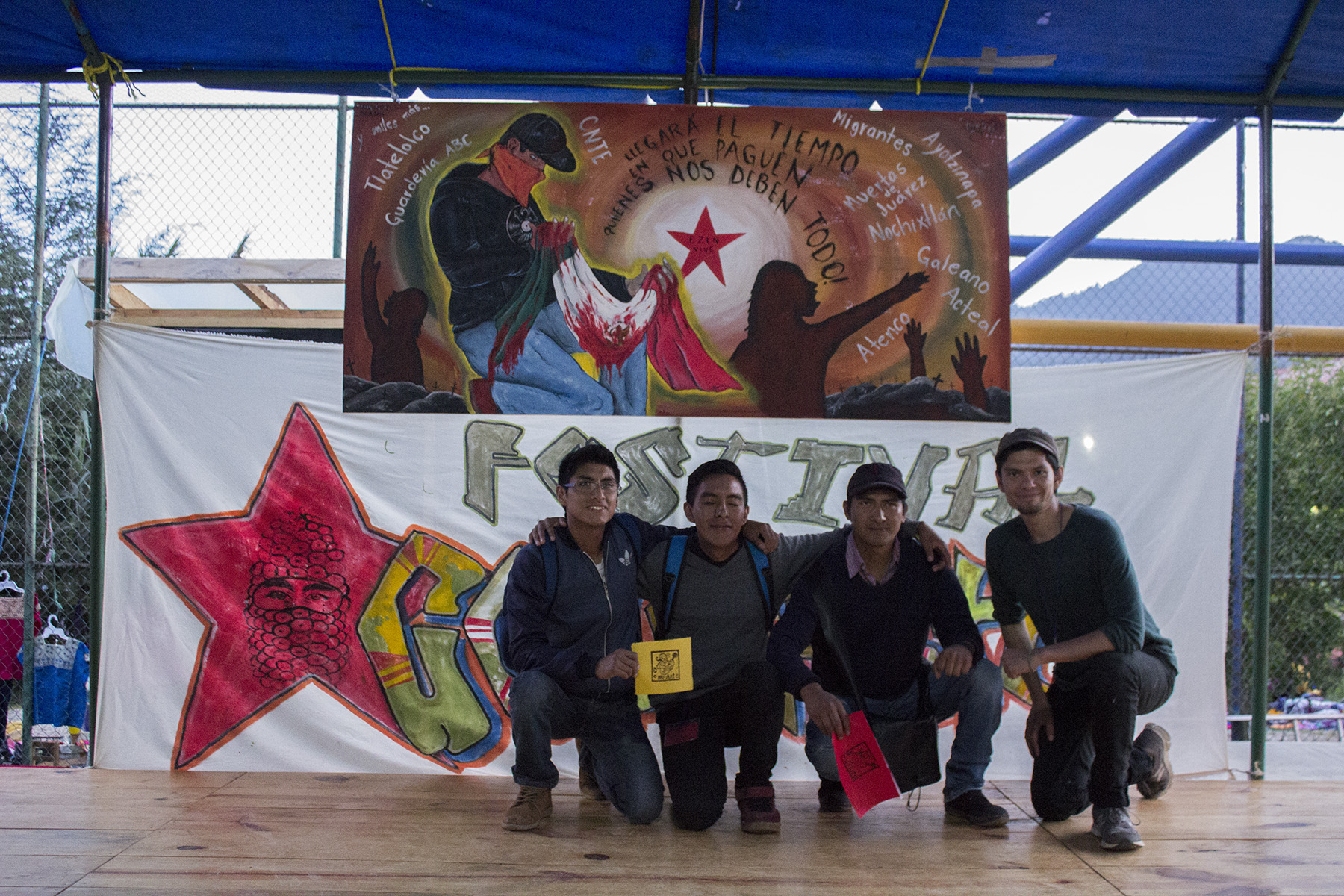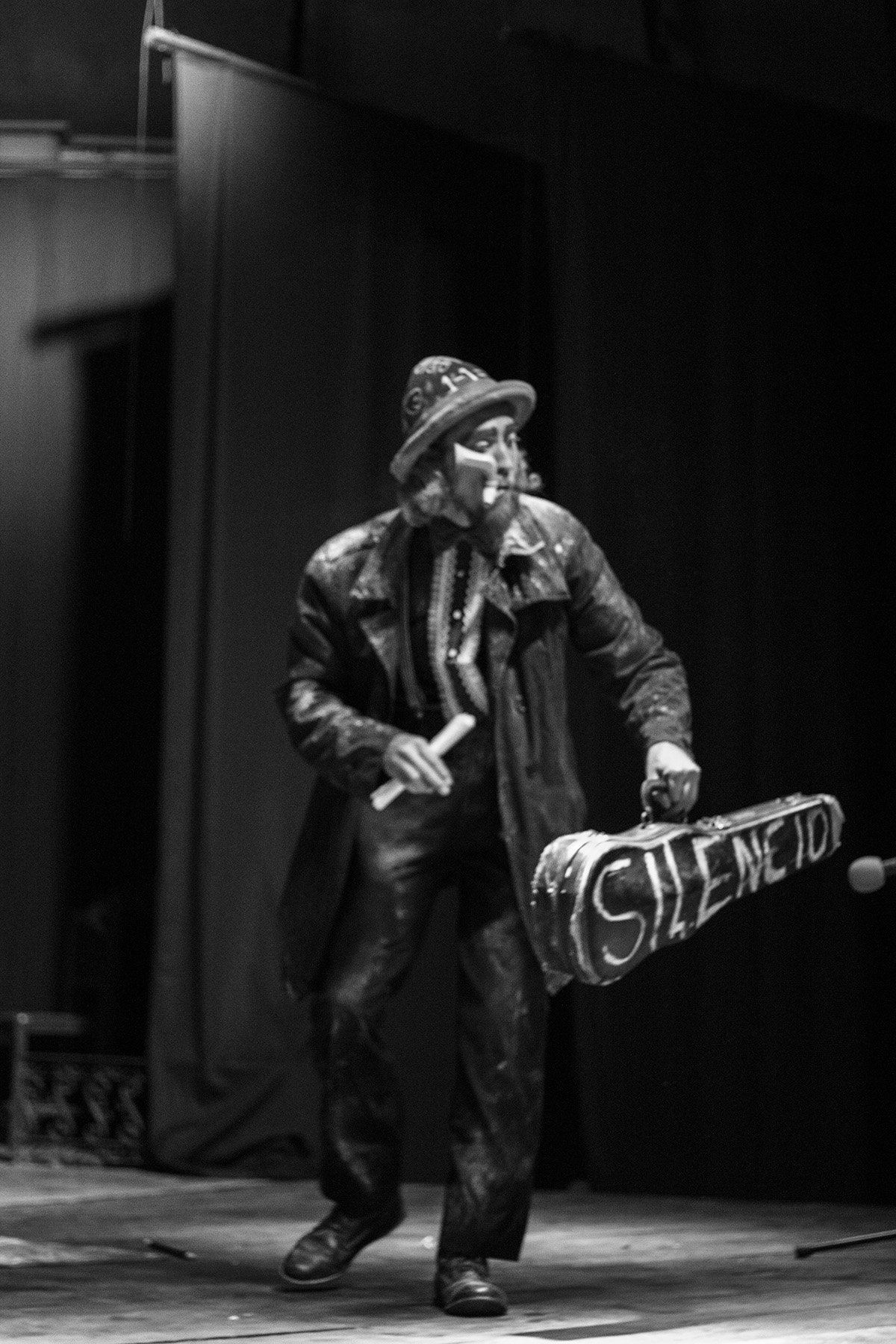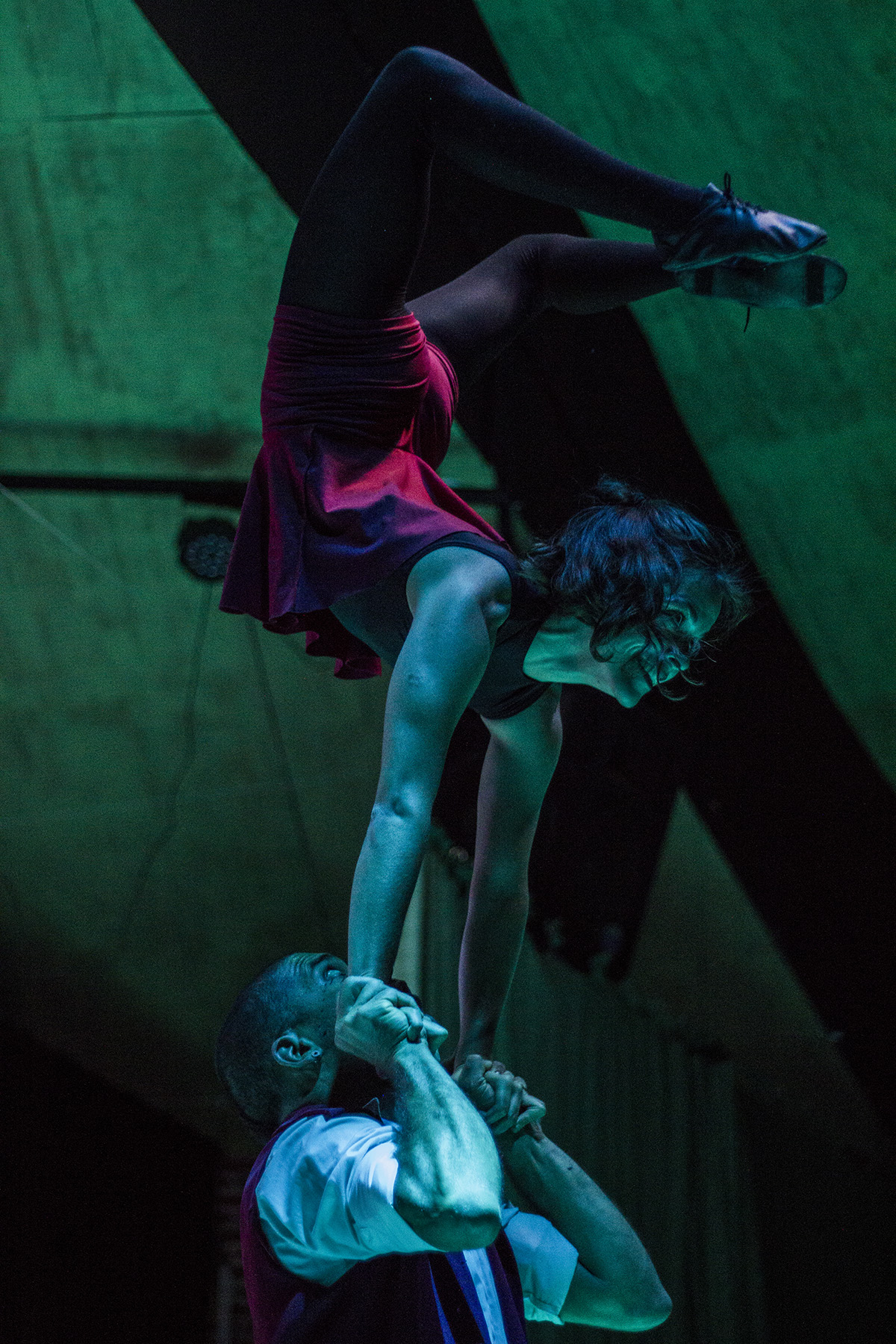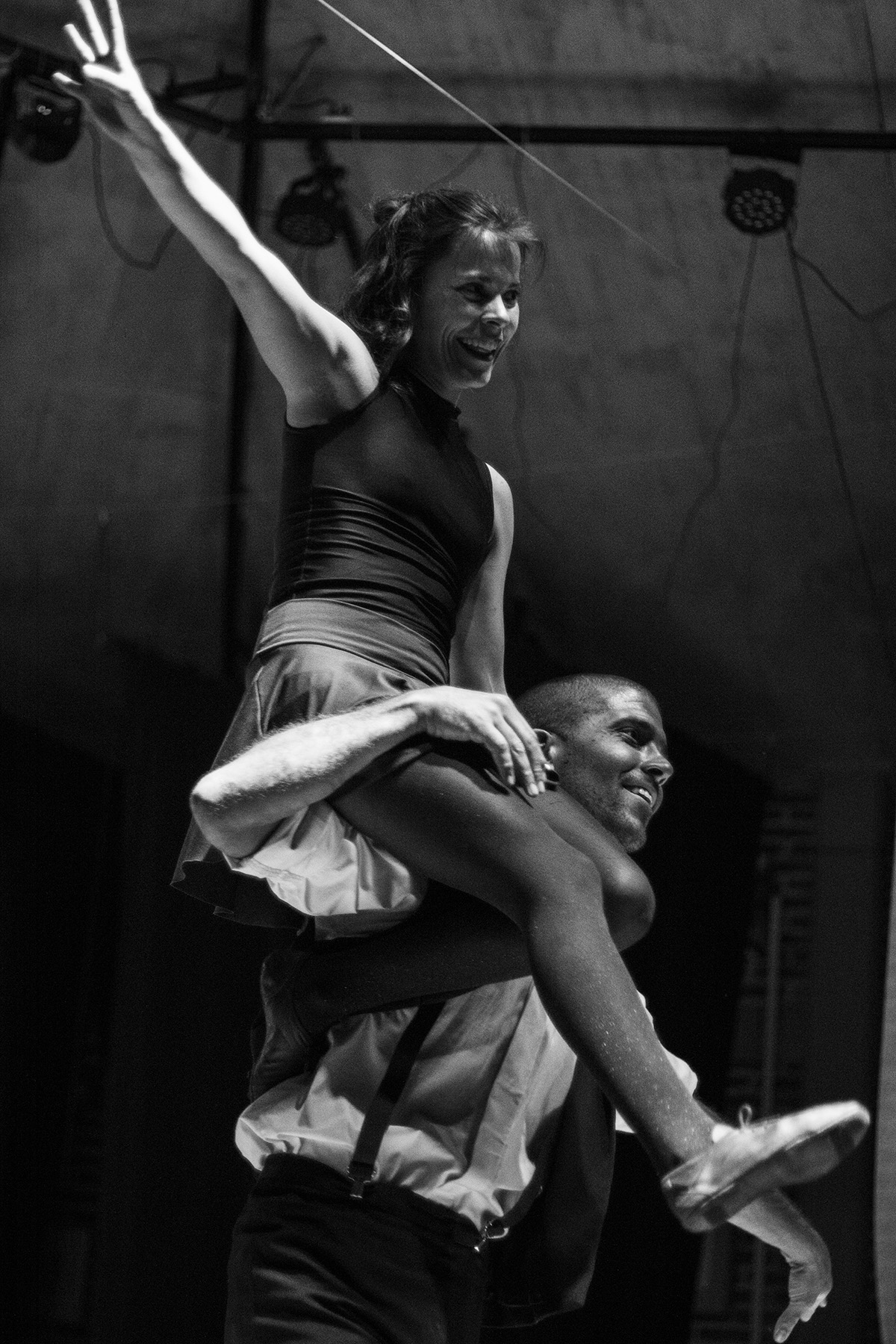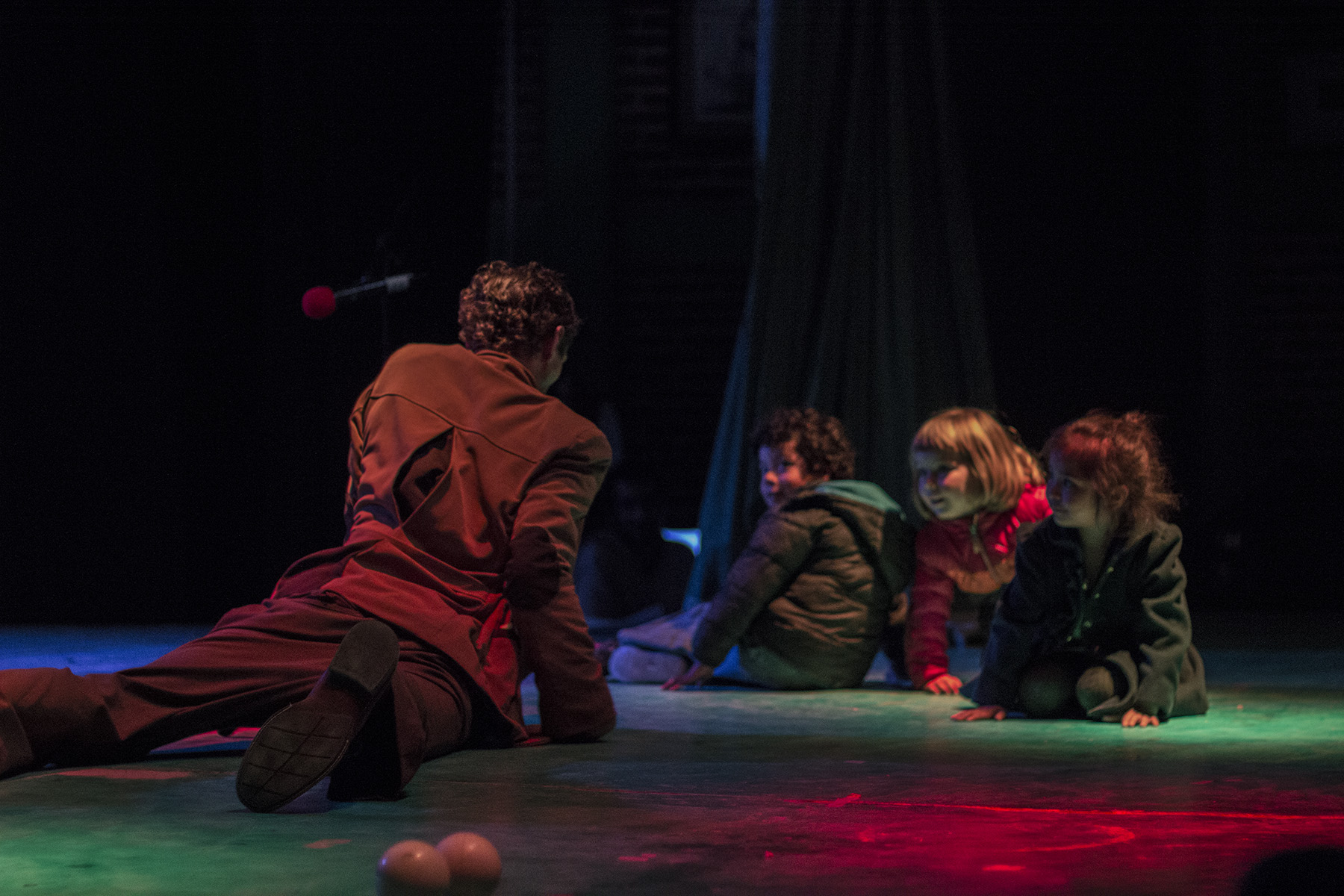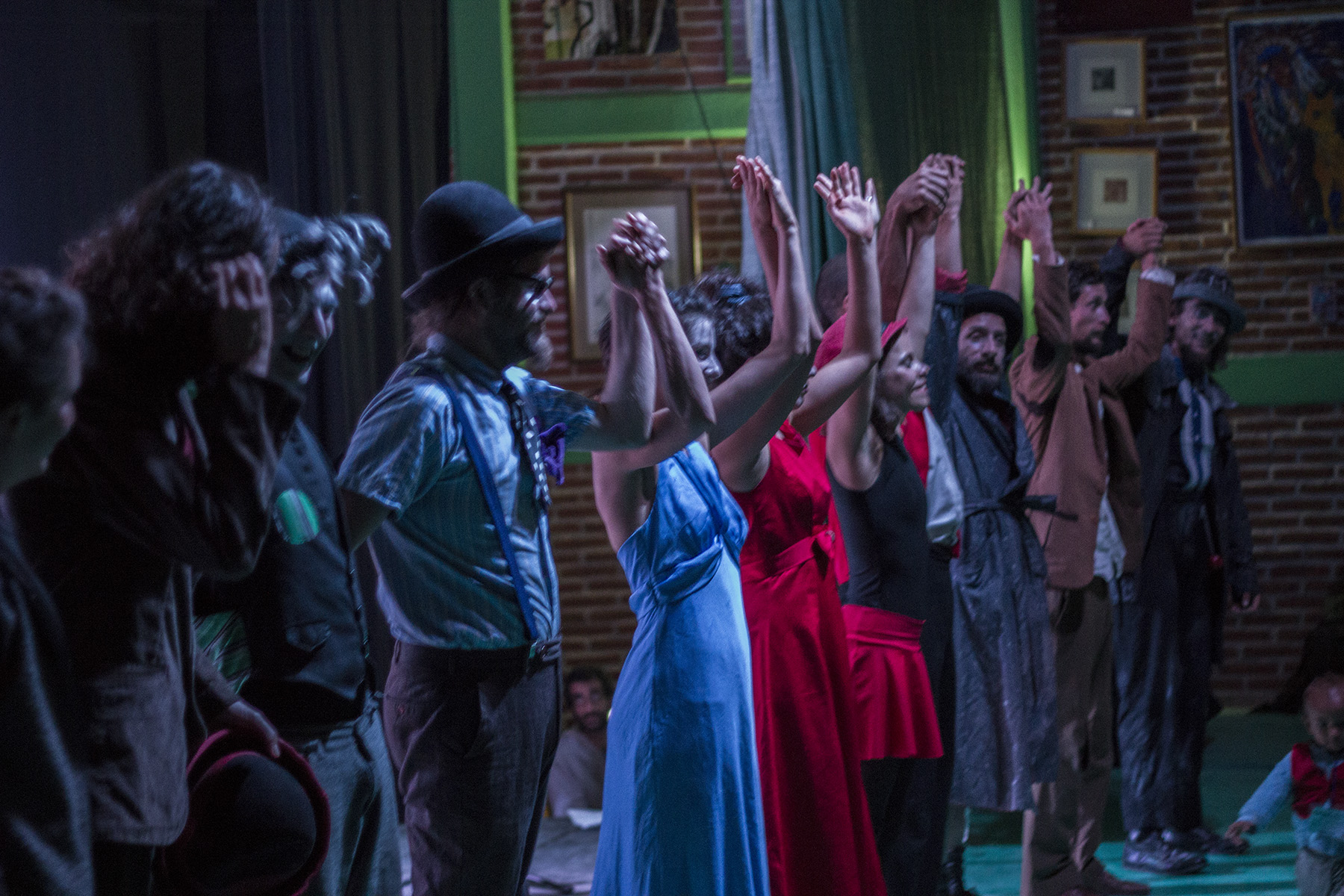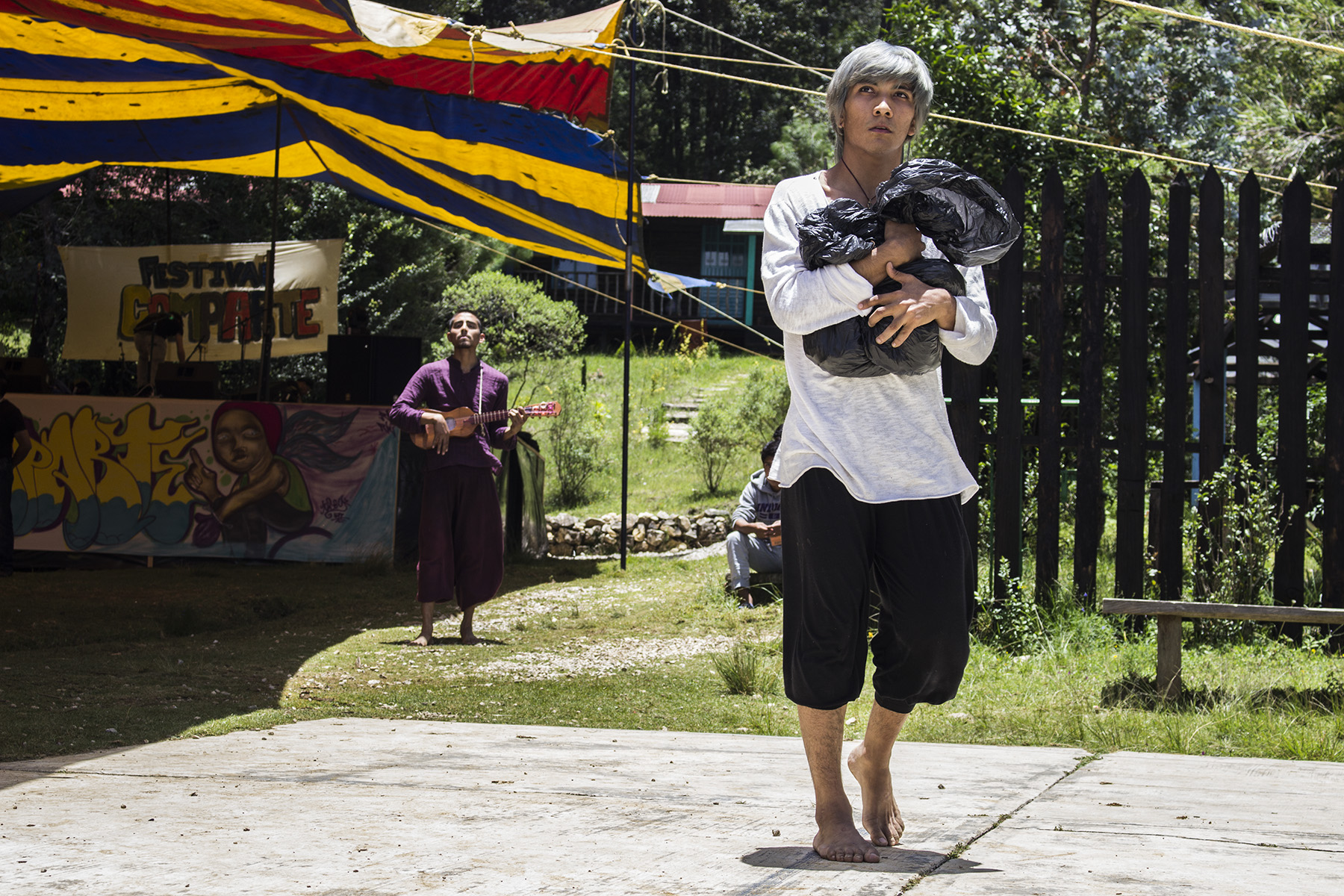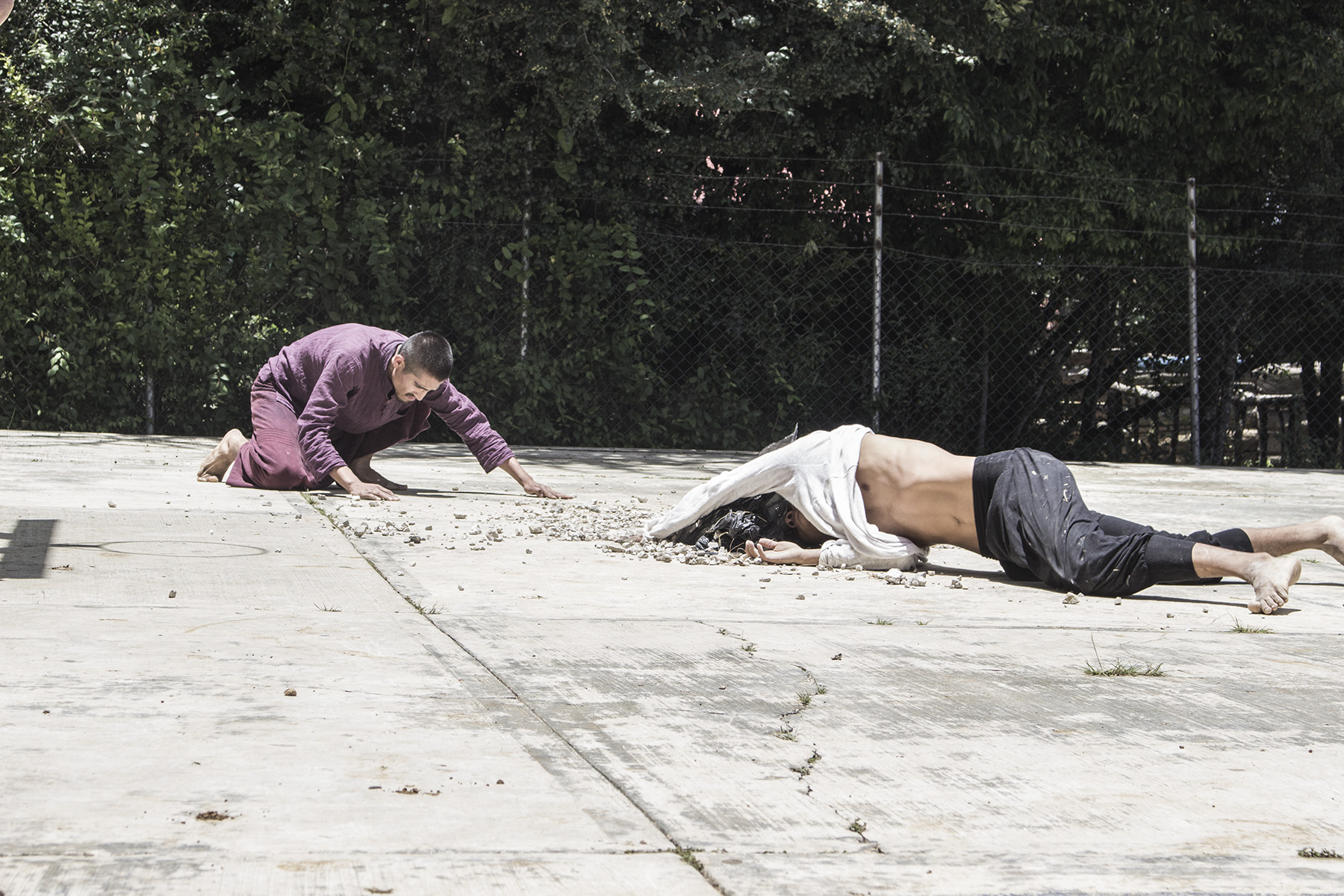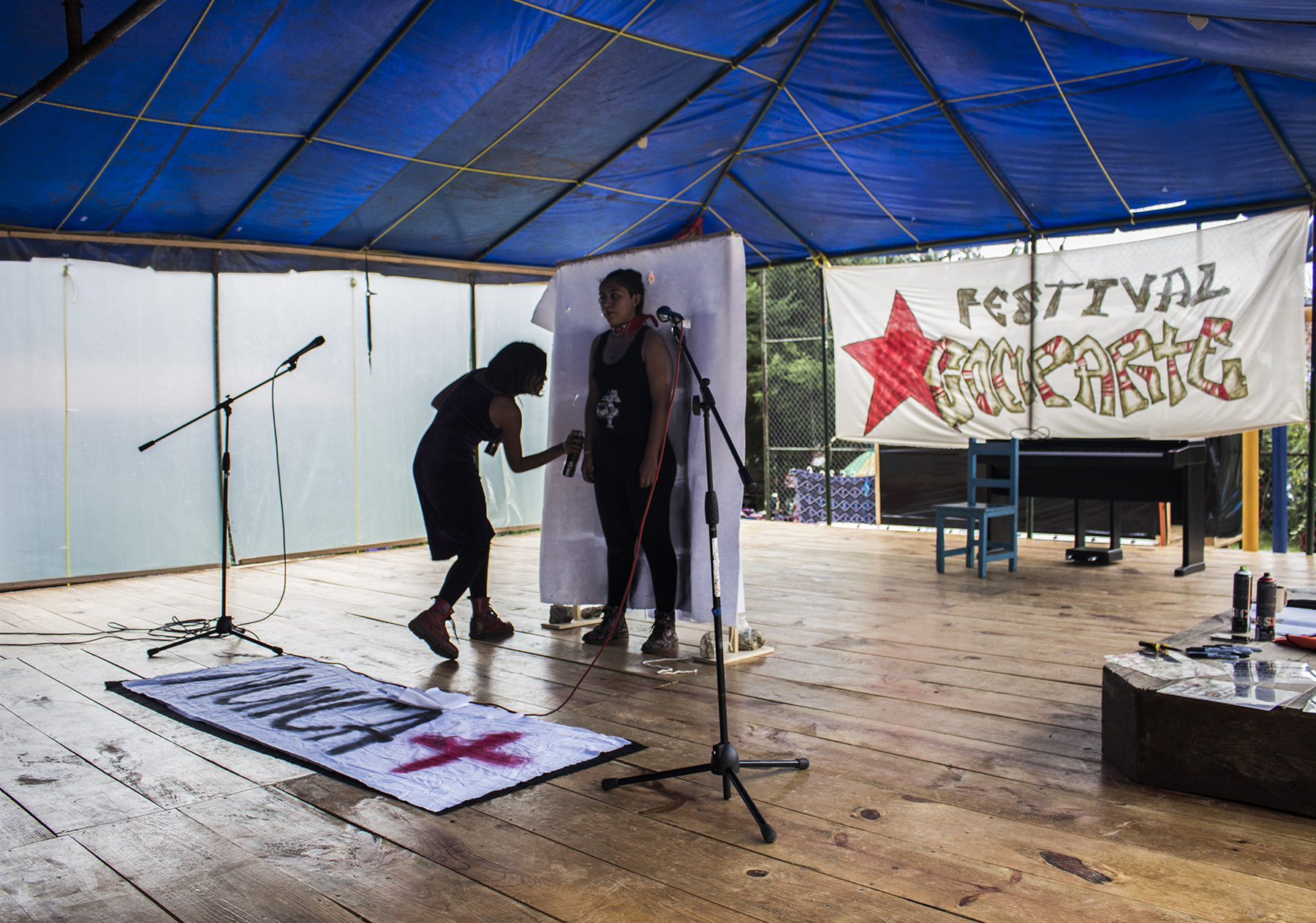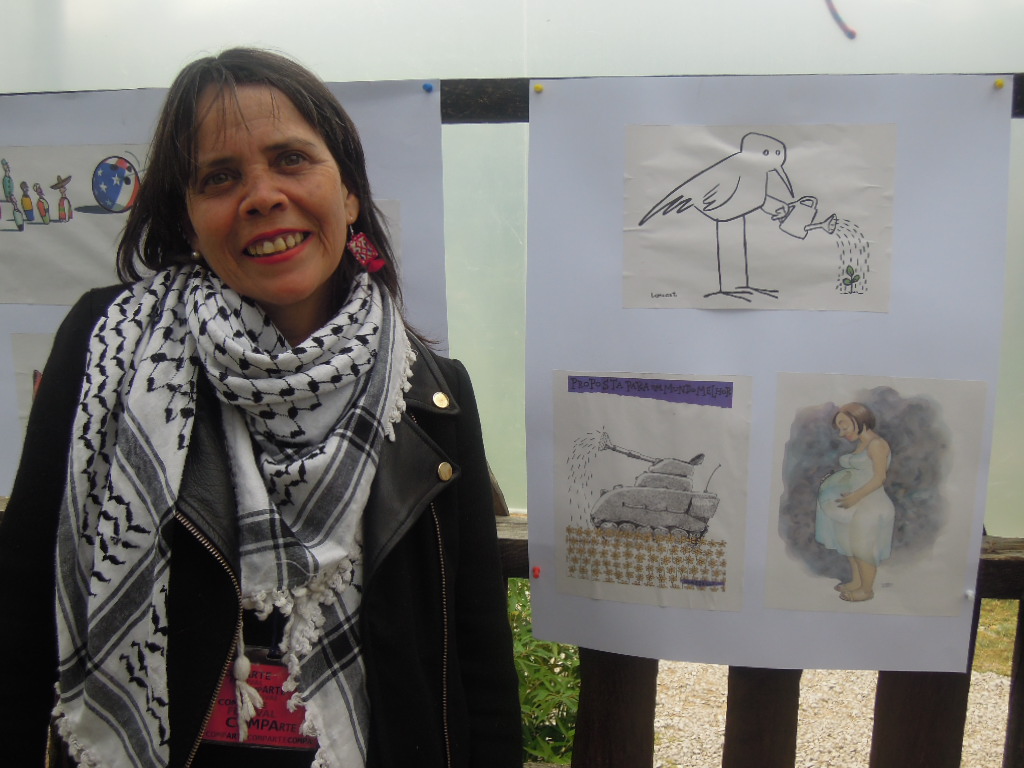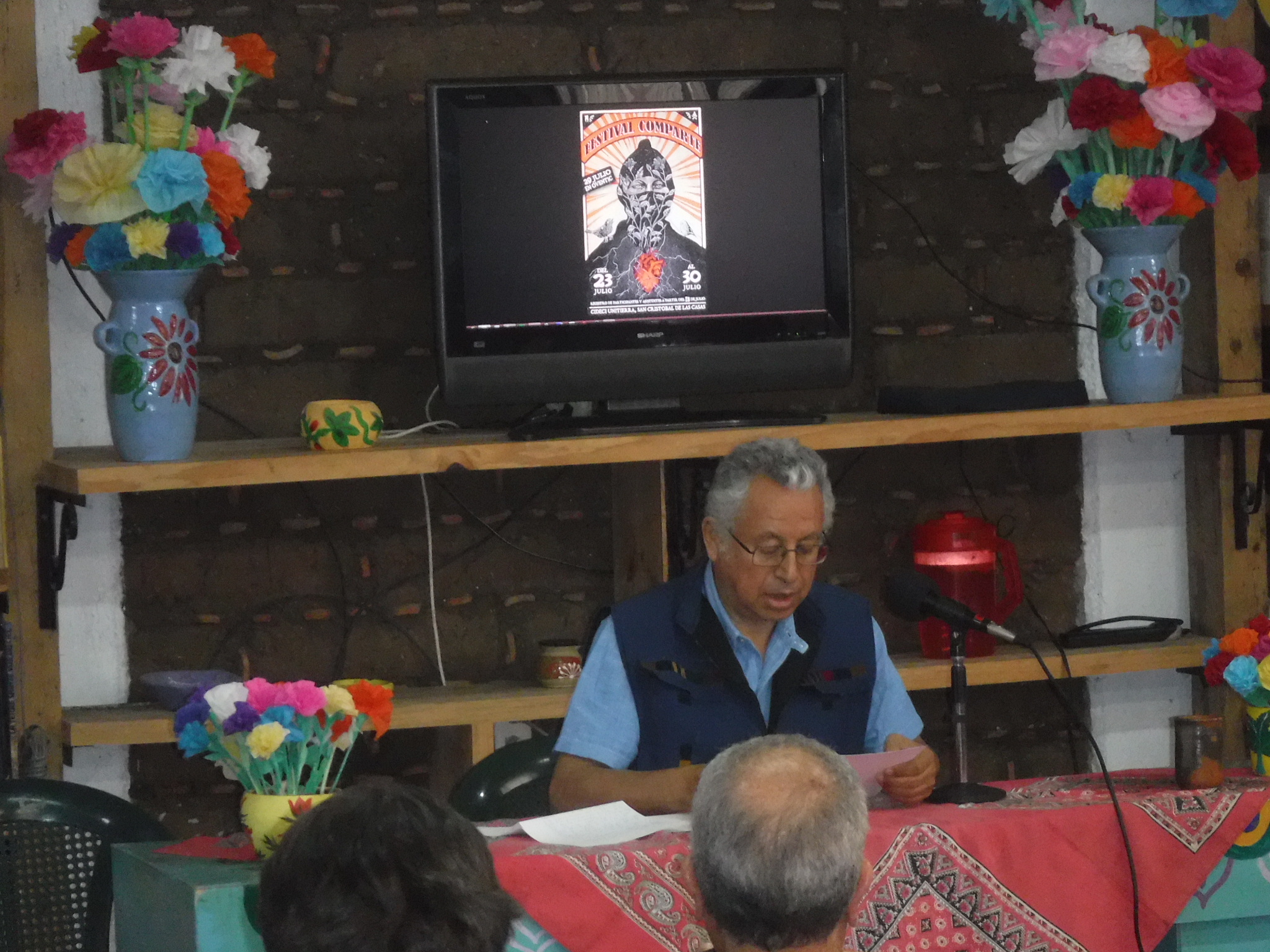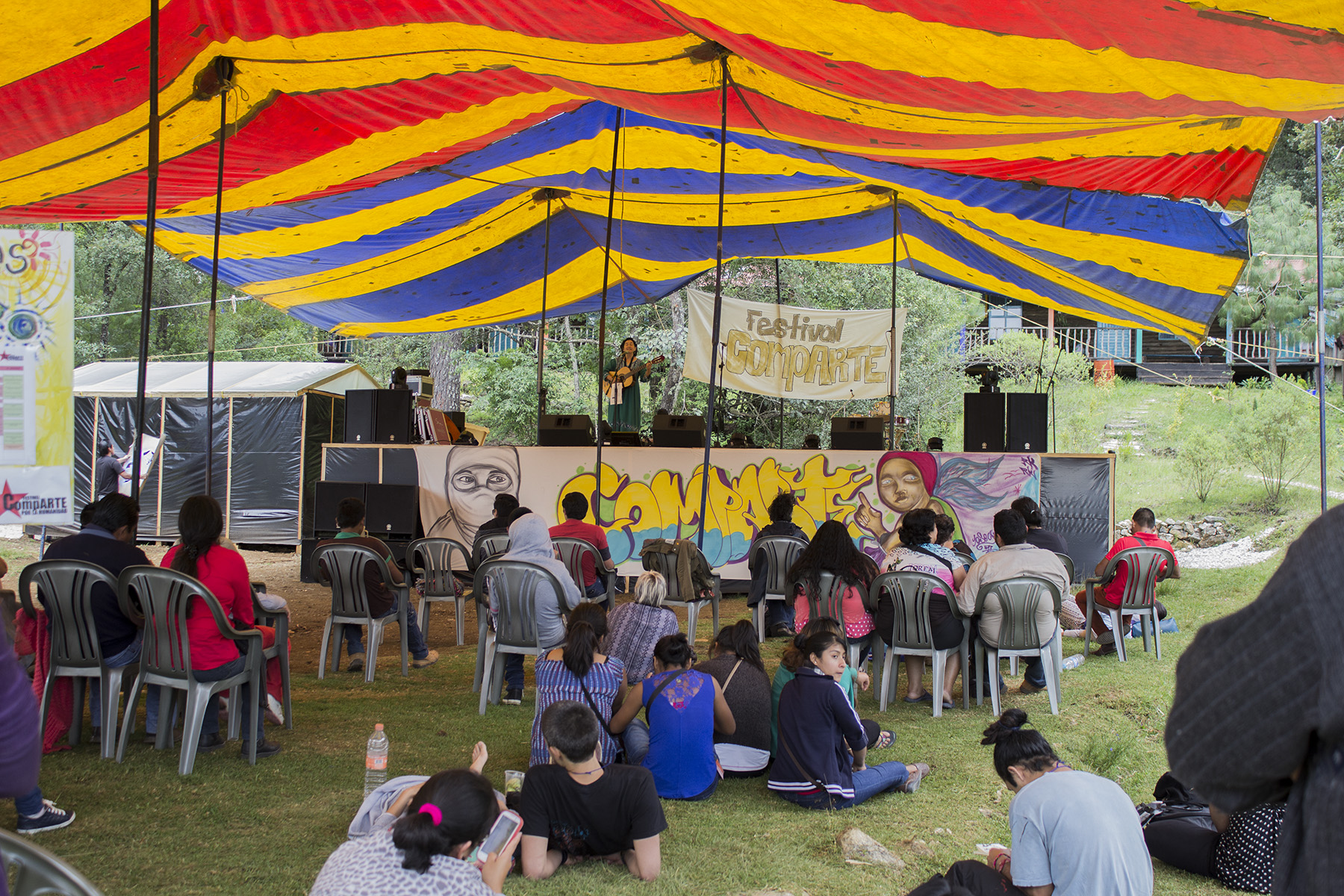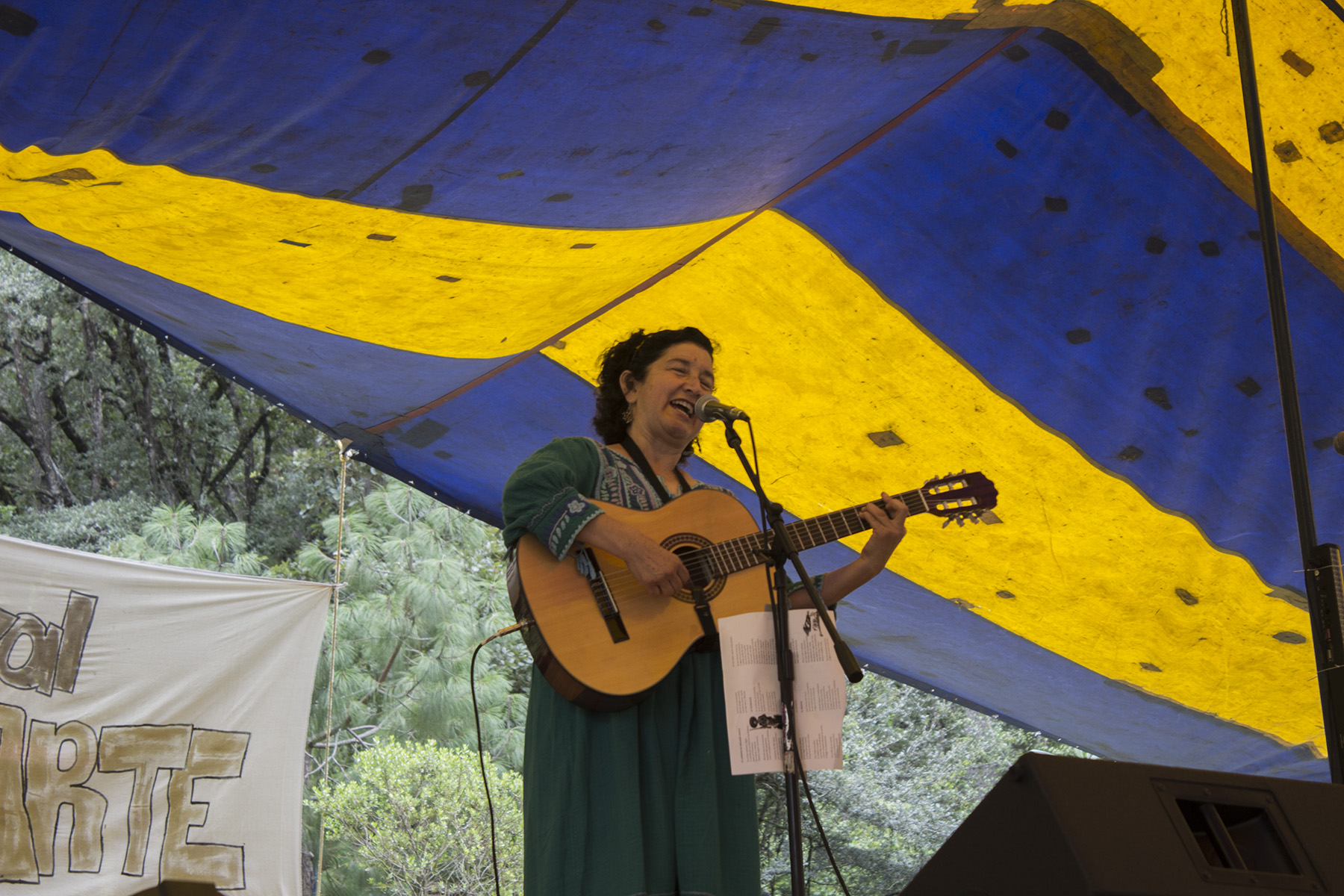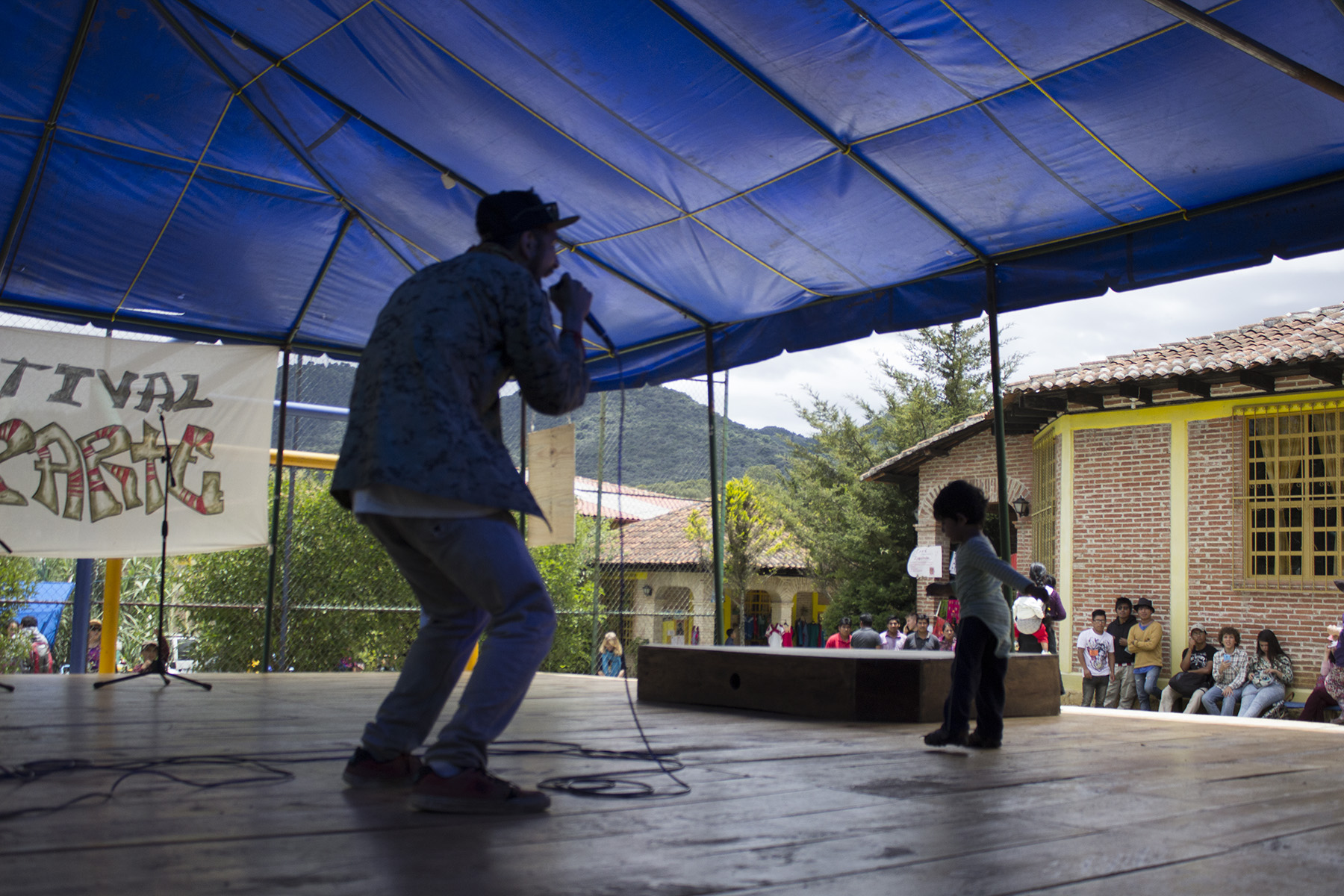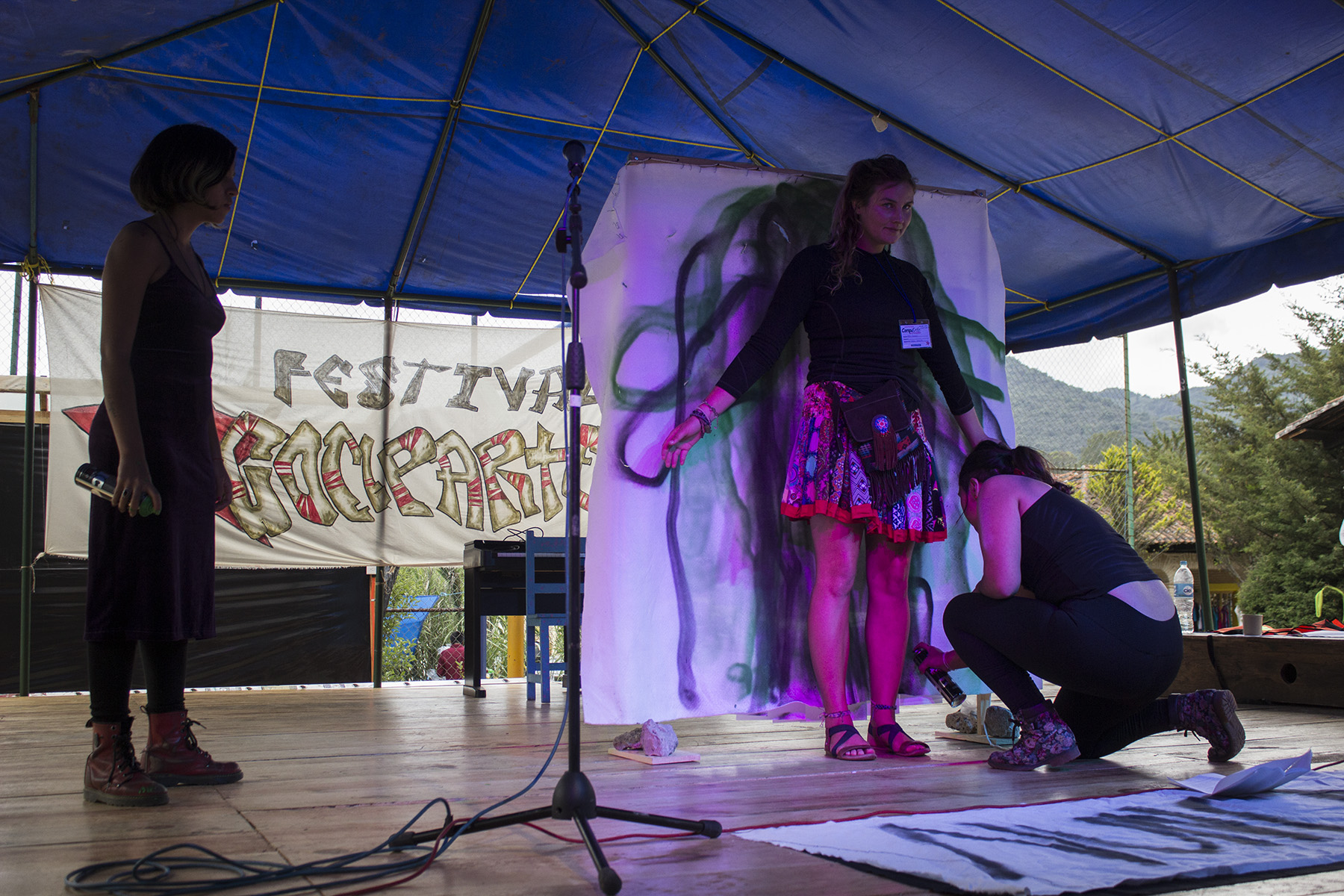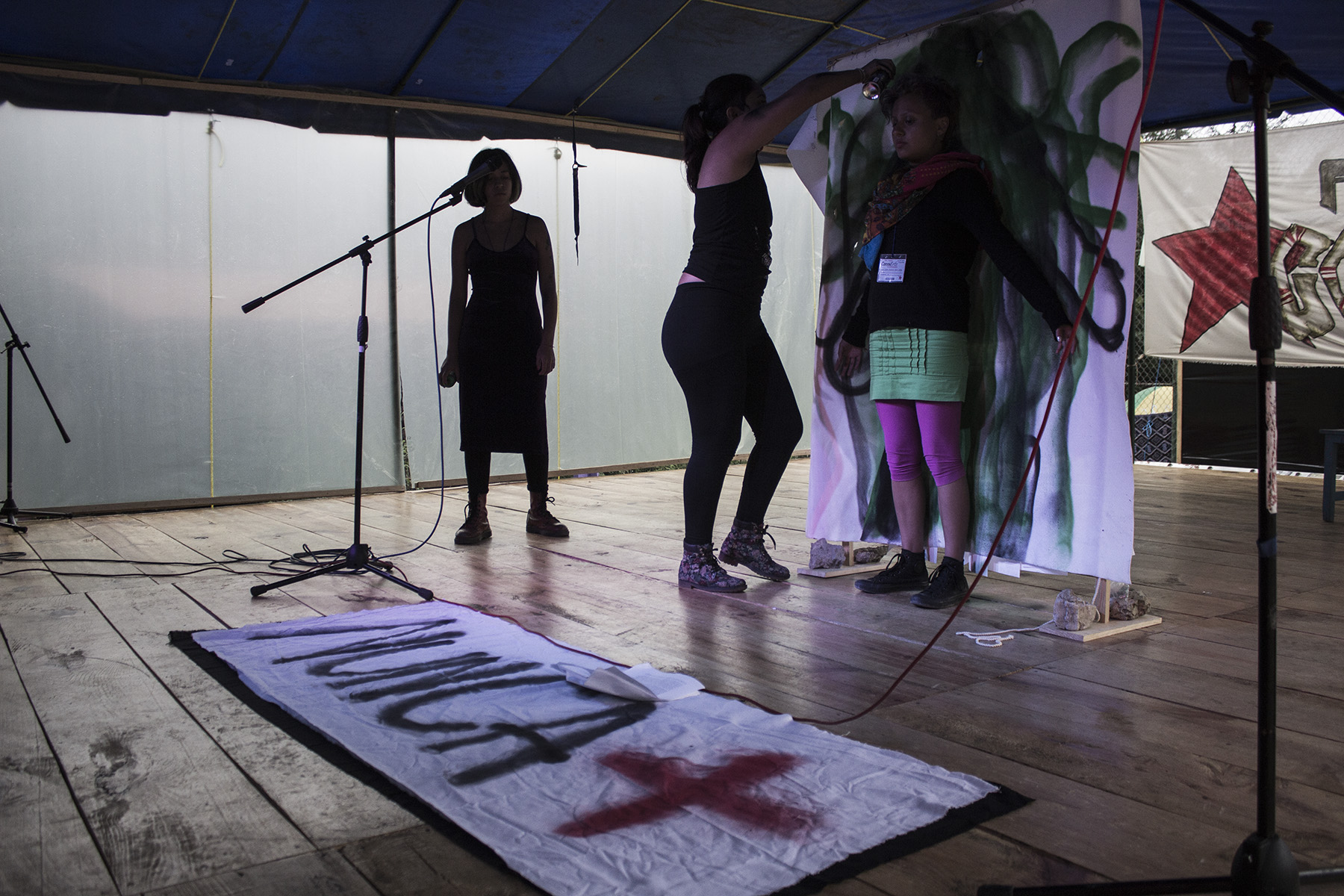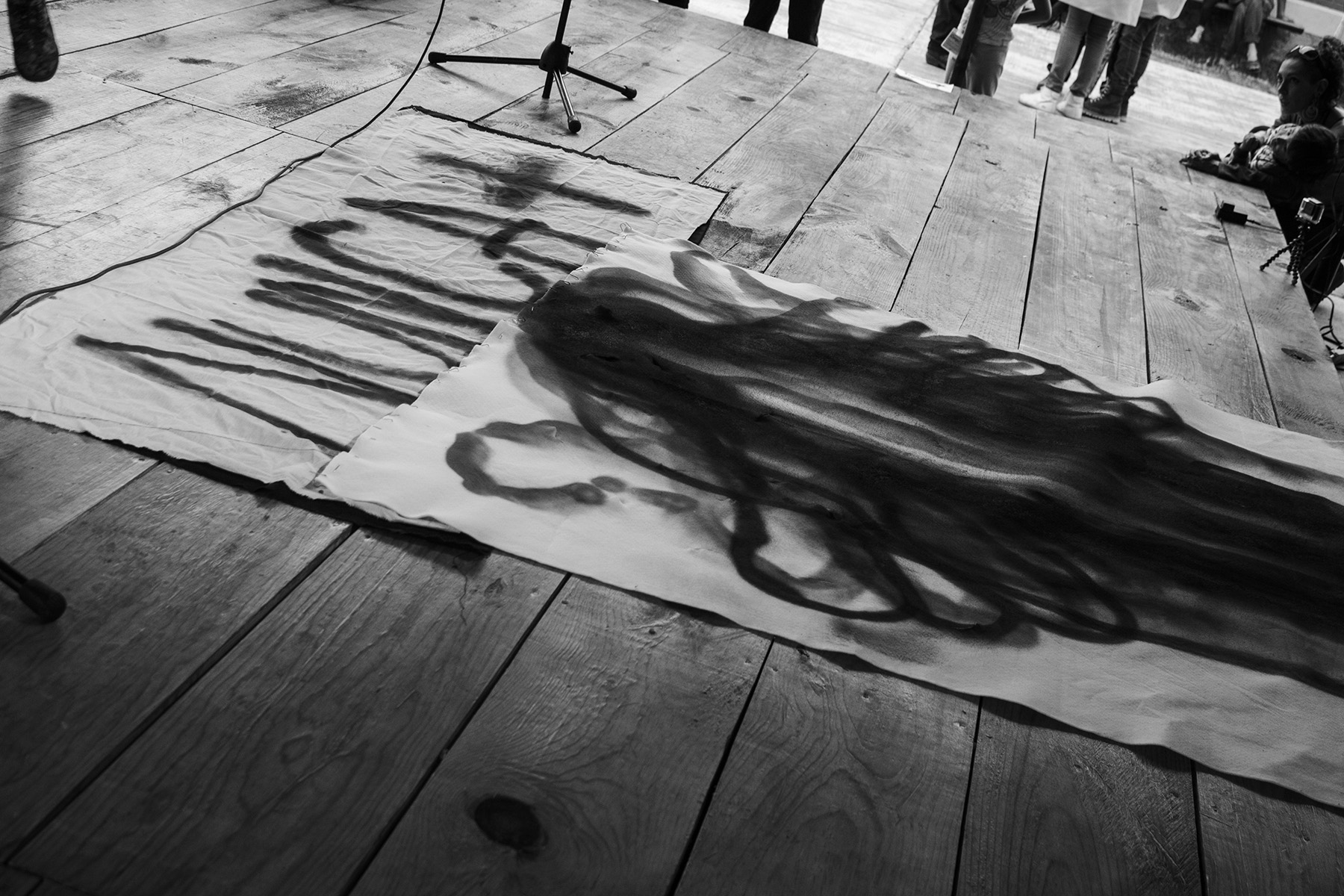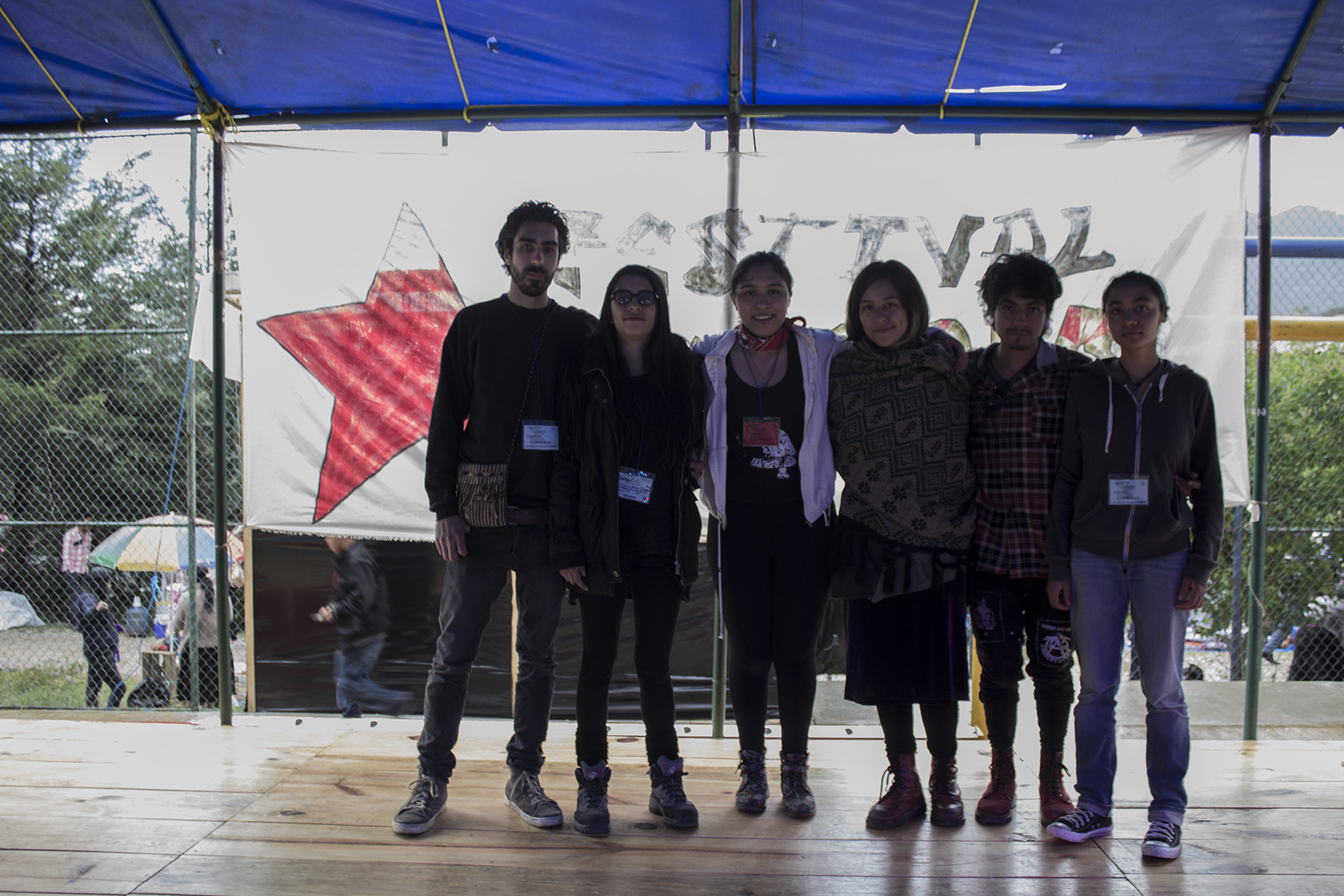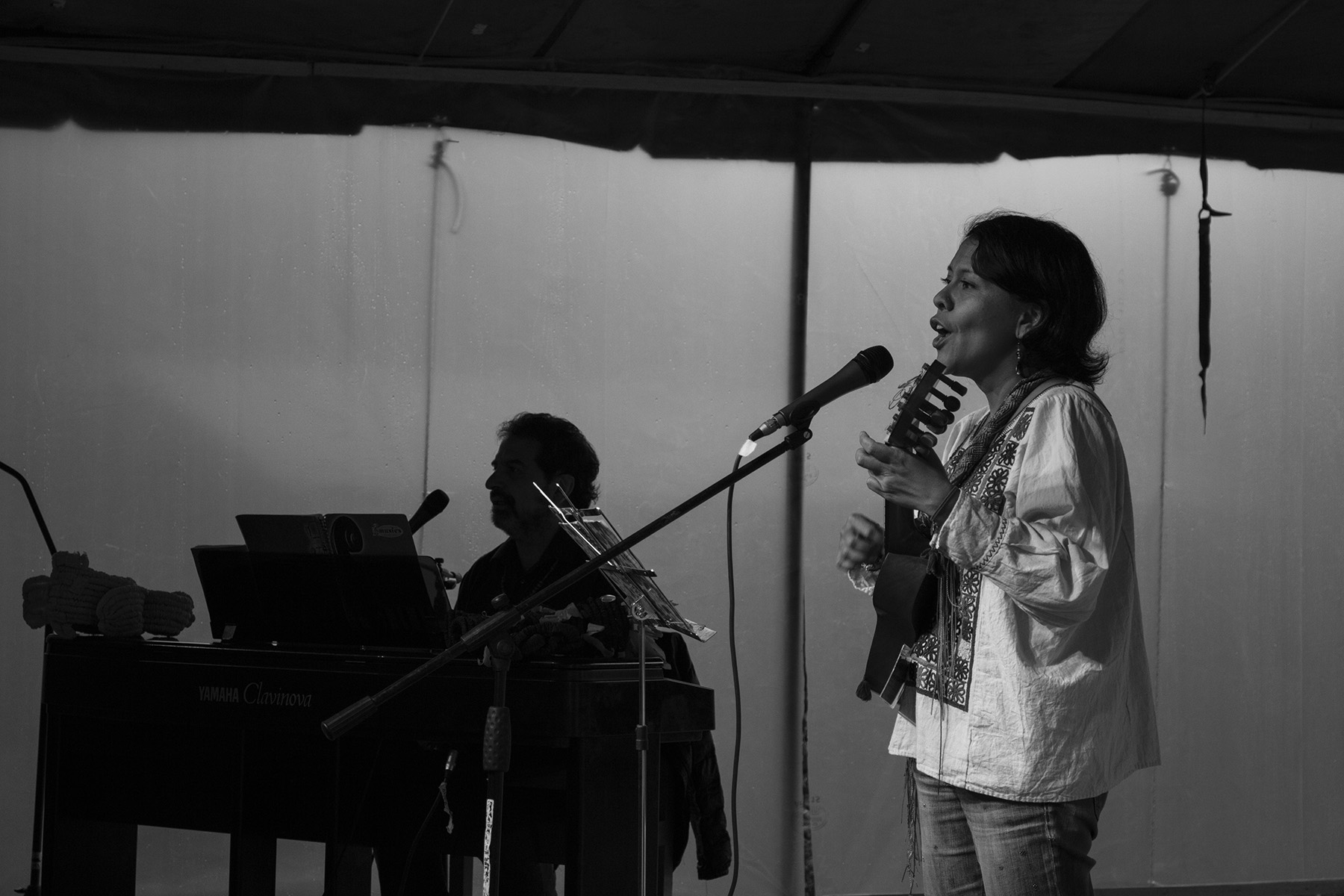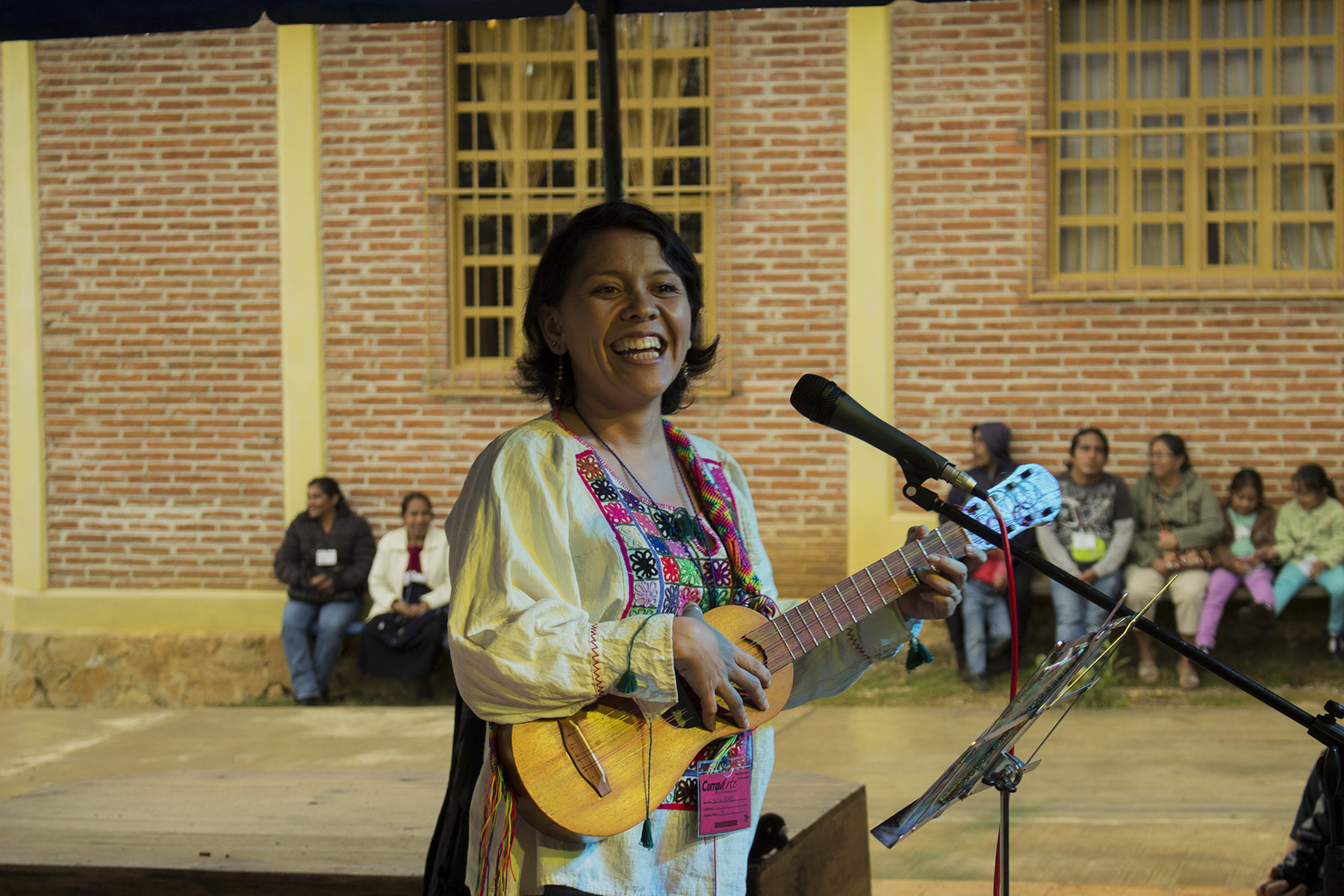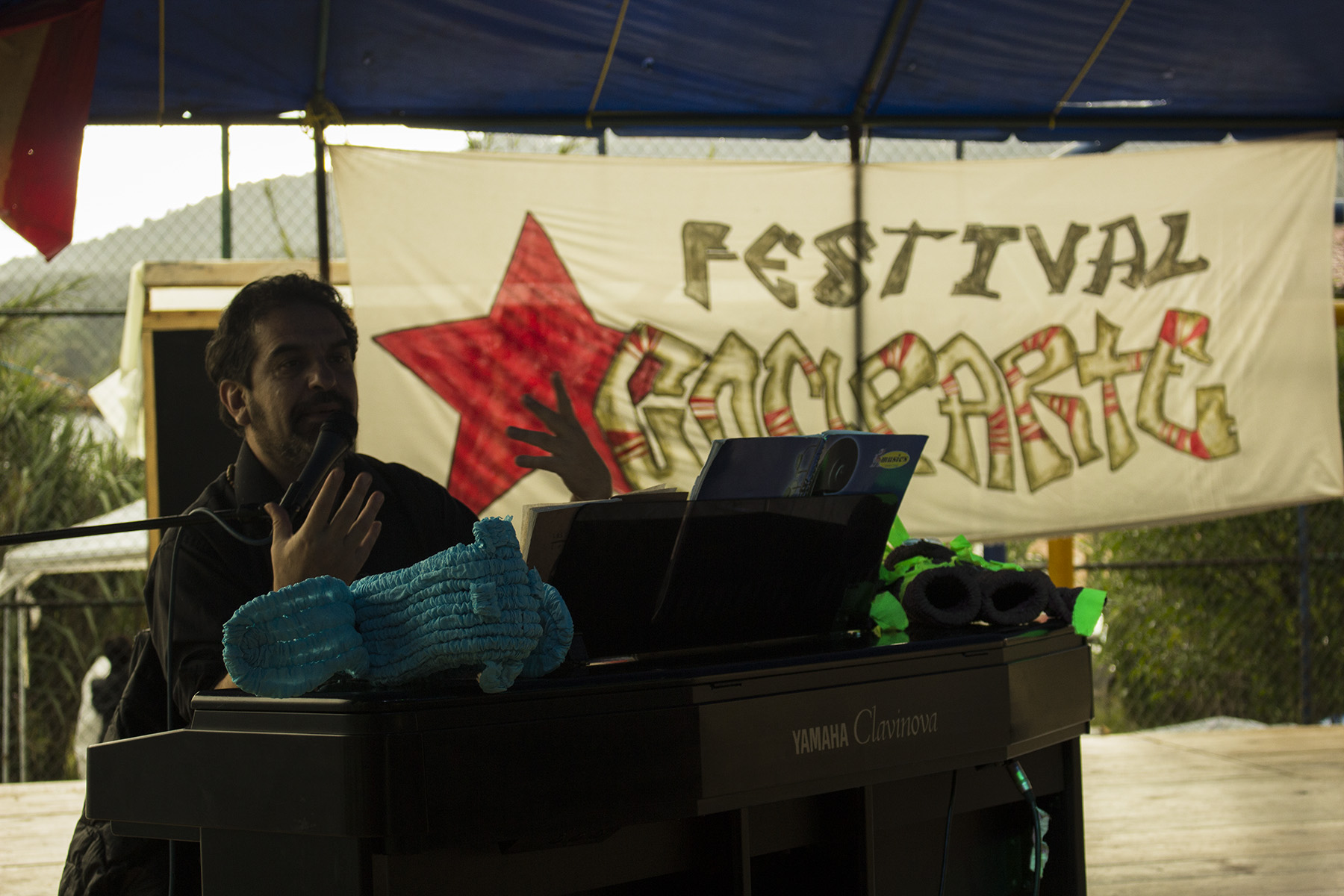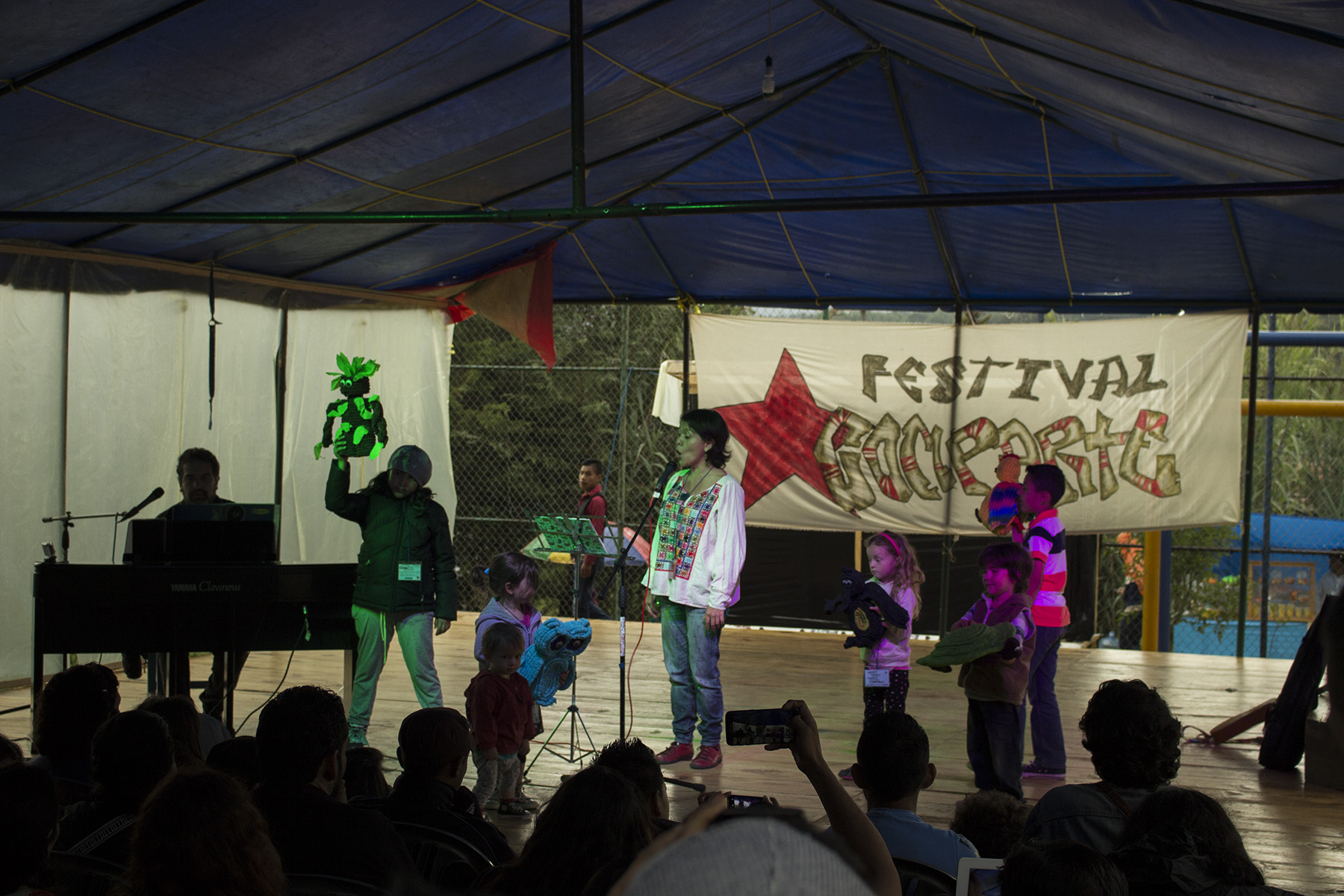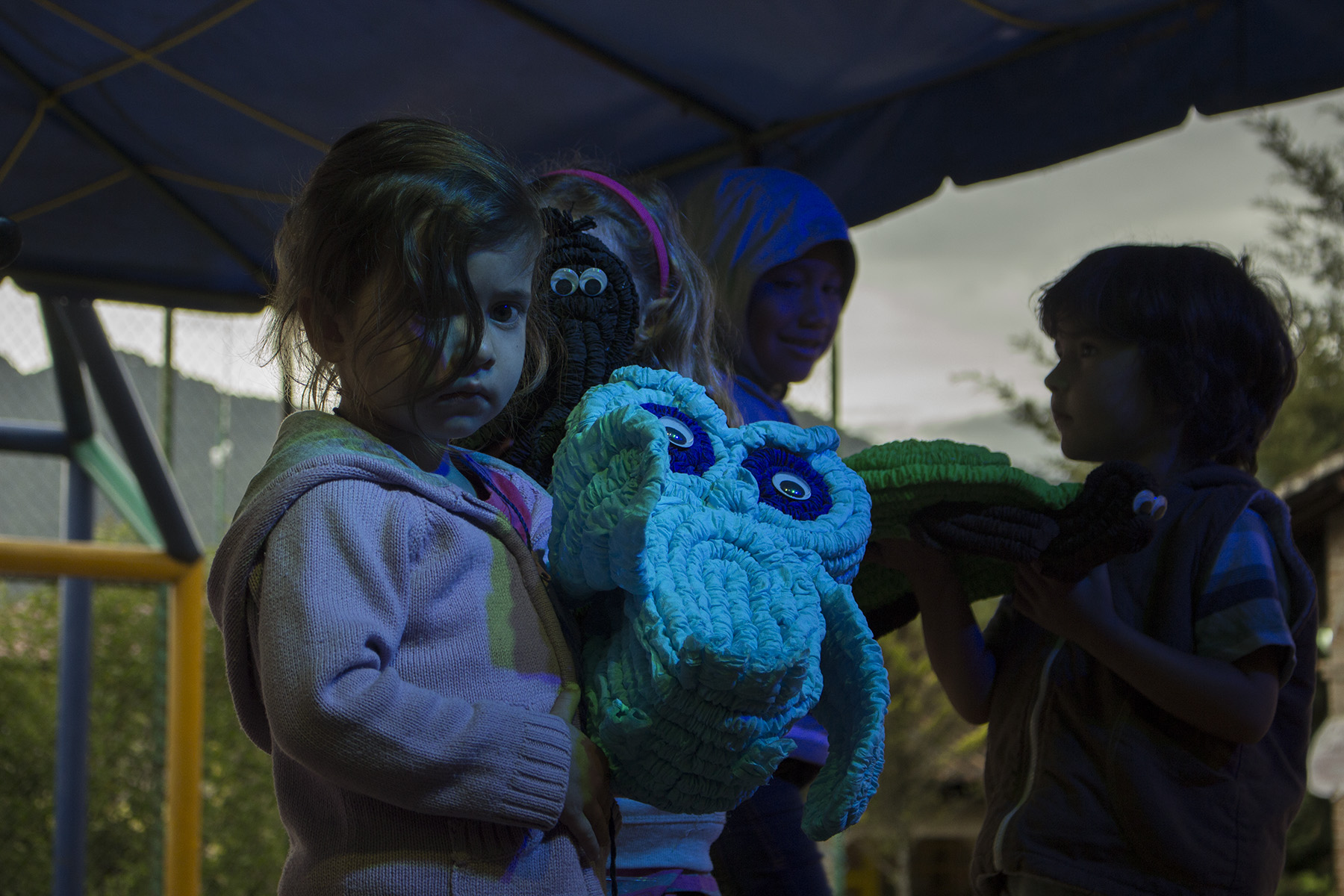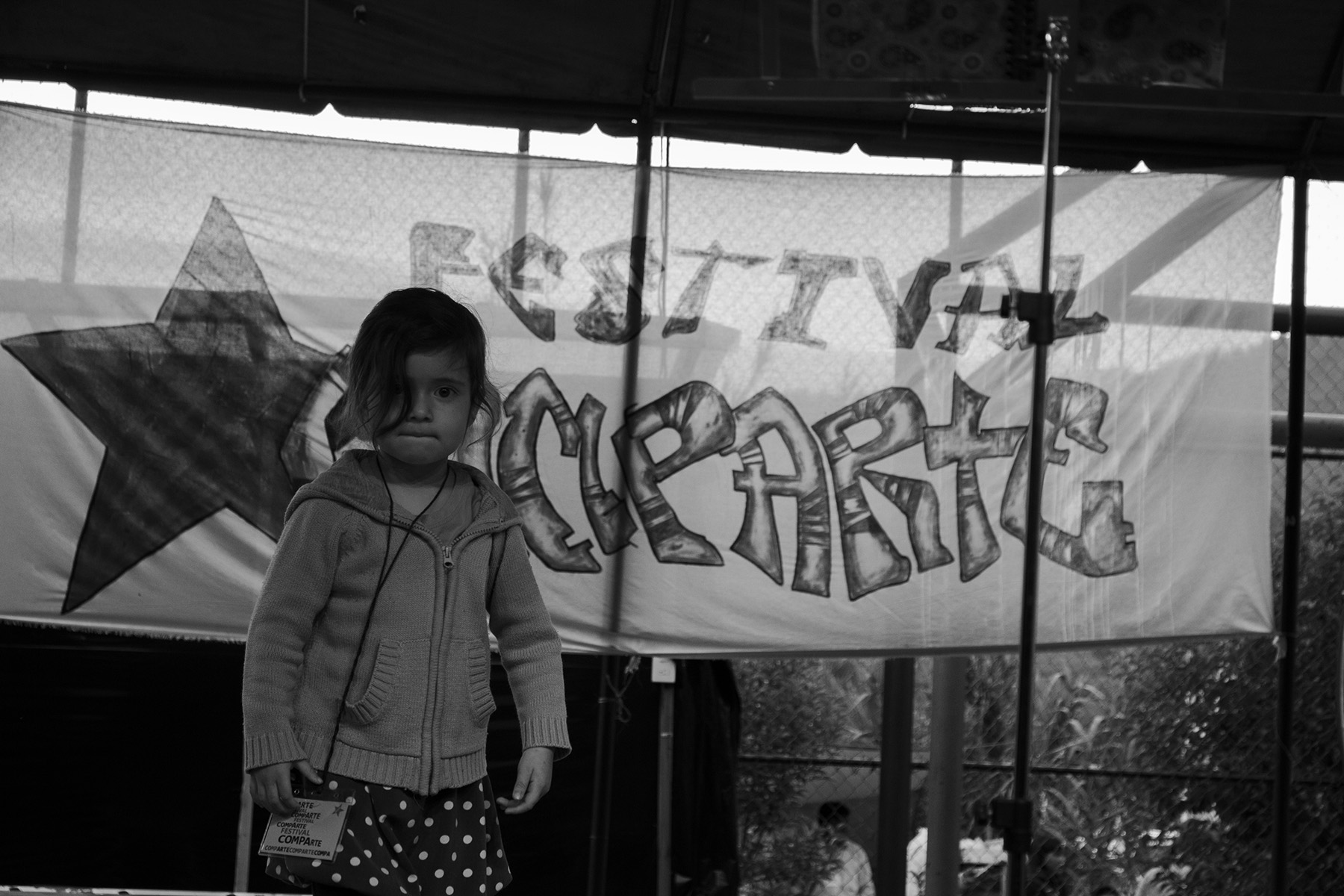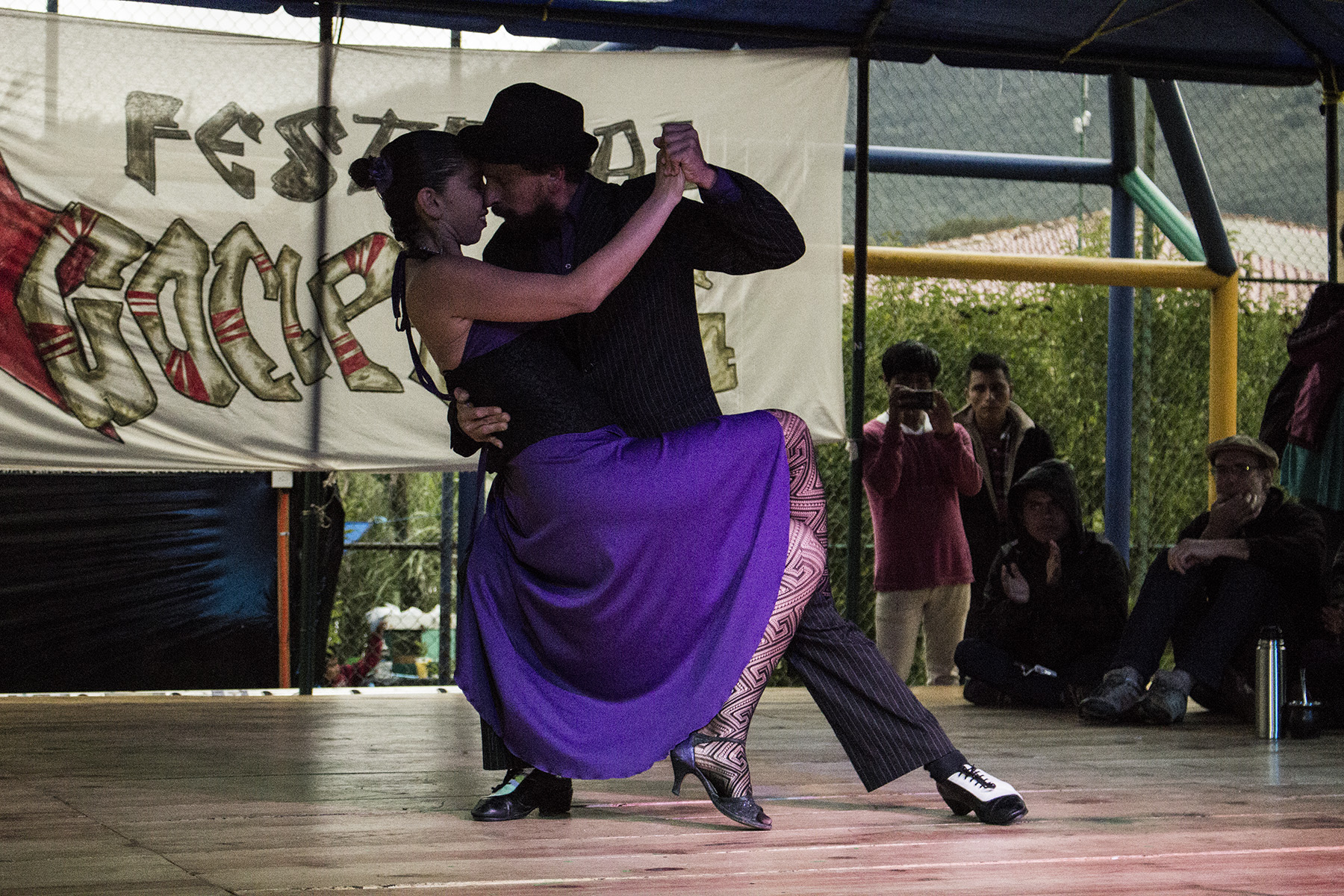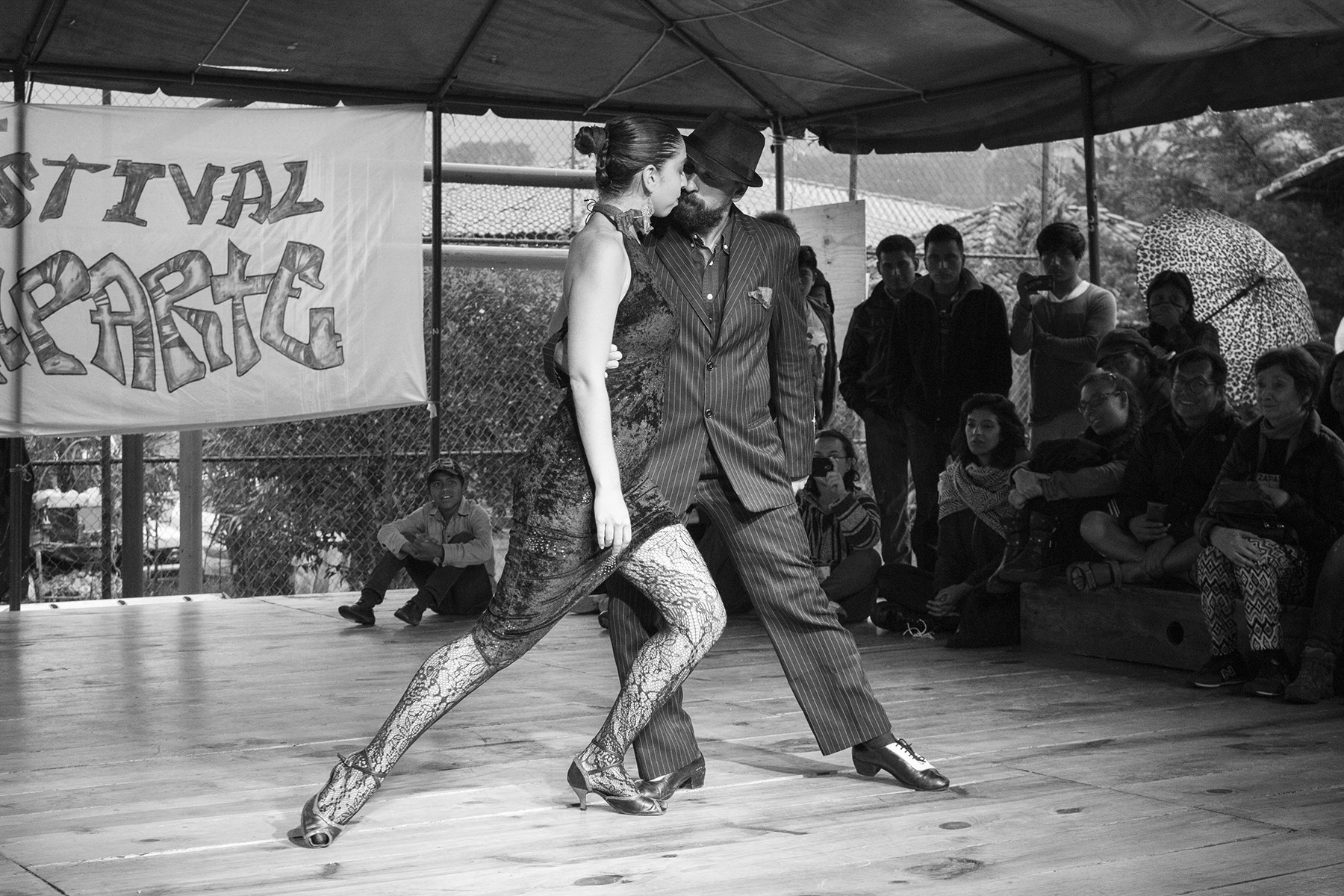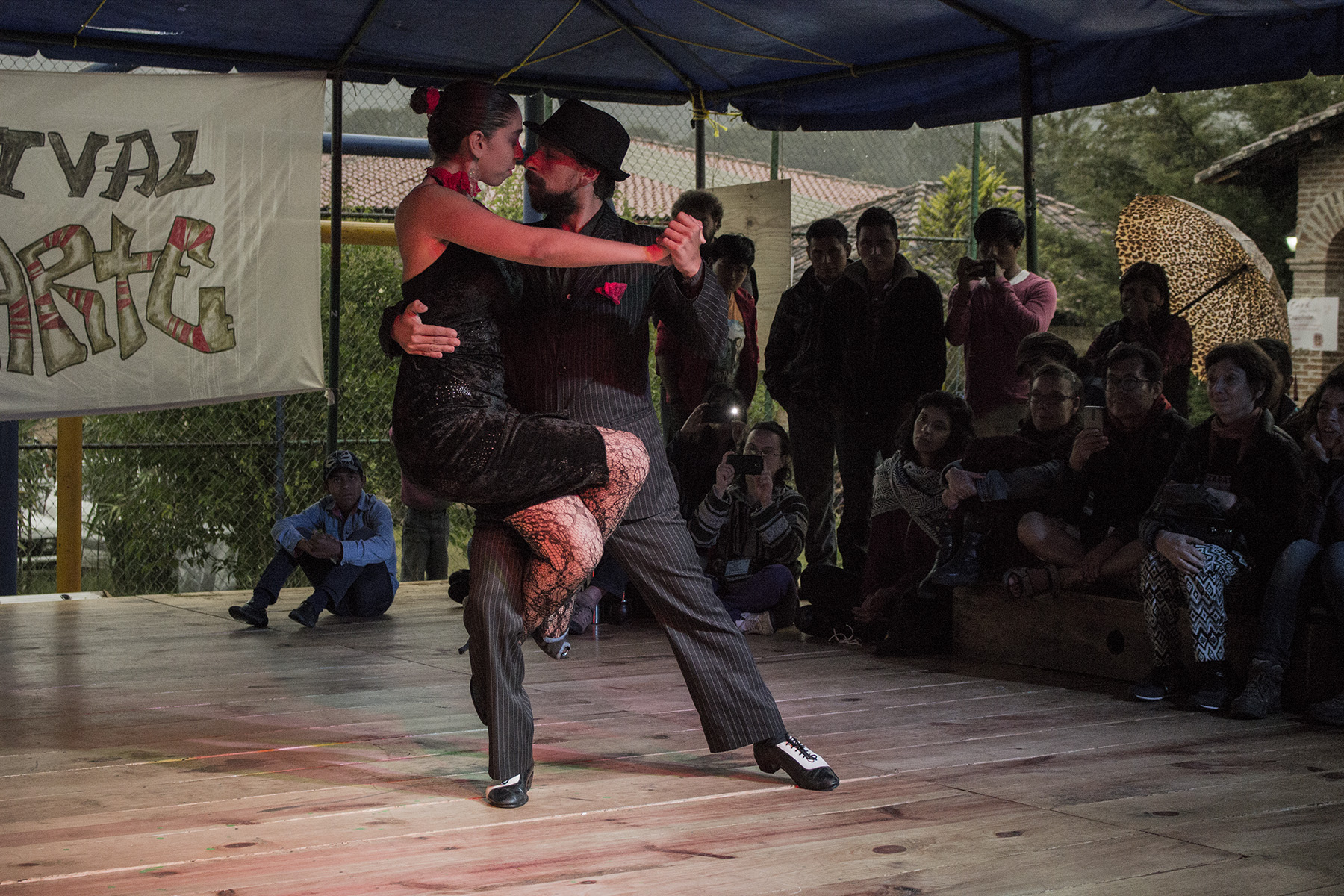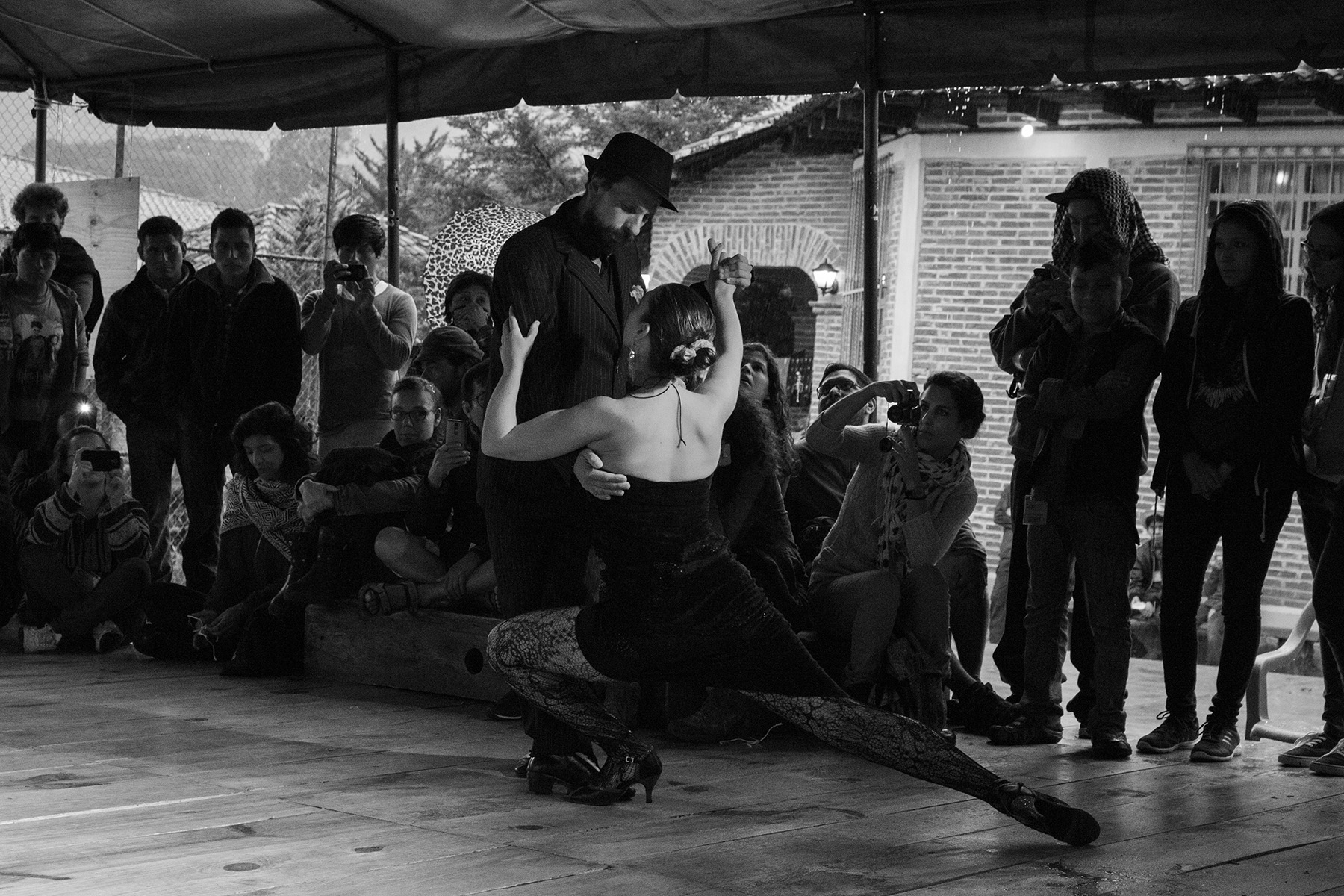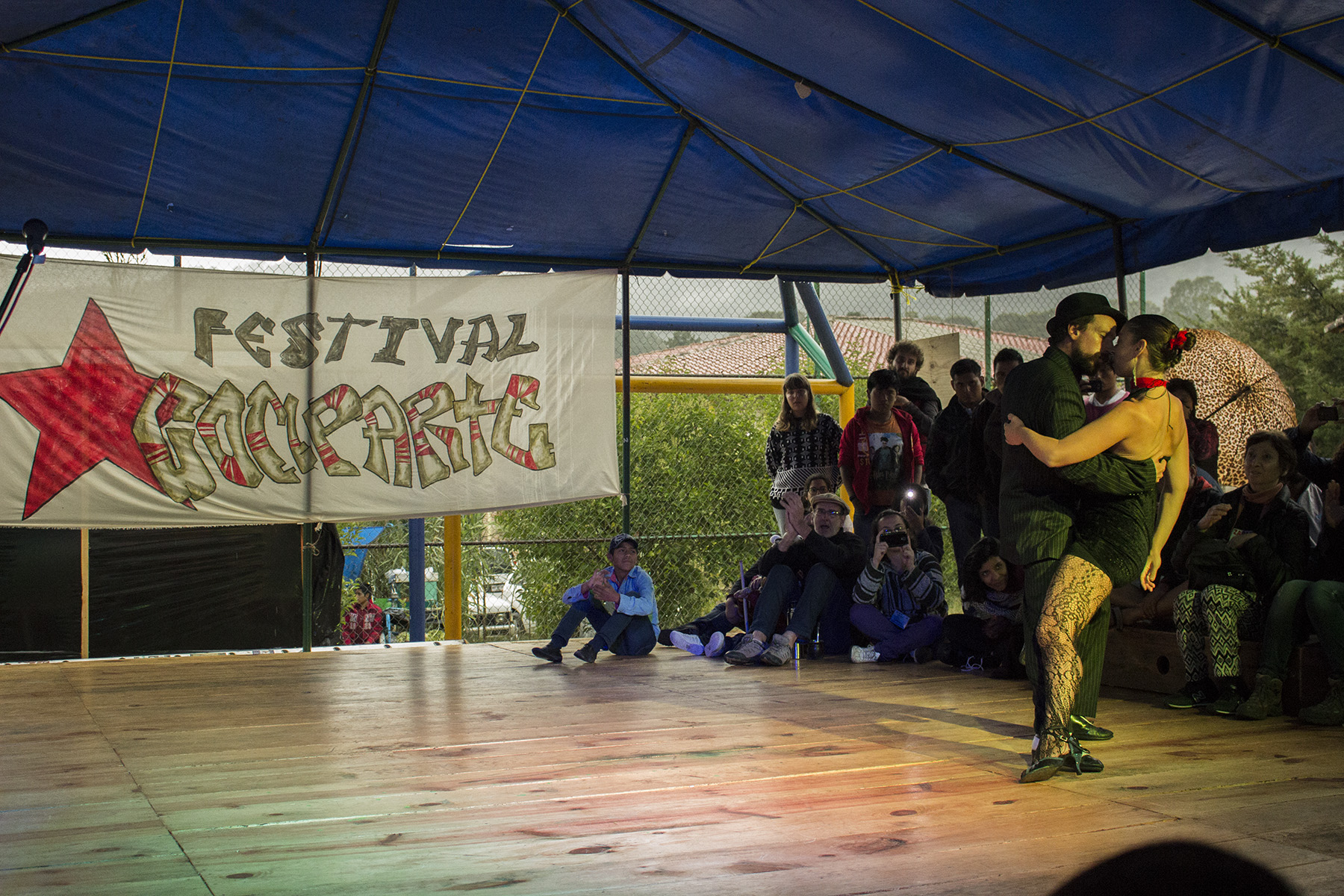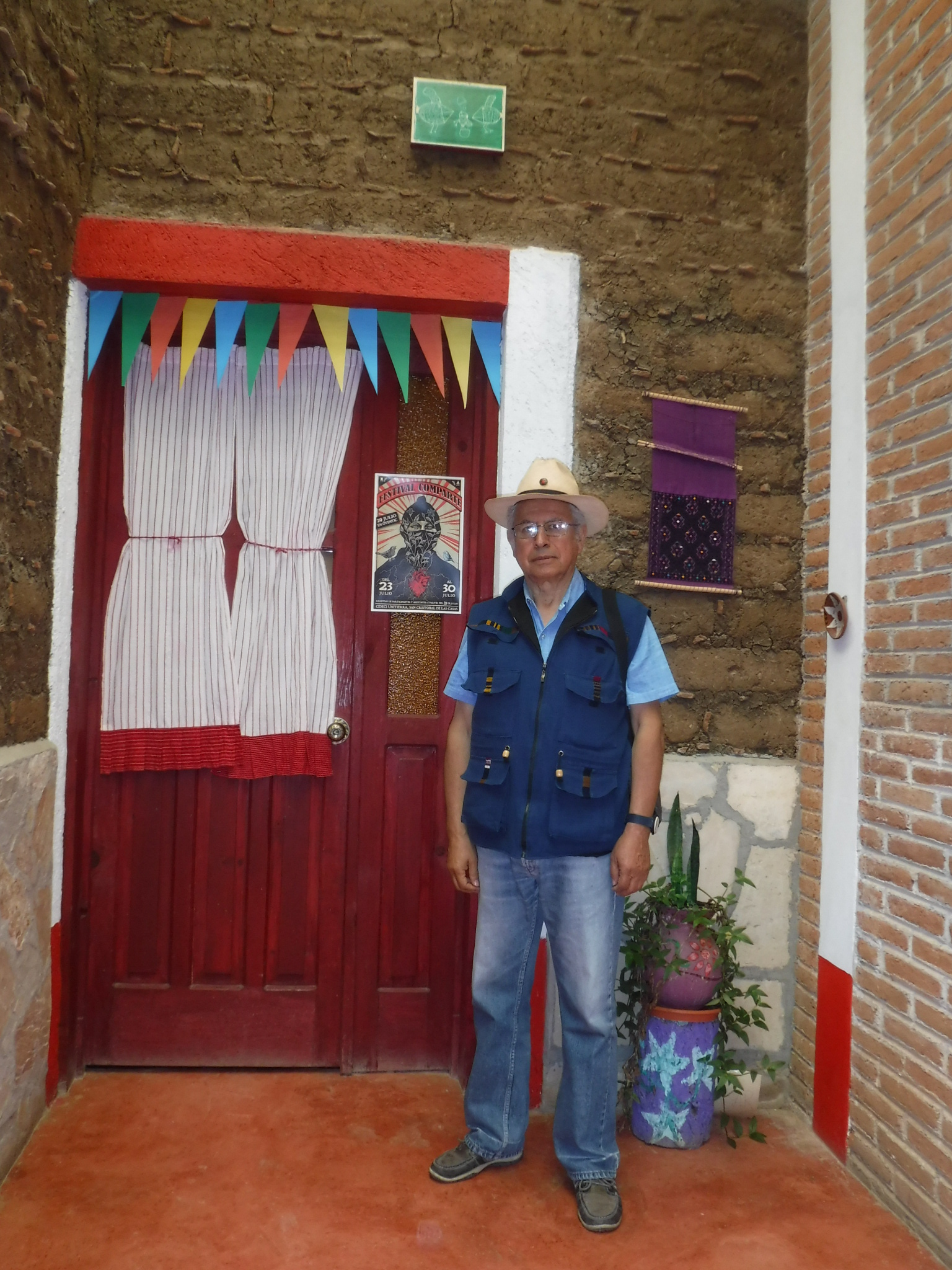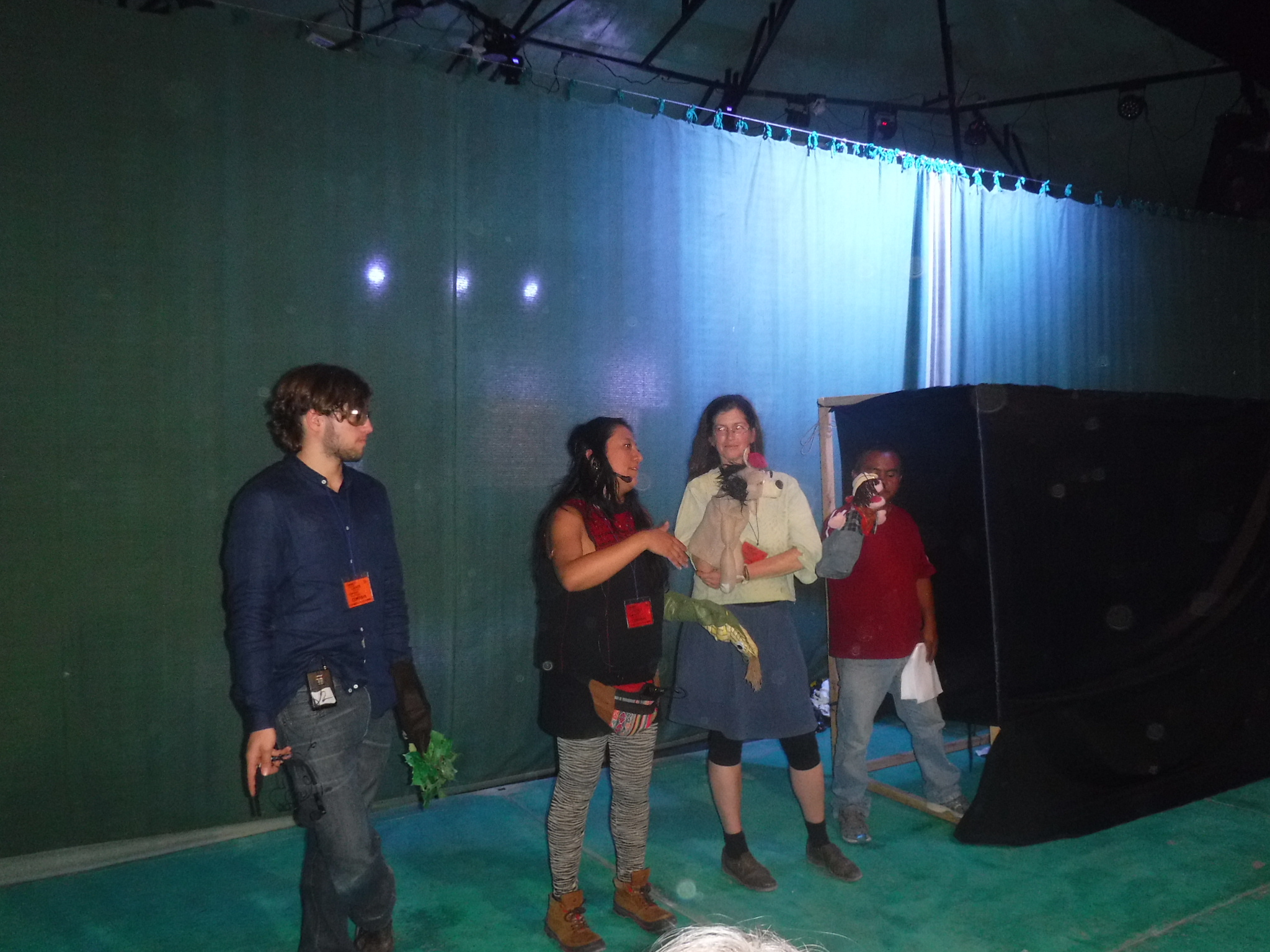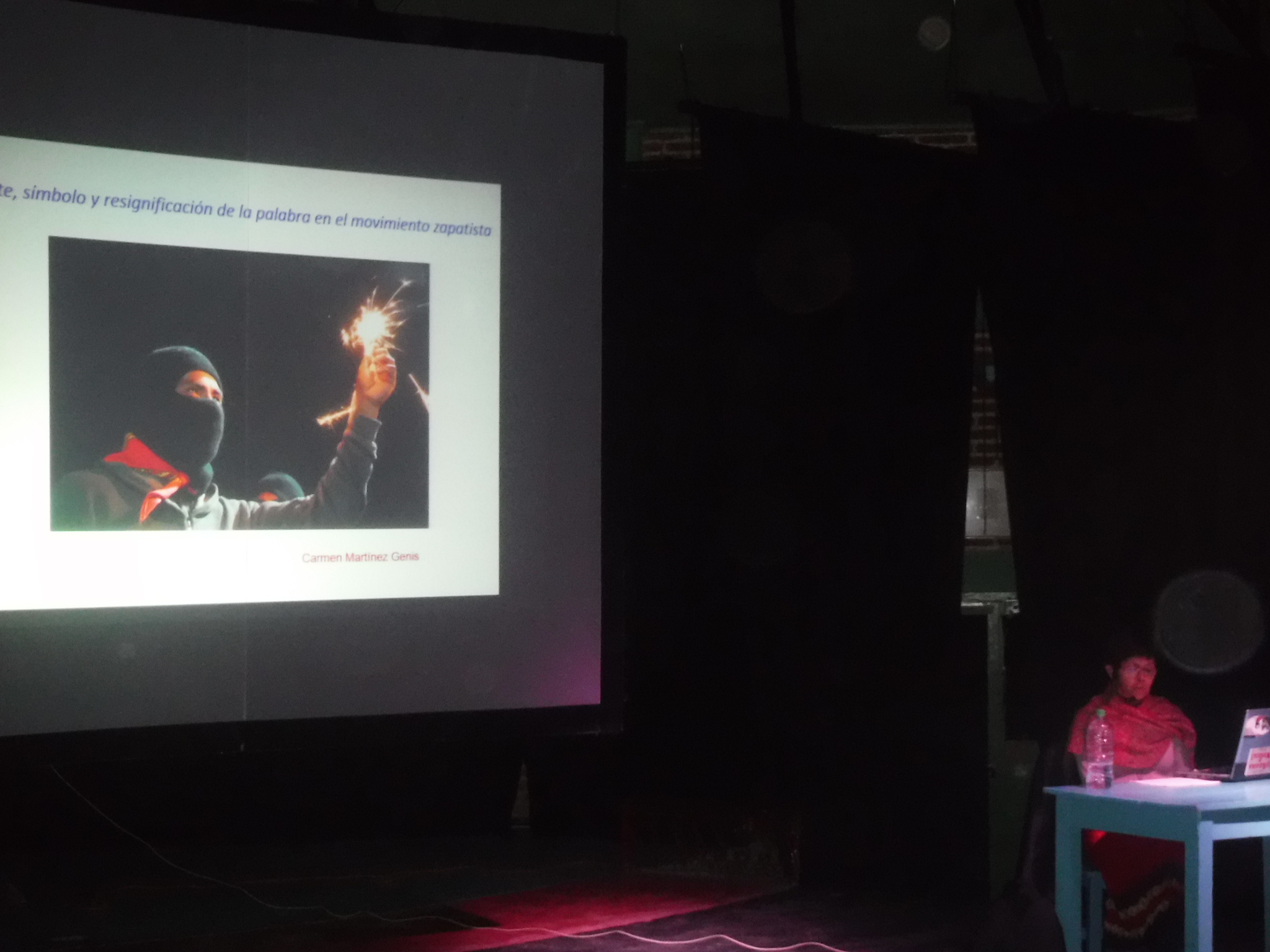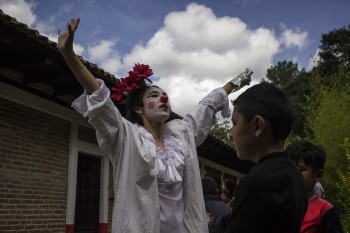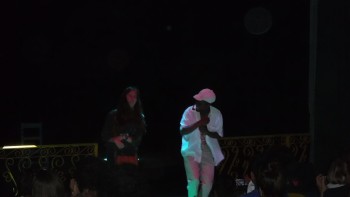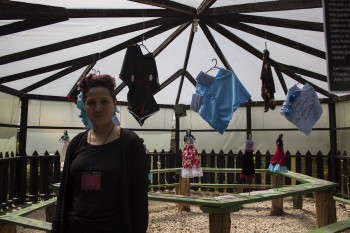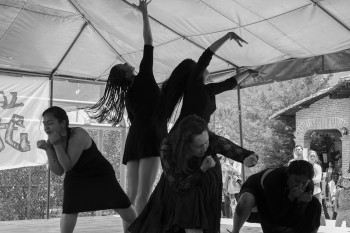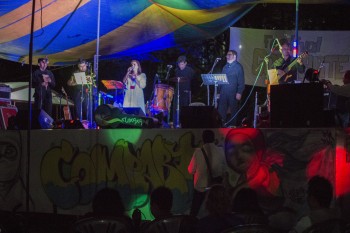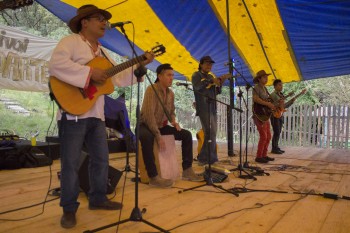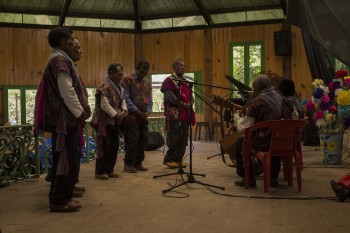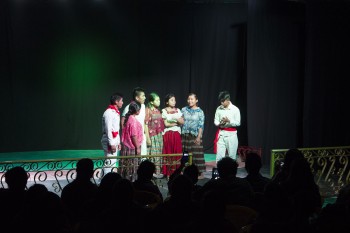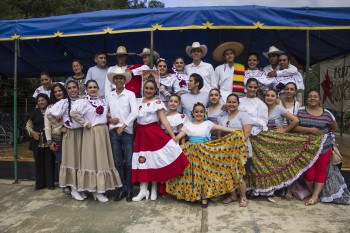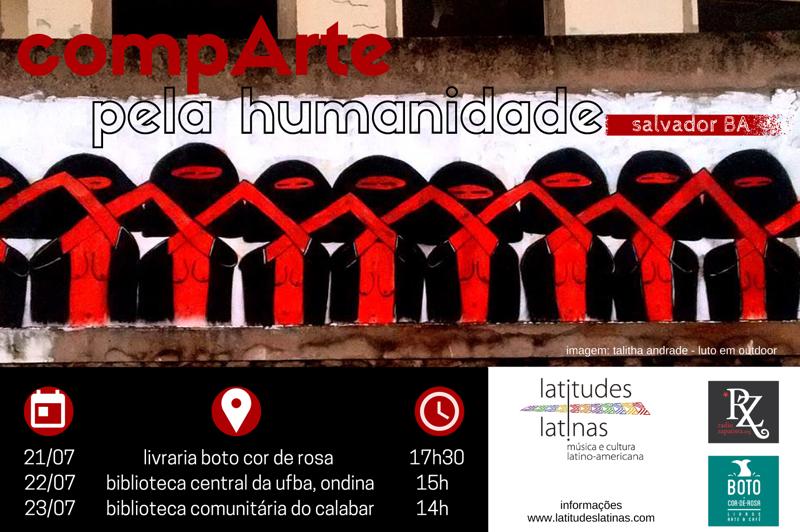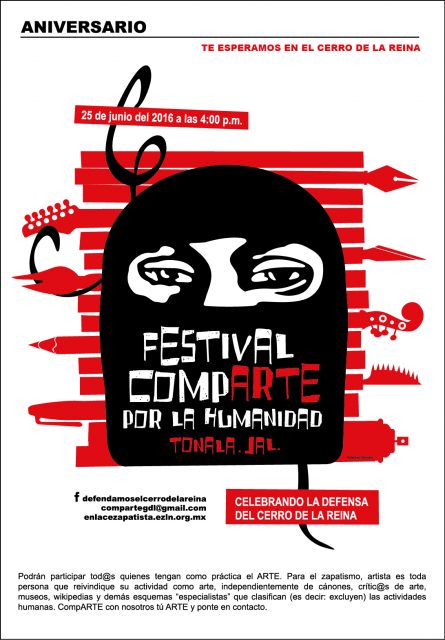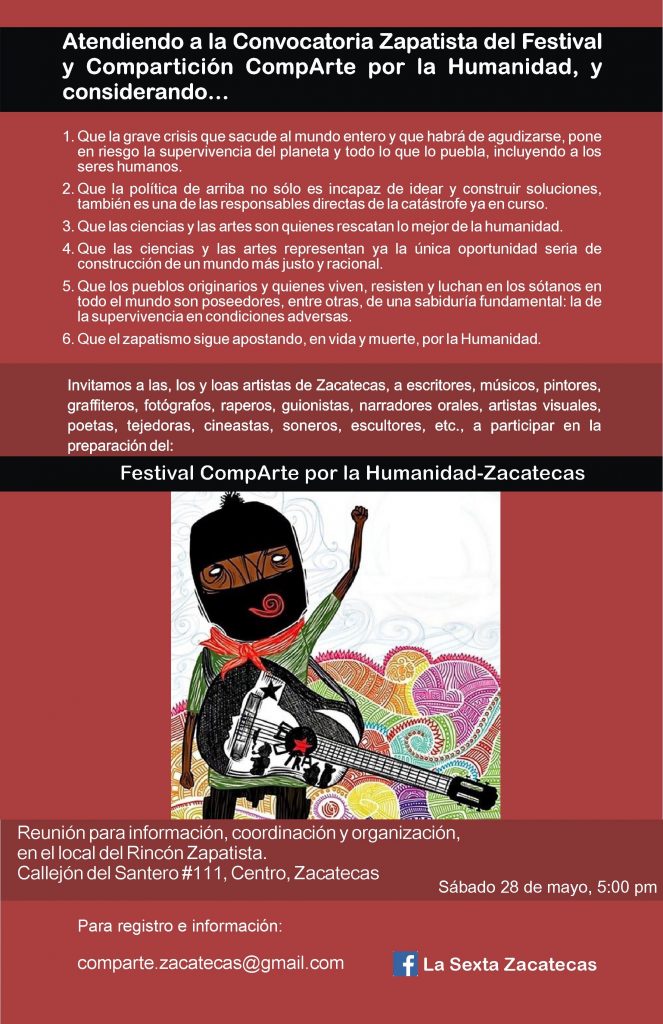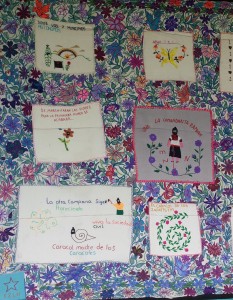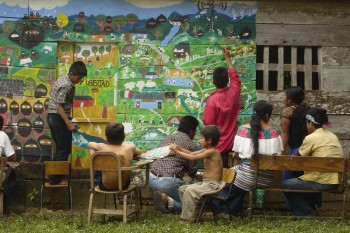
compartición
(Español) Día 4 – CompARTE por la humanidad Cideci
Festival CompARTE por la humanidad
26 de julio de 2016
Cideci / Universidad de la Tierra Chiapas
Martes 26 de julio.- Jovel-San Cristóbal de Las Casas, Chiapas. Es el cuarto día de presentaciones en el #CompArte por la Humanidad y las palabras siguen quedando cortas para transmitir la experiencia de esta compartición. El esfuerzo, ánimo, energía, rabia y amor puesto en común por las compañeras, compañeros y compañeroas, así como sus reflexiones hechas cuerpo, movimiento, nos trasladan entre los laberintos de la experiencia humana que logra agrietar los muros de la opresión.
Seguimos con el ánimo de seguir compartiendo el arte por la humanidad, por la vida, por el ser compa y es así como desde diferentes geografías nos reunimos en el CIDECI-unitierra, para aprender, observar, sentir, oír, oler y respirar las diferentes formas, colores y sabores de lucha, de resistencia y de alegrías de compartir y seguir caminando juntos en la construcción de un otro mundo mejor.
Nuevamente les hacemos llegar esta entrega con algunos trazos de lo que hemos podido recoger de entre la enorme cantidad de trabajos que se continúan haciendo presentes en los diferentes espacios de esta otra Universidad, parida por esta Tierra, el Chiapas digno, de abajo. Estos audios y fotos se los compartimos para que como las piezas de arte que han presentado nuestros compas artistas circulen como una propiedad colectiva de todas y todos.
Este 26 de Julio, Batallones Femeninos sonó rimas feministas combativas y mostró las ansias locas de asaltar el cielo y romper el asfalto. Además, Batallones cantó por Ayotzinapa y compArtió que al mirarnos a los ojos podemos fluir como los arroyos en esta vida que duele:
(entrevista)
[podcast]https://radiozapatista.org/Audios/rzchiapas/batallonesfemeninos.mp3[/podcast]
(intervención/participación)
[podcast]https://radiozapatista.org/Audios/rzchiapas/batallonesuno.mp3[/podcast]
[podcast]https://radiozapatista.org/Audios/rzchiapas/batallonesdos.mp3[/podcast]
Con sus composiciones, Miguel Alzerreka mostró que el arte da sentido y fuerza a lo que hacemos:
(entrevista)
[podcast]https://radiozapatista.org/Audios/rzchiapas/charlamiguel.mp3[/podcast]
(intervención/participación)
[podcast]https://radiozapatista.org/Audios/rzchiapas/miguelalzerrekauno.mp3[/podcast]
Desde Puebla, Itzel Sánchez y el Grupo Teatro de lxs Oprimidxs compartieron la pieza “Mujeres de a Pie: comunidades sin fronteras”:
(entrevista)
[podcast]https://radiozapatista.org/Audios/rzchiapas/itzelsanchez.mp3[/podcast]
Con la Anatomía de un campo minado, Paola Pilati conjuró la opresión y la violencia que combatimos en Uruguay y en todos lados:
(entrevista)
[podcast]https://radiozapatista.org/Audios/rzchiapas/paolapilati.mp3[/podcast]
Desde la sierra de Córdoba, José Luis Aguirre compartió cuecas y música folclorica argentina:
(entrevista)
[podcast]https://radiozapatista.org/Audios/rzchiapas/joseluisaguirre.mp3[/podcast]
(intervención/participación)
[podcast]https://radiozapatista.org/Audios/rzchiapas/folkloricaargentina.mp3[/podcast]
[podcast]https://radiozapatista.org/Audios/rzchiapas/folkloricaargentinados.mp3[/podcast]
Desde Irapuato, Guanajuato, Lucas Booz arrancó la jornada con trova libertaria:
(entrevista)
[podcast]https://radiozapatista.org/Audios/rzchiapas/lucasbooz.mp3[/podcast]
(intervención/participación)
[podcast]https://radiozapatista.org/Audios/rzchiapas/cantaautoruno.mp3[/podcast]
[podcast]https://radiozapatista.org/Audios/rzchiapas/cantaautordos.mp3[/podcast]
Javier Arango y la organizaciòn Semilla, presentaron una muestra del festival Artifariti realizado en campamentos de refugiados en el desierto del Sahara:
(entrevista)
[podcast]https://radiozapatista.org/Audios/rzchiapas/javierarangogarfias.mp3[/podcast]
Desde Puebla, canción urbana:
(intervención/participación)
[podcast]https://radiozapatista.org/Audios/rzchiapas/comppuebla.mp3[/podcast]
La Banda la Mixanteña de Santa Cecilia compArtió música de la costa y la montaña de Guerrero:
(entrevista)
[podcast]https://radiozapatista.org/Audios/rzchiapas/charlamixantena.mp3[/podcast]
(intervención/participación)
[podcast]https://radiozapatista.org/Audios/rzchiapas/costachicauno.mp3[/podcast]
[podcast]https://radiozapatista.org/Audios/rzchiapas/costachicados.mp3[/podcast]
Tras un año y medio de gira latinoamericana, Alicia y Ezequiel del proyecto argentino Del Mate compArtieron una fusión ágil y alegre de clown, malabares, títeres, fantoche y música:
(entrevista)
[podcast]https://radiozapatista.org/Audios/rzchiapas/delmate.mp3[/podcast]
En su primera aparición pública, el colectivo “Dos que tres” del Estado de México presentó narrativa de un autor “anónimo” y trova latinoamericana:
(entrevista)
[podcast]https://radiozapatista.org/Audios/rzchiapas/dosquetres.mp3[/podcast]
Tras conocer CIDECI y el primer día del CompArte, José Esquivel regresó a Toluca por su saxofón para traerlo consigo y poder interpetar este día composiciones como “Agua de beber”:
(intervención/partiipación)
[podcast]https://radiozapatista.org/Audios/rzchiapas/joseesquivel.mp3[/podcast]
Jonás López Loya de Guadalajara compArtió poemas como “El Río”, “Río Verde” y “Germen”:
(intervención/participación)
[podcast]https://radiozapatista.org/Audios/rzchiapas/poetaguadalajara.mp3[/podcast]
Desde la costa este de Uruguay, Sandra Petrovich viajó con pintura, mutaciones, manifiestos, audiovisuales y la certeza de que quién hace arte encuentra respuestas, construye pensamientos y se salva de algo:
(entrevista)
[podcast]https://radiozapatista.org/Audios/rzchiapas/sandrapetrovich.mp3[/podcast]
Ensamble de percusiones de San Cristóbal de las Casas:
(intervencion/participacion)
[podcast]https://radiozapatista.org/Audios/rzchiapas/ensamblepercusiones.mp3[/podcast]
Casi al cerrar la jornada, el grupo Rebelión Skarlata compArtió la fuerza de bailar, gritar y resistir con su música tzotzil:
(intervención/participación)
[podcast]https://radiozapatista.org/Audios/rzchiapas/rebelionuno.mp3[/podcast]
[podcast]https://radiozapatista.org/Audios/rzchiapas/rebeliondos.mp3[/podcast]
Duo Perfomance Arte y Vida proyecto “inmiscuir”… presenta el perfomance “si hablas te desaparecen”
[podcast]https://radiozapatista.org/Audios/rzchiapas/ProyectoInmiscuir.mp3.mp3[/podcast]
(Español) Día 3 – CompARTE por la humanidad – Cideci
Festival CompARTE por la humanidad
25 de julio de 2016
Cideci / Universidad de la Tierra Chiapas
Lunes 25 de julio.- Jovel-San Cristóbal de Las Casas, Chiapas. Es el tercer día del #CompArte por la Humanidad y los cuerpos, sonidos y trazos siguen interviniendo el espacio, tiempo, los corazones y pensamientos de quienes nos encontramos reunidos en esta comunidad de comunidades que es el Cideci-Unitierra Chiapas. Admirando esa obra compartida por cada uno, una, unoa de nuestras compas, el arte, la palabra y la imaginación siguen creando fusiones y transformando un poco, o mucho, de nosotros-as. La experiencia nos invita a seguir cavando profundo en los recónditos lugares de nuestra experiencia humana a través de la creación artística compartida de manera horizontal; abajo y la izquierda.
En este ánimo de compartir les dejamos esta entrega de materiales del tercer día de trabajos del festival para que puedan llegar a los diferentes rincones y geografías, para su libre difusión, producción y reproducción.
Juan Villoro compartió un conjunto de lecturas sobre las distintas y extrañas maneras de ser mexicanox y reflexionó sobre el arte, la ética, la imaginación y la ciencia:
(entrevista)
[podcast]https://radiozapatista.org/Audios/rzchiapas/juanvilloro.mp3[/podcast]
(intervención/presentación)
[podcast]https://radiozapatista.org/Audios/rzchiapas/juanvillorodos.mp3[/podcast]
Desde Montevideo, Carolina Guerra compartió una pieza crítica a los derechos de autor y la propiedad intelectual toda vez que el cuerpo es a la vez otros cuerpos y el arte y la vida tienen que estar juntos:
(entrevista)
[podcast]https://radiozapatista.org/Audios/rzchiapas/carolinaguerra.mp3[/podcast]
Bele Cerecero y Francisco García, de Mazatlan y del Colectivo bautizado en estos días como Tsunun, compartieron que el peregrinaje y el arte existen desde el momento en que nacemos:
(entrevista)
[podcast]https://radiozapatista.org/Audios/rzchiapas/colectivotsunun.mp3[/podcast]
El colectivo Corazón del Cerro, integrado por compas de distintos rincones de México, presentó un documental sobre el Seminario/Semillero El pensamiento Crítico Frente a la Hidra Capitalista, música electrónica y una exposicion visual que, sumadas, muestran cómo es que el arte puede hacer frente a la tormenta:
(entrevista)
[podcast]https://radiozapatista.org/Audios/rzchiapas/corazondelcerro.mp3[/podcast]
El coro de niñxs de la Casa Gandhi de San Cristóbal cantó a los maestros de la CNTE y abucheó a los granaderos:
(intervención/presentación)
[podcast]https://radiozapatista.org/Audios/rzchiapas/coroniñxsdos.mp3[/podcast]
[podcast]https://radiozapatista.org/Audios/rzchiapas/coroniñxstres.mp3[/podcast]
[podcast]https://radiozapatista.org/Audios/rzchiapas/coroniñxsuno.mp3[/podcast]
Coro de la Organización de la Sociedad Civil las Abejas de Acteal:
(intervención/presentación)
[podcast]https://radiozapatista.org/Audios/rzchiapas/corosdeacteal.mp3[/podcast]
Desde Sinaloa, Delta Teatro compartió la pieza “Coyolim, las aventuras de un niño Yoreme”:
(entrevista)
[podcast]https://radiozapatista.org/Audios/rzchiapas/deltateatro.mp3[/podcast]
Deni V y MC Estope de Puebla tomaron la casa con rap consciente como “Por esta tierra” y “Dos pájaros de un tiro”:
(entrevista)
[podcast]https://radiozapatista.org/Audios/rzchiapas/hiphoppuebla.mp3[/podcast]
(intervención/presentación)
[podcast]https://radiozapatista.org/Audios/rzchiapas/mcspueblaporestatierra.mp3[/podcast]
[podcast]https://radiozapatista.org/Audios/rzchiapas/mcspuebladospajaros.mp3[/podcast]
Fusión de música prehispánica:
(intervención/presentación)
[podcast]https://radiozapatista.org/Audios/rzchiapas/musicaconcuento.mp3[/podcast]
Integrantes del colectivo latinoamericano Raicestencia compArtieron que el arte es una especie de constelación, luz y guía cuando se está navengando en la lucha:
(entrevista)
[podcast]https://radiozapatista.org/Audios/rzchiapas/raicestencia.mp3[/podcast]
Desde Escocia, Ruby Zajac, de la compañia de teatro para niñxs de 3 a 103 años Lickelyspit, presentó “Molly Whuppie”:
(entrevista)
[podcast]https://radiozapatista.org/Audios/rzchiapas/rubykazaj.mp3[/podcast]
Son Jarocho con el grupo “Senderos del Son”:
(intervención/presentación)
[podcast]https://radiozapatista.org/Audios/rzchiapas/senderosdelson.mp3[/podcast]
[podcast]https://radiozapatista.org/Audios/rzchiapas/senderosdelsondos.mp3[/podcast]
Catautor Fernando Escobar
(intervención/presentación)
[podcast]https://radiozapatista.org/Audios/rzchiapas/fernandoescobar.mp3[/podcast]
las risas de los asistentes no se hizo esperar en la increible presentacion del circo colectivo efimero
(entrevista)
[podcast]https://radiozapatista.org/Audios/rzchiapas/circo.mp3[/podcast]
Presentación del grupo de Rock Telepatics de San Cristobal de las Casas
(intervención/presentación)
[podcast]https://radiozapatista.org/Audios/rzchiapas/telepatics.mp3[/podcast]
